

YOU’RE INVITED!


The 2024 FAITH IN RECOVERY National Conference is the premier training event for faith-in-recovery ministry and church leaders. This event is tailored specifically for those committed to helping individuals overcome life-controlling issues through faith-based recovery services and ministries. Network with like-minded leaders in recovery ministry, strengthen your approach and enhance your ability to serve those who need freedom from addiction. Don’t miss this chance to gain fresh insights and innovative strategies to deepen your impact!
Valuable Offerings!
• Networking opportunities
• Tailored learning, recovery resources and tools

• Tracks include Leadership Development, Transformational Programming, Outreach & Evangelism, and Discipleship & Counseling Conference Speakers


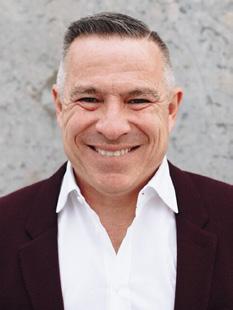
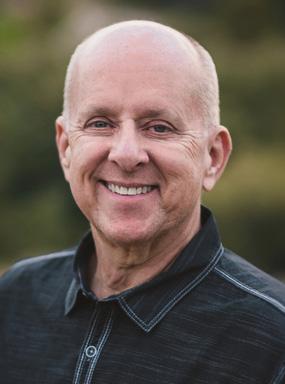



JUNE 2-5 Hilton Anatole DALLAS , TX
FAITH IN RECOVERY NATIONAL CONFERENCE 2024
Tim Dilena Senior Pastor Times Square Church New York, NY
Al Toledo Lead Pastor Chicago Tabernacle Chicago, IL
Podcaster
Chris Palmer Dean of TheosU Greek Scholar, Author, Professor of Theology Jo Saxton Leadership Coach, Speaker, Author,
Author CONTACT INFORMATION Adult & Teen Challenge USA 417.581.2181 events@teenchallengeusa.org For more information, visit us online at: http://faithinrecoveryevents.org OR USE THE QR CODE Dr. Henry Cloud New York Times Bestselling Author, Clinical Psychologist, and Leadership Expert Special Guest!
Lance Witt Senior Pastor Founder of Replenish Ministries,

The shape of leadership influencemagazine.com
INFLUENCE MAGAZINE
1445 N. Boonville Avenue
Springfield, MO 65802-1894
Influence magazine is published by The General Council of the Assemblies of God.
Publisher: Douglas E. Clay
Executive Editor: George P. Wood
Lead Editor: Christina Quick
Designers: Steve Lopez, Josh Thomassen
Advertising Coordinator: Ron Kopczick
CONTRIBUTORS
Stephen Blandino, Jen Bradbury, Renea Brathwaite, Doug Clay, Jodi Detrick, Chad Gilligan, Brad M. Griffin, John W. Kennedy, Andrea Lathrop, Rod Loy, Ron McManus, Kristi Northup, Dave Novak, Kayla Pierce, Kara Powell, Chris Pruett, Jessica Mumley, Christina Quick, Chase Replogle, Darrin J. Rodgers, Nichole Schreiber, Allen Tennison, Heather Weber, George P. Wood
SPECIAL THANKS
Donna L. Barrett, Malcolm Burleigh, Douglas E. Clay, Wilfredo De Jesús, Rick DuBose, John L. Easter
EDITORIAL
or info or ueries, contact editor in uencemaga ine.com.
ADVERTISING
Display rates available upon request. Contact advertising@influencemagazine.com. By accepting an advertisement, Influence does not endorse any advertiser or product. We reserve the right to reject advertisements not consistent with the magazine’s objectives.
Website: influencemagazine.com
Twitter: @theinfluencemag
Facebook: facebook.com/theinfluencemag
SUBSCRIPTIONS
To subscribe, go to influencemagazine.com or call 1.855.642.2011. Individual one-year subscriptions are $17. Bundle one-year subscriptions are $12 per subscription, for a minimum of six or more. International one-year subscriptions are $51, postage included. For additional subscription rates, contact subscribe@influencemagazine.com. Please send all other feedback, requests and questions to feedback@influencemagazine.com.
Copyright © 2024 by The General Council of the Assemblies of God, N. oonville Ave., pringfield, . Permission required for reprints. All rights reserved.
All materials published herein including, but not limited to articles, photographs, images, and illustrations are protected by copyright and owned or controlled by Influence magazine of The General Council of the Assemblies of God.
All Scripture quotations, unless otherwise indicated, are taken from the Holy Bible, New International Version®, NIV®. Copyright ©1973, 1978, 1984, 2011 by Biblica, Inc.™ Used by permission of Zondervan (www.zondervan.com). All rights reserved worldwide. The “NIV” and “New International Version” are trademarks registered in the United tates atent and rademark ffice by iblica, nc.
Influence magazine (USPS Publication: 0000-7180; ISSN: 2470-6795) is published quarterly by The General Council of the Assemblies of God (1445 N. Boonville Avenue, Springfield, MO 65802-1894). Periodicals postage paid at Springfield, Missouri, and at other mailing offices.
Printed in the U.S.A.

Member of Evangelical Press Association
POSTMASTER
Send address changes to Influence maga ine N. oonville Avenue Springfield, MO 65802-1894
2 Spring 2024





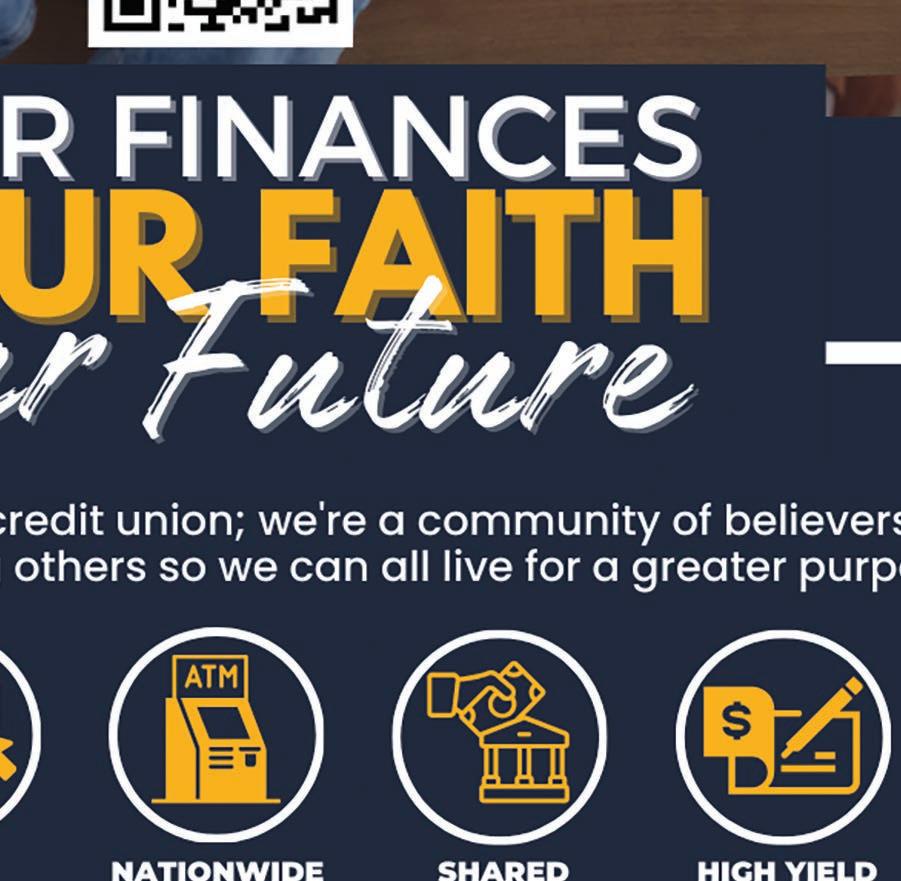




































































































































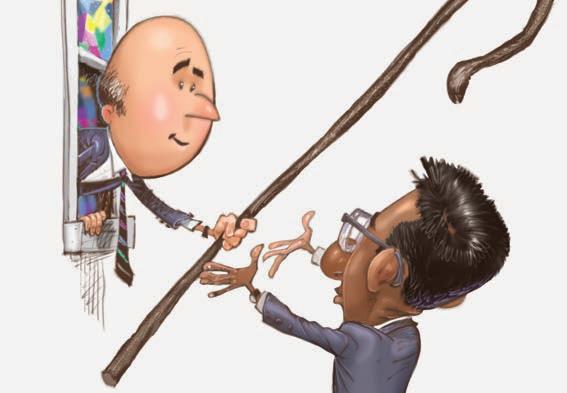


CONTENTS Issue 46 | Spring 2024 56 A Biblical Vision of Community Unity amid diversity is God’s idea RENEA BRATHWAITE 66 When, Not If Planning now for pastoral transition RON MCMANUS 74 What We Believe About Communion A series on the AG Statement of Fundamental Truths ALLEN TENNISON 4 Spring 2024 46 COVER STORY How to make God-honoring decisions
GILLIGAN
CHAD


DEPARTMENTS
A Living Mission
Kingdom work has neither failed nor stalled
CHRISTINA QUICK
All Access
God gives everything we need for ministry
DOUG CLAY
Leading in Culturally Divided Times
A 10-week study for leadership teams
STEPHEN BLANDINO
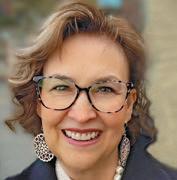
Half-Sight, Full Faith
Trusting God through life’s challenges
JODI DETRICK

LEADERSHIP
Called to Study
Allen Tennison becomes the AG’s first theological counsel
Becoming Healthy Leaders
Our beliefs and actions shape how we treat others
ANDREA LATHROP



Resolving Father Issues
How to find balance and seek healing in life and ministry
DAVE NOVAK
Mentoring Across Gender Lines
Why called men and women are better together
NICHOLE SCHREIBER with ROD LOY
Character Matters Most
Why church leaders should practice integrity in hiring
GEORGE P. WOOD
Transformational Leadership
Qualities that bring out the best in others
KAYLA PIERCE
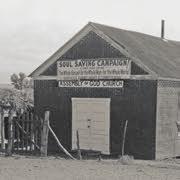

Growing Through the Great Depression
Enduring lessons for difficult times
DARRIN J. RODGERS
• From Monocultural to Multicultural
• A Grateful Heart
HEATHER WEBER
MAKE IT COUNT THIS IS MY STORY 108 128
PROFILE SELF HOME PRACTICE ETHICS INSIGHTS HISTORY BOOKS 14 18 22 26 30 34 38 42
JOHN W. KENNEDY
THE HEART OF THE GS FROM THE EDITOR 10 8
FROM
Spring 2024 5






A Catalyst for Awakening
The AG World Prayer Center connects prayer and evangelism
GEORGE
I Got That Wrong
How to deal with preaching mistakes
CHASE REPLOGLE
What Not To Wear
Does your worship team need a dress code?
KRISTI NORTHUP
What’s Really Going On?
Ministry to kids in trauma
CHRIS PRUETT
A Matter of Trust
Effective student discipleship starts with showing up
KARA POWELL, JEN BRADBURY, and BRAD M. GRIFFIN
Tying the Knot … or Not?
Biblical guidance for big decisions
JESSICA MUMLEY





podcasts Check out our influencemagazine.com/podcast
SPOTLIGHT PREACHING WORSHIP KIDS YOUTH ADULTS 84 88 92 96 100 104
MINISTRY
P. WOOD
More than a magazine 6 Spring 2024





Let’s talk about how to inspire your family with the joy of generous giving to your favorite Assemblies of God missionaries and projects. We can also provide a variety of creative giving options to consider in helping you and your family optimize potential tax savings.



Will they inherit your generosity? Larry Hall Legacy Initiative Coordinator Email: larry@legacyfaith.org
Phone: 417-353-2069 Scan to visit legacyfaith.org
•
of Faith



A Living Mission
By CHRISTINA QUICK


Aforest in the Missouri Ozarks is a peculiar place to build a castle. Nevertheless, that was the mission of millionaire Robert Snyder at the turn of the 20th century.
Snyder meticulously planned the medieval-style, 60-room dwelling, which was to include stables, greenhouses, and a water tower.
Construction began in 1905, but it soon hit a major snag. In October 1906, Snyder rashly instructed his chauffeur to race another vehicle along the streets of Kansas City, Missouri.
Meanwhile, a child pedaled a bicycle onto the road. he chauffeur swerved, throwing nyder from the car. Snyder fractured his skull on a trolley pole and died, becoming one of the state s first automobile fatalities.
To assure the disciples of His resurrection, Jesus showed them His hands and feet, which bore the scars of crucifi ion. e pointed them to cripture, emphasi ing, his is what I told you while I was still with you verything must be fulfilled that is written about me in the aw of oses, the rophets and the salms verse .


At the start of His public ministry, Jesus had framed is mission with the words of Isaiah he pirit of the ord is on me, because he has anointed me to proclaim good news uke .
This gospel is good news to the poor, the bound, the blind, and the oppressed uke . esus offers hope to the brokenhearted, doubtful, and disillusioned. e ministers peace to the an ious, sorrowful, and tormented.
The disciples needed good news, and so do we.

nyder s heirs tried to finish the castle and grounds, but the work bogged down. In 1942, the structure caught fire and burned. oday, the gutted stone frame remains a ghostly reminder of this strange and tragic tale.
A dead man and a dead mission. That seems to have been the mood of Jesus’ disciples in the hours following is crucifi ion. esus had proclaimed, I will build my church, and the gates of Hades will not overcome it” (Matthew 16:18). Now a pall of despair hung heavily over the grand project.
There had been reports of Jesus appearing to some. But what were the disciples to make of these incredible stories?
Into this sorrow, hopelessness, and confusion walked esus, saying, eace be with you uke 24:36).
Easter is behind us, but the message is ever before us. It brings the power and plan of God into clear focus. Despite lagging church attendance, growing skepticism, and other discouraging developments in today’s world, the work of the Kingdom has neither failed nor stalled.


The risen Savior assures us God’s promises are true and His mission is alive and well.
Jesus is building His Church, and you get to be a part of it. Peace be with you as you continue declaring Christ’s resurrection hope to a world in need.
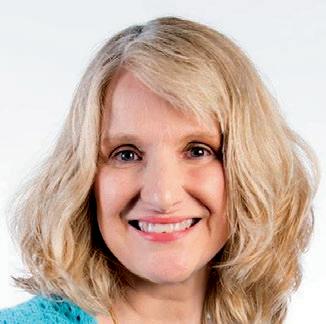 CHRISTINA QUICK is lead editor of Influence magazine.
CHRISTINA QUICK is lead editor of Influence magazine.
THE
8 Spring 2024
FROM
EDITOR
Jason Runyon, ThePhotoRun







All Access God gives everything we need for ministry
By DOUG CLAY
Spring is ordination season in the Assemblies of God. Every year, I have the privilege of preaching at ordination services across the Fellowship. More than ceremonies, these are sacred moments.
Ordination is public recognition of a divine call to vocational ministry. John 15:16 emphasizes that hrist himself selects and appoints ou did not choose me, but I chose you and appointed you so that you might go and bear fruit — fruit that will last.”
Jesus spoke these words to the apostles, so this passage is especially relevant to ministry leaders, even as it applies to all believers.
Our Statement of Fundamental Truths emphasizes the leadership role of ordained ministers: A divinely called and scripturally ordained ministry has been provided by our ord for the fourfold purpose of leading the Church in: (1) evangelization of the world, (2) worship of God, (3) building a Body of saints being perfected in the image of His Son, and (4) meeting human need with ministries of love and compassion (Article 11, emphasis added, biblical citations omitted).
The divine call begins with Christ, not us. Furthermore, the call isn’t about us or our temporal success but about God’s purposes. Therefore, it has eternal significance as we bear lasting fruit.

Ordination is not about a minister’s status or position. Nor is it just a denominational obligation.
FROM THE HEART OF THE GS 10 Spring 2024
It is a commission to serve as Christ’s agents, advancing God’s kingdom.
Because it is a divine mission, ordination requires divine power.
onsider eter , which is for all believers, including ordained ministers: His divine power has given us everything we need for a godly life through our knowledge of him who called us by his own glory and goodness. Through these he has given us his very great and precious promises, so that through them you may participate in the divine nature, having escaped the corruption in the world caused by evil desires.
Notice the tense of the main verb: has given. It is past tense. We already have all access to everything we need for mission: divine power, promise, and purpose.
Divine Power
eter literally walked with esus, witnessing is miracle-working power. And with the other disciples, eter received power for ministry e.g., uke 9:1; 10:19).
hat same power is now at work in us eter 1:3). There is nothing we need that we do not already have. The only question is whether we use what God provides.
God’s power can sustain you when you feel like giving up. Discouragement is a real issue in spiritual leadership. I’ve seen it kill more ministry dreams than moral failures. art of the oly pirit s work is encouragement.
Of course, it’s possible to resist the Spirit’s work (1 Thessalonians 5:19). We must not let that happen. The only limit to divine power is the space we give God’s Spirit in our lives.
When we ordain ministers, we ask the Holy Spirit to empower them for ministry, acknowledging the need for divine assistance.
Through Christ, God has given us all access to His power. Have you given God all access to your life and ministry?
Divine Promises
God doesn’t promise a life of ease. But He does promise to sustain the faith of those who trust in im, even through di cult times eter .
How do we know God’s promises will come true? ecause the character of the promises reflects the character of the romise aker.
Nearly every verse in Scripture contains a promise, e plicitly or implicitly. nd od keeps them all. oshua says, ot one of all the LORD’s good promises to Israel failed every one was fulfilled.
God never out-promises himself. He has the integrity and ability to fulfill what He has spoken.
aul wrote in orinthians , o matter how many promises od has made, they are es in Christ. And so through him the ‘Amen’ is spoken by us to the glory of God.”
God never out-promises himself. He has the integrity and ability to fulfill what e has spoken.
Just as we have all access to God’s power, we have all access to His promises in Jesus Christ. The only question is whether we avail ourselves of that access.
Divine Purpose
ccording to eter , od has a purpose for your life to participate in the divine nature.
This does not mean you’re going to become a god at the level of being. It means you’re going to become like God at the level of your character, actions, and gifts.
od wants to infuse your life with is. ince od is love ohn , for e ample, is love should permeate your disposition and actions.
In fact, according to alatians , a hristian should demonstrate love, oy, peace, forbearance, kindness, goodness, faithfulness, gentleness and self-control.”
Spring 2024 11
Consider this description from 1 Corinthians ove is patient, love is kind. It does not envy, it does not boast, it is not proud. It does not dishonor others, it is not self-seeking, it is not easily angered, it keeps no record of wrongs. ove does not delight in evil but rejoices with the truth. It always protects, always trusts, always hopes, always perseveres.”
All of these passages point to how the life of a Christ follower — and especially an ordained minister — should look.
We also reflect od in our giftedness. ere, od delights in variety, for not everyone has the same spiritual gifts orinthians , .
In our lives and ministries, are we accessing all of God’s grace in everything we think, feel, say, and do?
When you understand that God has an individual purpose for your ministry, it frees you from comparing yourself to others and trying to become like them.
Instead, we need to remember that the particularity of our ministry is a divine gift. s aul said, y the grace of od I am what I am, and his grace to me was not without effect. o, I worked harder than all of them — yet not I, but the grace of God that was with me” (1 Corinthians 15:10).
Whatever we are comes by God’s grace.
In our lives and ministries, are we accessing all of God’s grace in everything we think, feel, say, and do?
Whatever You Ask
I began by emphasi ing the first half of ohn ou did not choose me, but I chose you and appointed you so that you might go and bear fruit — fruit that will last.” Through ordination, God selects and appoints ministers to lead His people.
et me close by emphasi ing the second half of that verse, which says, Whatever you ask in my name the Father will give you.”
Whatever you ask is a bold promise. And we may be tempted to discount it. But if we connect John with eter , we can see how od fulfills His own bold promise.
When we give God’s power, promise, and purpose all access to our lives because e first gave our lives all access to those things — what we ask is precisely what God wants us to ask. No wonder He promises to give it to us.
As ordained ministers, may such openness to God characterize every aspect of our lives and ministries.
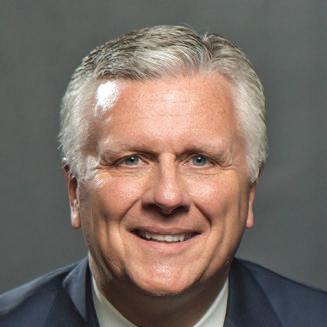

DOUG CLAY is general superintendent of the Assemblies of God USA.
12 Spring 2024


VIEW FILM AND VIDEO FROM BILLY GRAHAM’S HISTORIC MEETINGS


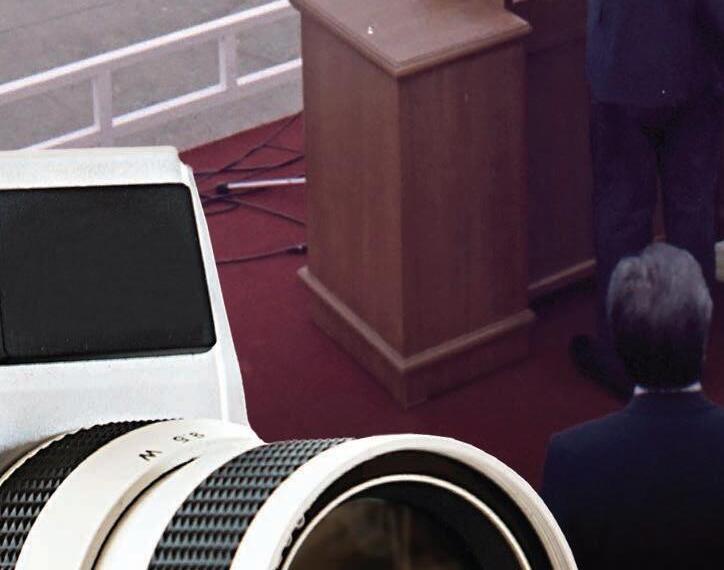
At the Billy Graham Archive and Research Center, researchers and students can view film and video from hundreds of historic events as they study his Biblical message and ministry. Come be inspired and equipped for the work of the Gospel.

“



Learn more about study, research, and training opportunities at BillyGrahamArchiveCenter.com or by calling 704-401-3200
Teach these truths to other trustworthy people who will be able to pass them on to others.”—2 Timothy 2:2, NLT
©2022 BGEA A MINISTRY OF BILLY GRAHAM EVANGELISTIC ASSOCIATION
Billy Graham preaches to over 1 million people in Seoul, South Korea, in 1973.

Called to Study llen ennison becomes the s rst theological counsel
By JOHN W. KENNEDY
Six decades ago, nearly all Americans claimed to be Christian (93% in 1962, according to Gallup). By 2022, the share had fallen to 68%.
Further, just 31% of Americans in a May 2023 Gallup poll reported participating in any religious service, either in person or online, during the previous seven days.
It’s not surprising, then, that many Americans lack biblical knowledge. In a 2019 Pew Research Center survey, only about half of U.S. adults (51%) correctly
identified esus as the ne who delivered the ermon on the ount rather than eter, aul, or ohn .
Such a cultural milieu led Assemblies of God General Superintendent Doug Clay to launch the Bible Engagement Project during 2020. The disciple-making resource is a tool for growing biblical literacy among laypeople.
Yet to maintain correct theology, Clay sensed the Fellowship needed further guidance for clergy. At his direction, the last uly appointed . llen ennison as its first theological counsel.
14 Spring 2024
LEADERSHIP | PROFILE
“The Assemblies of God has a rich legacy of prioritizing the Bible,” Clay says. “It’s my desire to continue building on these firm foundations.
In Tennison, Clay believes he has a deep thinker and skilled communicator to anchor the post.
“Dr. Tennison brings pastoral experience, Pentecostal passion, and deep theological expertise together in a way that will enrich our Fellowship,” Clay says.
Tennison serves as an advocate for the theological maturity of credentialed ministers. Books dominate two walls in his workspace at the national o ce in pringfield, issouri.
“I’m an adviser only,” says Tennison, whose background includes pastoral ministry as well as academia. “I’m not making decisions on behalf of the Assemblies of God; I’m simply a consultant to those who do.”
While he’s not determining AG theology, Tennison is well-versed in it. Since 2015, he has served with the 10-member AG Commission on Doctrines and Practices, an advisory body created in 1978. Tennison has been the panel’s chairman since 2023.
fter spending years on the pastoral staff of Luminate Church (AG) in Covina, California, Tennison taught theology at North Central University in Minneapolis for 12 years. He served as dean of the school’s College of Church Leadership during his final five years there.
Tennison earned his bachelor’s degree at Evangel niversity in pringfield, issouri, his master s at Asbury Theological Seminary in Wilmore, Kentucky, and his doctorate in theology from Fuller Theological Seminary in Pasadena, California.
Upon sensing a call to ministry at age 15, Tennison told his parents, AG pastors Don and Martha Tennison. They immediately gave their son an opportunity to practice preaching from the pulpit.
The Tennison family faced no greater crucible than in May 1988, when their congregation experienced one of the deadliest bus wrecks in U.S. history. A drunk driver crashed head-on into a Radcliff entucky irst ssembly of od bus, which
burst into flames. wo do en youth from the church died, along with three adults.
llen, years old when he escaped the fireball through the rear emergency exit, spent years dealing with survivor guilt. He recalls his father preaching funerals for 16 people in 48 hours.

We can no longer depend on culture to lead us into the Bible.
— Allen Tennison
Tennison describes his father as kind, gracious, patient, and the most loving man he ever knew — all the more remarkable since Don, who died in 2019 after a 13-year battle with Parkinson’s disease, grew up in an abusive home.
Martha received the 2022 Smith Wigglesworth Evangelist Legacy Award at the AG National Evangelist Summit. She is known for preaching spellbinding, biblically based sermons with rapid fire delivery. The feisty octogenarian, who now lives in Lake of the arks, issouri, has been an evangelist for 49 years.
Spring 2024 15
During his childhood, Tennison heard stories about how his maternal grandfather spent an hour every night teaching Martha from the Bible when she was a girl.
Tennison and his wife, Rhonda Vanbeber Tennison, carry on the tradition with their 9-year-old son, Steele. An ordained AG minister, Rhonda formerly served as both an AG world missionary and U.S. missionary.
Such an environment at home is the exception these days, Tennison says.
ur whole culture used to be biblically infused, he says. “Part of the reason a lack of biblical literacy feeds into a lack of theological literacy is the shape of culture. We can no longer depend on culture to lead us into the Bible.”
Tennison attributes a number of factors to the shift away from Bible learning.
“These include pastors tending to preach topical sermons exclusively rather than also through the Scriptures; the replacement of Sunday School in many churches with fellowship groups that don’t have the same emphasis on studying the Bible; and hristians not being as confident in what to do with the Bible in their personal devotions,” Tennison says.
Even those raised in Christian homes are often unaware of biblical teachings. As an example, Tennison relates a story he heard from a colleague who was teaching Bible students at a Christian university. Upon mentioning Lot, Abraham’s nephew, the professor noticed students looked bewildered. When he followed up by asking students to raise a hand if they had heard of Lot, few hands went up.
The Bible must remain the norm for establishing moral boundaries, and that begins with knowing what it says and understanding how to apply it, Tennison stresses.
“When we remove the spiritual authority of Scripture, all that remains is the authority of culture — which is always shifting,” Tennison says.
In his new role, Tennison consults with the resident six-member Executive Leadership Team, as well as the 21-member Executive Presbytery.
Tennison’s duties include everything from reviewing certain materials scheduled for publication to answering unusual theological questions from the constituency. He is currently writing a series for nfluence magazine on the AG Statement of Fundamental Truths.
If you’re called to pastor, you’re called to preach, and if you’re called to preach, you’re called to study.
— Allen Tennison
dditionally, ennison s o ce interacts with the Commission on Doctrines and Practices, which meets in person and online throughout the year. At the direction of the Executive Presbytery, the rotating panel of theologians and Bible scholars is formulating various position papers on topics ranging from disability to apostles and prophets. The General Presbytery must approve such papers before passage.
While formal education is not a requirement for clergy, Tennison believes biblical training is essential.
“If you’re called to pastor, you’re called to preach, and if you’re called to preach, you’re called to study,” Tennison says. “When you accept the call to be a shepherd over God’s people, you accept a responsibility to study the Word of God and the culture in which you minister.”
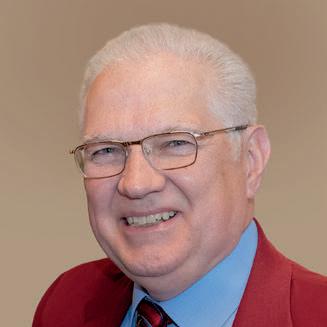
16 Spring 2024
JOHN W. KENNEDY
is a freelance journalist in Springfield, Missouri. He previously worked as news editor of hristianity oday the entecostal Evangel and AG News.


DCL TUITION
55%
WAIVER

MASTER’S PROGRAMS (48 credit hours)
M.A. Chaplaincy
M.A. Global Theology
M.A. Missional Leadership
M.A. Rural Ministries
DOCTORAL PROGRAMS
Doctor of Contextual Leadership (46 hours)
Ph.D. Practical Theology (60 hours)
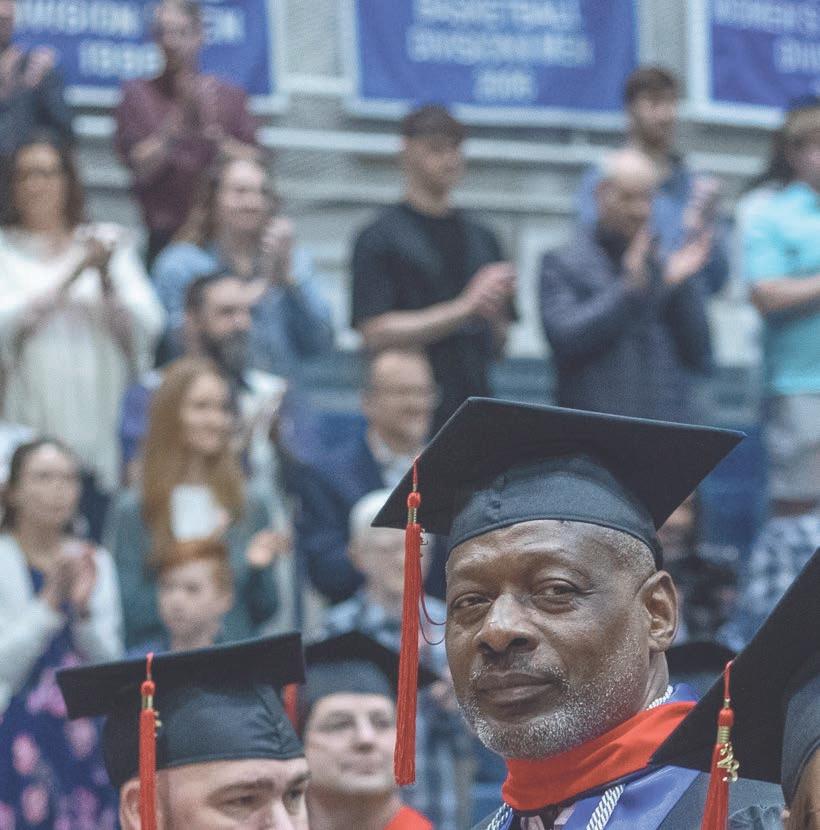
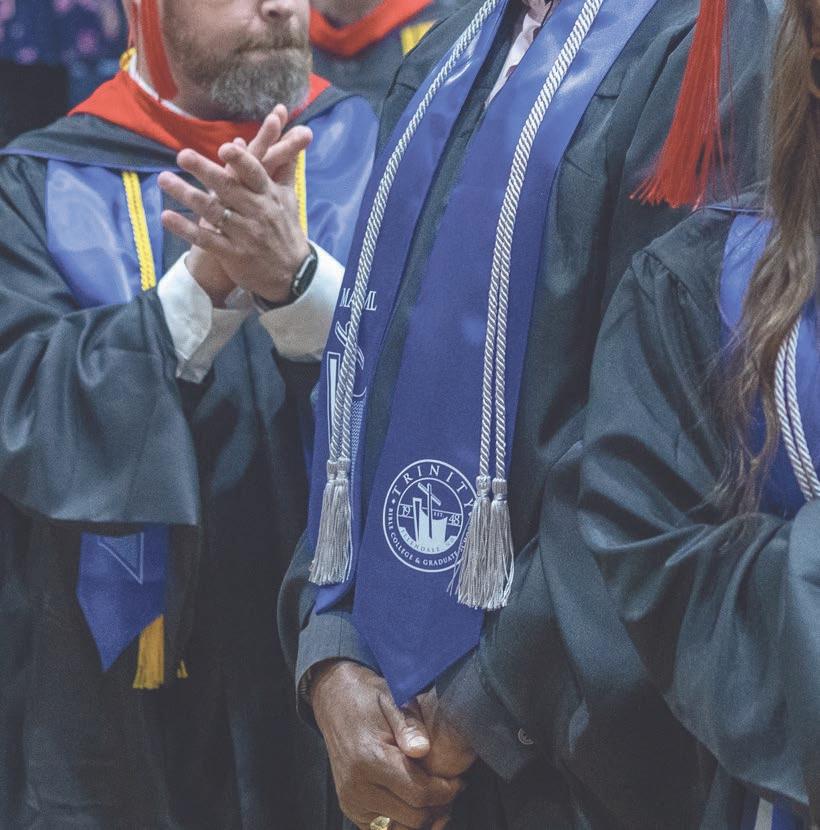






TRINITY?

Trinity is offering a 55% tuition waiver to ALL STUDENTS interested in our new 46-hour Doctor of Contextual Leadership (DCL) program (our DMin) starting in Sep. 2024.
* This special offer is for the FIRST COHORT ONLY and valid until the completion of the program.
Did you know
Our doctoral programs are European-style with no exams, tests, or quizzes.
The Alternative Pathway enables qualifying students to start an MA degree without a BA based on ministry, life, and educational backgrounds.
trinitybiblecollege.edu | 800.523.1603 | enrollment@trinitybiblecollege.edu
SCAN HERE
Becoming Healthy Leaders ur beliefs and actions shape how we treat others
By ANDREA LATHROP
Iwant to be a healthy leader, one who trusts God, advances His mission, and treats people with dignity.
et I sometimes find myself leading in ways that are unhealthy, quietly manipulating people to accomplish my ministry goals instead of simply loving them as esus loves.
Early in my ministry as a youth pastor, I developed high hopes for an outgoing student who seemed enthusiastic about bringing friends to church. I wanted her to do amazing things for God — and for our youth group.
However, when she struggled with normal, developmentally appropriate issues of adolescence, her evangelistic batting average dropped. That’s when I became aware of subversive questions in my heart.
W s this teen er still worth y ti e n ttention houl ove on n invest in so eone with ore otenti l eyon incre sin tten nce, wh t were y isci leshi o ls
More than 20 years later, I am still learning that how I answer such questions can mean the difference between a healthy and unhealthy ministry
18 Spring 2024
LEADERSHIP | SELF
perspective. As a wise mentor once asked me, “Do we use people to grow ministry, or do we use ministry to grow people?”
In corporate leadership, people are often little more than resources for achieving objectives. But for Christians, people re the objectives. Love for God and others has always been the biblical standard. These things go together.
he apostle ohn writes with such clarity there should be no confusion on the matter:
Whoever claims to love God yet hates a brother or sister is a liar. For whoever does not love their brother and sister, whom they have seen, cannot love God, whom they have not seen ohn .
Why We’re Unhealthy
In corporate leadership, people are often little more than resources for achieving objectives. But for Christians, people are the objectives.
If the standard is clear, why is leading healthily so hard? In my ministry, I have noticed three things that contribute to convoluted leadership:
1. Impatience. As Pentecostals, we don’t simply believe the gospel; we feel the compulsion to share it with others. istorian avid ebbington identifies activism — the emphasis on evangelism and mission — as a hallmark of evangelicalism.
This is a good thing. So many people have not yet heard the gospel! Their spiritual needs should be our urgent concern.
And yet, that urgency often tempts us to impatience. We look for quick conversions. We treat co-workers insensitively, as if they weren’t doing enough to move the mission forward.
An emphasis on urgency can make patience a challenge. It helps to remember the gospel’s work in individual lives can be like seed germination — long, gradual, and hidden (Mark 4:30–32).
As leaders, we must practice patience with those we serve without losing our sense of urgency.
2. Pressure. ur lives are noisy and busy. People disappoint and hurt us, and those wounds compound quickly. Meeting a budget, managing staff, and responding to crises can be challenging. And Sunday is always coming.
Prolonged pressure tempts leaders to release it in unhealthy ways. We focus only on the best and brightest in the congregation. We elevate people with public gifts and charismatic personalities, relying on them to move the church forward.
Ironically, this only increases pressure. Scripture uses rich metaphors to describe the Church. According to the apostle Paul, the Church is one Body whose members have different functions (1 Corinthians 12:12–26). Peter describes it as a house in which people are the building blocks (1 Peter 2:5).
Neither a lone pastor nor a few leaders can withstand the pressures of ministry. nly the unified body and household of Christ can do that. As Paul puts it, If one part suffers, every part suffers with it (1 Corinthians 12:26).
We release the pressures of ministry by releasing ministry to the whole congregation.
3. Bad Theology. Who we understand God to be determines our leadership trajectory. It is a compass directing the course of our lives.
I used to believe, subconsciously at least, that God was a taskmaster. Such a false belief drives us to perform, fearing God might otherwise become angry with us. And as leaders, we end up driving others in the same way.
A biblical view of God has implications too, however. If we believe that the Lord is our shepherd (Psalm 23:1), for example, we will shepherd others as e has shepherded us ohn eter .
Theology matters for leadership, so let’s pay careful attention to how beliefs about God shape our lives and leadership.
Spring 2024 19
How We Become Healthy
So, how do we become healthy? In my journey to healthier leadership, I pay attention to three things:
1. Paradigms. A paradigm is a mental framework or way of thinking. ur lives move in the direction of our most deeply held paradigms. They inform the way we treat ourselves and others.
For example, if we think of ourselves as owners, we end up treating others as property. If we think of ourselves as means to God’s ends, we treat others as means to the same end.
To a degree, we are means, conduits of God’s mission to others. But we are also ends, the recipients of God’s love — not just at the moment we decided to follow esus, but continuously. The same is true of the people we serve.
The priesthood of all believers is an important biblical paradigm (1 Peter 2:9; Revelation 1:6). It implies both service (means) and equality (ends). When we keep that in mind, we cultivate a healthy view of power and authority.
keeps hurriedness out of our hearts. Psalm 46:10 says, “Be still, and know that I am God.”
Slowing down is also a way of experiencing God’s gentleness. Sabbath relieves the pressure that builds up over the workweek, reminding us God runs the world, not us. It places us on the receiving end of His provision.
If we need rest to experience God’s gentleness, we also need it to deal gently and thoughtfully with others. A personal experience of sabbath provides rest to those we lead and serve.
Good paradigms move us toward forms of leadership that promote the ourishing of all.
Good paradigms move us toward forms of leadership that promote the flourishing of all.
2. Rhythms. The pace of modern life is fast. It requires us to hurry.
Hurry can be a good thing, especially when you’re in danger. As a lifestyle, though, it keeps us from cultivating gentleness. We’re tempted to ride roughshod over ourselves and others when hurried.
Sabbath — regularly setting aside work for times of rest — is an antidote to hurry. It is a practical way of gaining perspective, processing ministry wounds, and improving theology. Intentional rest
3. Endings. In the life of a church, especially its staff, everyone will leave at some time. Positions are temporary, but relationships shouldn’t be. Endings give us a chance to prove we are not users. That’s easier said than done.
Whenever possible, we should celebrate those who are leaving. Even when we feel they shouldn’t leave, we can thank people for the contributions they have made to God’s kingdom.
Celebrating transitions makes it more likely others will do the same in their ministries. Healthy leadership tends to beget healthy leadership.
Rather than using people to grow ministry, healthy leaders use ministry to grow people. That shift in practice and perspective makes all the difference.
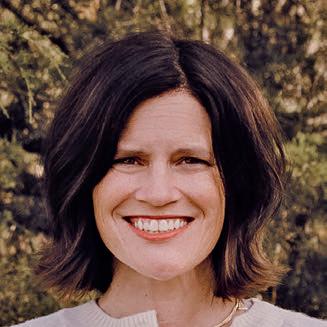
minister.
20 Spring 2024
ANDREA LATHROP, D.Min., is an author and licensed Assemblies of God
Bridgingaccredited, debt-free,andonline theologicaleducation toyourcalling
Fullyaccreditedbythe Associationfor BiblicalHigher Education
Affiliatememberofthe AssembliesofGod Associationfor HigherEducation

•Studentsserveintheirlocalchurch
•Flexibleandonline
•Allstudentsgraduatedebt-free
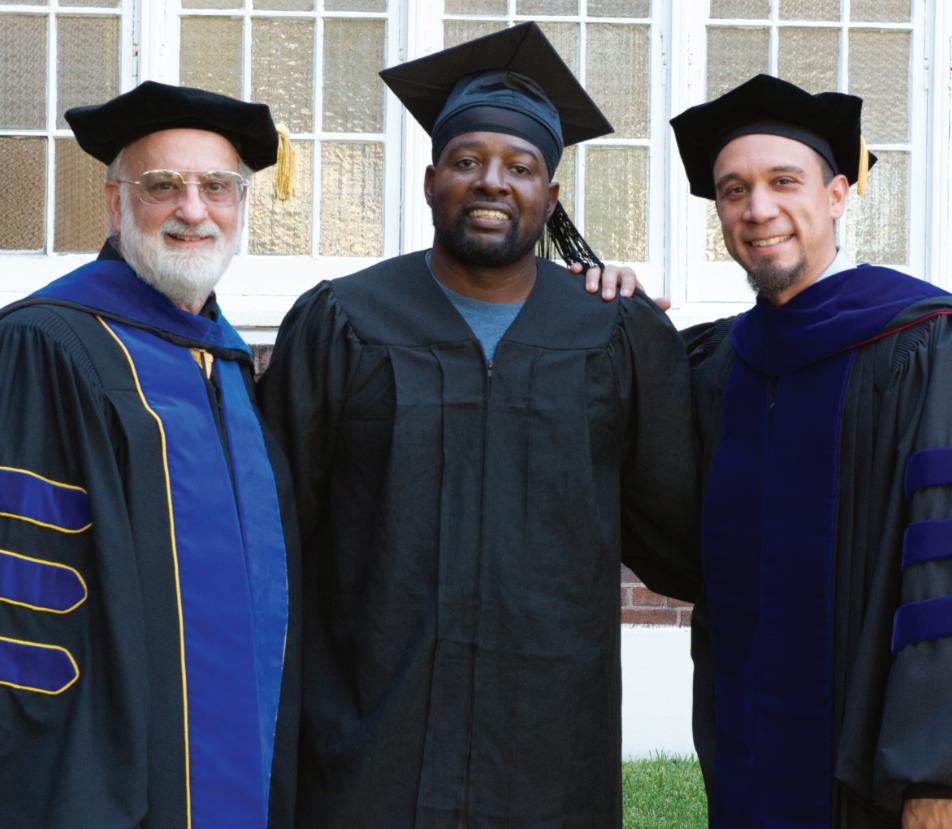
Bachelor'sDegrees $600/year
Master'sDegrees $1,500/year
•BachelorofArtsinBiblicalStudies
•MasterofDivinity
•MasterofTheologicalStudies
•MasterofArtsinPastoral Counseling

BRIDGESCHRISTIAN COLLEGEANDSEMINARY
websitefor completelist ofprograms
Email:info@bcc.eduPhone:(855)702-7434 ApplyatBCC.edu
Visitour
DegreesInclude
Seewebsitefordetails
Resolving Father Issues
ow to nd balance and seek healing in life and ministry
By DAVE NOVAK

As a pastor’s kid, I was at church most days of the week. I attended nearly every event and held leadership responsibilities at an early age.
Before video projectors, I managed transparencies for worship services. I accompanied my dad as he drove the church van, picking up and dropping off parishioners.
I helped with youth group, participated in weekly door-to-door evangelism, and volunteered six to eight hours every Saturday with an inner-city ministry serving some 700 children.
inistry came first, and it consumed my adolescence. I tried to play the part of a good pastor’s son. I sacrificed for the church and my dad s calling,
missing out on sports and school activities that conflicted with the church calendar.
My dad didn’t intentionally hurt or neglect me. ut because of his own di cult childhood, he fathered from a deficit.
Amid the busyness of ministry, I received little attention or emotional support from my father. At times, he was hard on me.
Dad never thanked me for my work or provided physical affection. ind words were rare. I can t even remember a time when my father said, “I love you.”
Pressure to perform was high, and Dad’s expectation was nothing less than perfection. No matter how hard I tried, I never seemed to measure up.
22 Spring 2024
LEADERSHIP | HOME
As a result, I grew up with wounds, insecurities, and a deep sense of bitterness. This carried over into adulthood and my own pastoral ministry.
Dysfunction haunted me. My dad and I served as lead pastors in the same district. But I knew we were both broken men in need of healing.
Finding Balance
It is somewhat surprising I became a minister at all. As a kid, I resented the constant intrusion of church into our home life.
When my dad talked excitedly about ministry successes, I couldn’t share his joy. I felt like these wins were my losses since they always seemed to come at my expense.
I grew up with wounds, insecurities, and a deep sense of bitterness. This carried over into adulthood and my own pastoral ministry.
My siblings and I couldn’t say no to ministry work without feeling guilty. At times, I wondered whether y spiritual life mattered at all. Did everyone ust assume I would be without guidance or support?
Sometimes I intentionally rebelled to gain attention from my dad. This only frustrated him and made him a harsher disciplinarian.
I remember watching ad affectionately tousle a boy’s hair during a children’s outreach event and wondering why he never did the same with me.
ver the years, I have discovered I am not alone in these unfulfilled longings. I have talked with a number of people who shared similar stories of growing up in a parsonage feeling overlooked and neglected.
Unfortunately, there is a temptation for church
leaders to idolize ministry to the detriment of family.
ome is our first ministry responsibility. If that statement is convicting, it may be time to reevaluate some priorities. It’s possible to climb the ladder of success and discover the ladder was leaning against the wrong wall.
Being a spouse, parent, and minister can feel like a delicate balancing act at times. I haven’t always managed it perfectly. But I’ve tried to learn not only from my dad’s successes at church, but also from his shortcomings at home.
Therapy has helped me confront my wounds, as well as deficiencies in my personal life and leadership. It hasn’t been easy, but the journey has helped me grow as a husband, dad, and minister.
I am intentional about maintaining healthy boundaries and carving out time for my family. I am home for dinner most evenings.
My wife, Lori, and I have weekly date nights. In addition to our annual two-week family vacation, we plan smaller couple and family getaways throughout the year. ur family calendar comes before the church calendar.
I frequently hug my kids, Leah and Titus, and tell them how much I love them. I show them they are a priority by attending their events and games.
Lori and I are careful not to place ministry demands on our kids beyond asking them to attend youth group and participate in a ministry of their choosing. We want to give them room to develop their own relationship with God.
I check in regularly with my wife and kids, and they assure me they have not suffered because of my ministry.
Seeking Healing
or better or worse, a parent s influence e tends far beyond childhood. When a father is unaffectionate, absent, or abusive, it leaves lasting emotional scars.
Even while preaching about the Heavenly Father’s love, many church leaders — men and women alike — secretly struggle with unresolved earthly father issues.
Spring 2024 23
This can distort perceptions of God, others, and self, continuing the painful generational cycle and limiting ministry effectiveness.
Those with unresolved childhood trauma may struggle with a lack of empathy, fear of rejection, controlling behaviors, perfectionistic tendencies, or an unhealthy need for approval.
When a pastor is emotionally unhealthy, everyone around him or her suffers. cknowledging the need for healing is the first step toward wholeness and freedom.
In that moment, I felt the loving embrace of my Heavenly Father and opened my life to His transformational work. Baring my wounds to God and inviting Him to begin the healing process was a turning point.
For me, self-awareness led to God-awareness. I knew I needed to change. And I realized my dependance was on the Lord, not my dad. Proverbs 29:18 says, “Where there is no revelation, people cast off restraint but blessed is the one who heeds wisdom’s instruction.”

When a pastor is emotionally unhealthy, everyone around him or her su ers. Acknowledging the need for healing is the first step toward wholeness and freedom.
For years, I believed a lie. I thought my dad’s issues were his, not mine. I was convinced that if he fi ed himself, it would fi us. ecause I didn t take responsibility for seeking healing, I didn’t see a way out. Waiting for someone to change so I could be happy left me emotionally empty.
When I was in my late 20s, the Lord changed my heart during a church service. Another minister was talking about pastors and fatherhood, and I was scanning the crowd, hoping my dad was present to hear it.
I sensed the Holy Spirit saying, “Your dad’s not here. I want to change you.”
It’s through daily reliance on God that I experience continual restoration. Although my dad died more than three years ago, I am still maturing and healing. I wish I could say I’ve arrived, but I believe it’s a lifelong journey.
If you are struggling with father issues or other wounds from your past, I encourage you to ask your Heavenly Father for strength and guidance.
Practice biblical forgiveness. It’s not a one-time decision, but a daily choice. eflect on areas of concealed hurt, e amining how they might be affecting your family and church relationships.
Enlist the help of a Christian counselor or other mental health professional.
Don’t let misplaced priorities or unresolved pain derail your life, family, or ministry. Managing it all is tough at times — especially when you’re carrying a heavy emotional load — but you’re not alone. The Father is walking with you every step of the way.
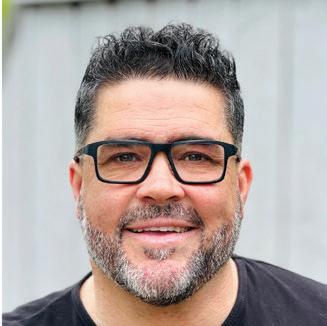
DAVE NOVAK
is a speaker, founder of The F2 Project, ordained Assemblies of God minister, and author of o More Dad Issues
24 Spring 2024

















Academic Excellence Since 1920 PAVING THE WAY FOR WORLDCHANGERS vanguard.edu Orange County, CA · Online

Mentoring Across Gender Lines
hy called men and women are better together
By NICHOLE SCHREIBER with ROD LOY
Our mentoring relationship is somewhat unusual.
I am a 42-year-old mom and pastor of Erie First Assembly of God in Erie, Pennsylvania. My mentor, Rod, is a 58-year-old grandfather who pastors First NLR (AG) in North Little Rock, Arkansas.
Rod and I met while serving together on a Network of Women Ministers training team. We are different genders, live in different parts of the country, and are at different life stages.
espite these differences, we are in a life giving, mentoring, and coaching relationship.
Rod and I regularly email, text and call. We also meet monthly on Zoom. Several times each year, we meet in person at events or conferences. We know and care for each other’s spouse, children, grandchildren and staff members.
The Assemblies of God credentials female ministers, who are eligible to serve in any ministry role. Although many denominations forbid women from holding pastoral positions, 655 women serve as lead pastors of AG churches, and thousands of others are staff pastors.
If we want to see more women leading across our Fellowship, we must be committed to mentoring and coaching them.
26 Spring 2024 LEADERSHIP | PRACTICE
Unfortunately, tradition, fear, discomfort, and misunderstandings often keep women from accessing the same mentoring opportunities as men. That should not be.
Rod and I didn’t start our relationship with the goal of setting an example, but we believe men and women working together shoul be the norm.
Mentoring can and should transcend gender. We don t spend time talking about gender differences because the same principles of leadership and ministry apply to both of us. The same truths from God’s Word guide us. The same Holy Spirit empowers us.
Tradition, fear, discomfort, and misunderstandings often keep women from accessing the same mentoring opportunities as men. That should not be.
Avoiding or ignoring the need for mentoring across genders has consequences. Women are overlooked for leadership, speaking opportunities, and open churches.
There is Kingdom work to be done. People need the gospel. We can’t let gender barriers slow down ministry. We must work together to reach the lost and build the Church.
esus knew it would take all of us to fulfill is mandate when He said, “Go and make disciples of all nations, baptizing them in the name of the Father and of the Son and of the Holy Spirit, and teaching them to obey everything I have commanded you” (Matthew 28:19–20).
ver several years of serving, praying, and leading together, Rod and I have forged a relationship that is not only workable, but worthwhile. When others ask how we do it, we point to 10 keys for any successful mentoring relationship.
1. Be wise. Avoid conversations and settings that cross boundaries of acceptable behavior.
Rod and I are always intentional about remaining professional and morally above reproach.
2. Be available. For me, church board meetings are among the most di cult parts of lead pastoring.
During one meeting, I called for a break several hours into discussing a complex problem. Retreating to my o ce, I called od for advice.
Rod immediately picked up the phone and gave me just the nugget of wisdom I needed, along with a bit of encouragement.
His availability to me in that moment was a game changer. I walked back into the meeting and settled the conflict swiftly.
f course, such availability should work both ways. I try to be fle ible and understanding of od s schedule. We normally meet at times that work best for him.
3. Be vulnerable. Mentoring only works in an atmosphere of honesty and vulnerability. Unless you are fully transparent about your weaknesses, thoughts and fears, a mentor can’t provide personalized advice.
In the same way, the mentor must be willing to share hard truths.
During one conversation, Rod told me, “No more excuses. Time to step up and be the leader.”
That was a challenge I needed to hear.
4. Be humble. Humility is an essential trait for mentors and mentees alike.
Philippians 2:3–4 says, “Do nothing out of selfish ambition or vain conceit. Rather, in humility value others above yourselves, not looking to your own interests but each of you to the interests of the others.”
The mentee must confess a need for wisdom, insight and advice. The mentor should acknowledge he or she doesn’t have all the answers, even while sharing helpful principles.
5. Be collaborative, not competitive. Root for the other’s success.
Rod told me early on, “When you have your biggest attendance day, call me. When you take up a
Spring 2024 27
huge offering, call me. I will celebrate with you and never tell you how many people we had or the size of our offering.
If I am winning, Rod is winning.
6. Be clear about expectations. Are you looking for a mentor or a new best friend? Do you want and need weekly meetings?
Mentoring relationships fail when those involved have different e pectations about the process. In our case, we agreed on monthly scheduled meetings and extra calls when needed.
7. Be prayerful. When one of us is sick, the other calls and prays. We also pray for each other’s church and ministry.
ne week, I sent my sermon outline for od to look through and offer suggestions.
Rod called and said, “As I was praying through your message, I had the strong sense there is going to be someone in your room this Sunday who is considering suicide. Seek God about it, but I think you should end this message by calling for special prayer for those people.”
After prayerful consideration, I followed Rod’s counsel. That Sunday, seven people responded to the altar call for those considering suicide.
Don’t neglect the spiritual component of a mentoring relationship.
8. Be generous. Rod shares freely, without any sense of competition or holding back — whether it is sermons, ideas, gifts or resources.
Most importantly, Rod invites me to be at the table during key meetings and leadership groups. od benefits from our collaboration as well. sermon I preached sparked the idea for his recent Easter message.
9. Be grateful. I recognize Rod’s time and attention are gifts I shouldn’t take for granted.
I express my gratitude as often as I can. I also follow up on previous advice by reporting the results. Positive feedback makes mentoring more rewarding.
10. Be realistic. It’s not necessary to do everything a mentor suggests, but listening to advice is one way to stay humble and teachable.
Mentors don’t have the answer to every problem or situation. In fact, a good mentor is willing to say, “I don’t know, but I can point you to someone who does.”
Mentors don’t have the answer to every problem or situation. In fact, a good mentor is willing to say, “I don’t know, but I can point you to someone who does.”
We are proof men and women c n work together in mentoring relationships.
Men, invest in a female minister’s professional development. Have a meeting. Encourage and pray for her. Treat her as your ministry equal and colaborer for Christ.
Women, don’t be afraid to ask for help and advice. Make the phone call. Write the email. If a leader turns you down, ask another one. Find godly mentors who will help you grow in ministry.
Rod and I certainly don’t agree on everything. We argue, joke, laugh and learn from each other.
But we both agree on this: We are better together. What began as a coaching relationship has become a deep, life-giving friendship.
We are unusual, but we shouldn’t be.
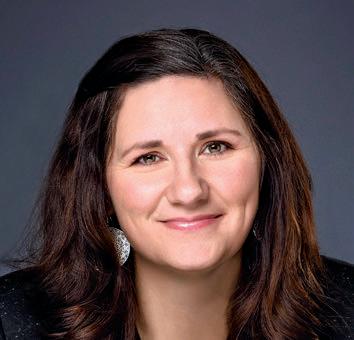

28 Spring 2024
NICHOLE SCHREIBER is lead pastor of First Assembly of God in Erie, Pennsylvania.
ROD LOY is senior pastor of First NLR (AG) in North Little Rock, Arkansas.




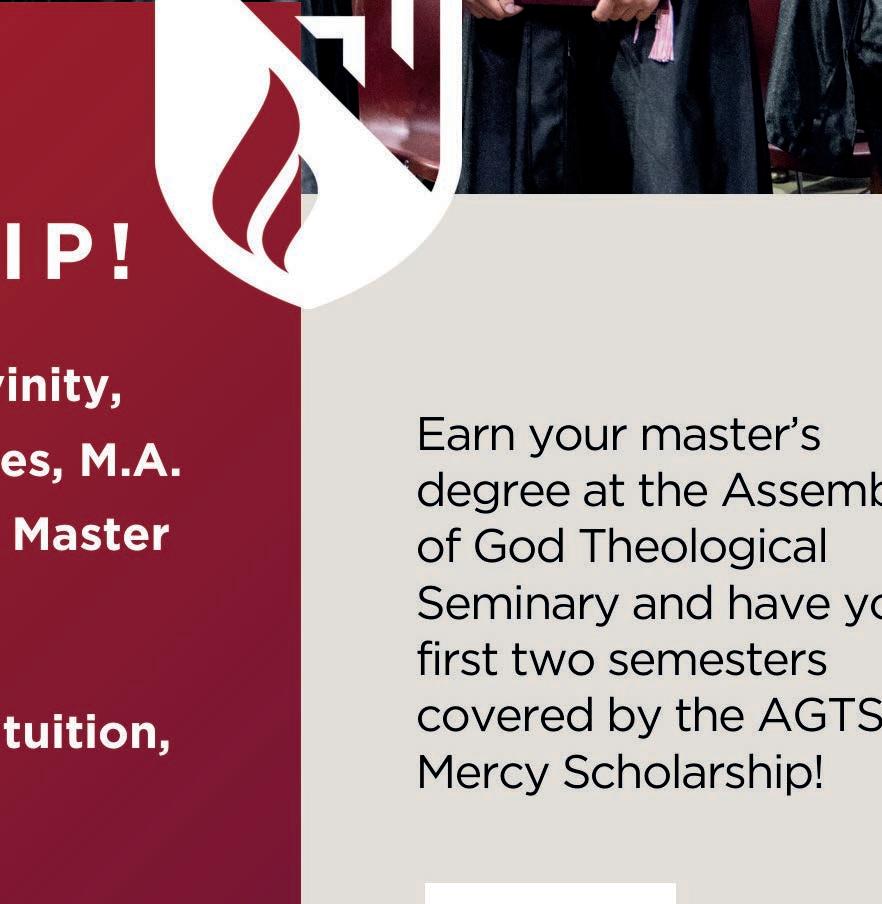


Character Matters Most hy church leaders should practice integrity in hiring
By GEORGE P. WOOD
One of the most important decisions a congregation makes is the election of its pastor. In turn, some of the most consequential decisions a pastor makes regard the hiring of pastoral staff. good deal hangs on these decisions. Good leaders can make a church, but bad leaders can break it.
In Healthy Leadership for Thriving Organizations, ustin . Irving identifies four qualities potential hires should exhibit. For each quality,
Irving provides leaders a diagnostic question to consider as they interview applicants.
1. Character. Is this a person of character who believes in our values and mission
2. Competence. “Does this person exhibit present competence or a significant capacity to learn
3. Chemistry. oes this person fit with our team culture, and will this person have good chemistry with the team
30 Spring 2024 LEADERSHIP | ETHICS
4. Complement. “Would this person be a complement to the team, or would adding this person produce a redundance (too much similarity) or a contradiction too much difference
While all four qualities are valuable, they are not equal. The 216 Christian leaders Irving interviewed gave character “sequential priority” over the other three qualities. Character matters rst.
Irving quotes Nathan Finn, a leader in Christian academia, to explain why: “It is not within my power to change someone’s character. If he is a person of character, I can often resource him to grow in competence. If he is a person of character and has an appropriate level of competence, I can almost always help him adapt to our culture.”
bviously, the same is true when the applicant is a woman.
There is truth in the sequential priority of character in hiring decisions. But when choosing leaders for a church, character matters ost, not ust first. haracter is more important than the other qualities.
Why Character Matters Most
I realize my claim is bold, but there are several reasons I believe it’s true.
he first is i lic l. In the pastoral epistles, Paul details qualifications necessary to hold church o ce as an overseer, elder, and deacon imothy 3:1–13; Titus 1:5–9). Character outweighs all other considerations.
For example, regarding overseers, Paul lists character qualifications in imothy , while “able to teach” is the only competence qualification. erses use management language, but the emphasis is on respectability. And verses 6–7 require spiritual maturity and a good reputation to avoid falling into “judgment” or “disgrace,” respectively.
Regarding deacons, of the 10 character qualifications aul lists in verses , all of them are character related.
Similarly, in Titus 1:5–9, character is Paul’s main concern for elders and overseers. f more than a
dozen qualities Paul lists here, only three have to do with competence: managing God’s household, hospitality, and teaching sound doctrine (verses 7–9). The others have to do with character.
That brings us to the second reason character mattes most: the n ture o inistry.
The nature of ministry is intensely personal. Jesus set the example for all Christians to follow. Consequently, pastors cannot lead where they have not followed.
Throughout the business world, executives and managers lead their employees to produce goods or provide services. While the character of employees is important, competence to make a widget or cater a banquet is more important. Those are the kinds of things customers want.
In the church world, however, pastors are not producing goods or providing services. Christianity is not a consumer religion in which the customer is always right. Pastors open the Word of God to their congregations to, as esus himself said, make disciples … teaching them to obey everything I have commanded you” (Matthew 28:19–20).
Teaching in this context doesn’t mean sh rin os el in or tion as much as it means showin os el tr ns or tion. That is why Christ’s call to the disciples began with the words, “Come, follow me” (Mark 1:17). And it’s why Paul lays emphasis on imitation: “Follow my example, as I follow the example of Christ” (1 Corinthians 11:1).
The nature of ministry is intensely personal. esus set the e ample for all hristians to follow. Consequently, pastors cannot lead where they have not followed.
A third reason character matters most is the current culture.
Spring 2024 31
Since the 1970s, Gallup has tracked Americans’ confidence in various institutions, as well as their perception of certain professions. The result is bad news. ver the past five decades, mericans have lost trust in organized religion, and they don’t think much of clergy ethics.
In 1973, 65% of Americans expressed a “great deal or quite a lot of confidence in organi ed religion. Fifty years later, just 32% of Americans had the same level of confidence.
A plurality of Americans considers clergy ethics no better or worse than everyone else’s. That’s a stinging indictment of a profession that’s supposed to be “above reproach” (1 Timothy 3:2).
Gallup’s 1977 poll saw 61% of Americans rating clergy ethics “high” or “very high,” compared to 32% who did so in 2023.
Sadly, the share of respondents rating clergy ethics “low” or “very low” nearly tripled over that same period, from 7% in 1977 to 20% in 2023. Almost half (45%) in 2023 said clergy ethics were “average.”
A plurality of Americans considers clergy ethics no better or worse than everyone else’s, in other words. That’s a stinging indictment of a profession that’s supposed to be “above reproach” (1 Timothy 3:2).
There are several reasons for this decline in trust of the American Church and its leaders. Pastors have acted scandalously. Media has trumpeted their failures. Partisanship distorts people’s perceptions of faith. And the rise of the “nones” means many are no longer predisposed to view religion favorably.
If people distrust Christians and view clergy ethics with suspicion, church leaders will have a hard
time advancing the gospel. People will not embrace the good news as good if they see its messengers as bad. We must earn — in some cases, earn again — our neighbors’ trust.
That’s why character matters most.
Making Character Matter
a e ree famously wrote, he first responsibility of a leader is to define reality. hat is what I have tried to do in this column define the reality that character matters most in a church’s hiring decisions. I hope I have been persuasive.
I also hope I have not been misunderstood. By saying character matters most, I am not suggesting competence, chemistry, and complementarity are unimportant. Churches should hire good people — team members who are lso good at their jobs, good with ministry peers, and a good mix for the team.
Above all, however, churches should ask whether applicants obey the Great Commandment (Matthew 22:37–40), produce the fruit of the Spirit (Galatians 5:22–23), and demonstrate love in their interactions with others (1 Corinthians 13:4–7).
As Paul pointed out, religious activity — no matter how spiritual and powerful it may seem — is useless in the absence of Christlikeness (1 Corinthians 13:1–3).
There is a proverb among human resources professionals that says, “We hire for competence but fire for character. ow often has that been true in our churches, when high achievers have been brought down by low behavior? Perhaps it’s time to put character first and emphasi e it most.
The rest can be taught.

GEORGE P. WOOD is executive editor of Influence magazine.
32 Spring 2024





Learning Options On-Campus | Online Partner Sites Nationwide Accelerated Timelines Earn credit for prior learning & work experience Relevant Knowledge Gain skills to immediately apply to your career Southeastern University Lakeland, Florida Follow us @seuniversity Associate | Bachelor’s | Master’s | Doctoral Learn more & apply today at SEU.edu DESIGN YOUR OWN SEU LEARNING EXPERIENCE God created you with a unique purpose. Unlock that purpose with a customized degree from SEU.
Transformational Leadership ualities that bring out the best in others
By KAYLA PIERCE
Good leaders manage teams that get the job done, but tr ns or tion l leaders inspire people to maximize their potential.
Whether a youth pastor motivating students to exceed their Speed the Light giving record or food bank organi er guiding volunteers toward greater effectiveness, some leaders have a way of bringing out the best in people.
What do transformational leaders have in common? Social scientists have been asking that question for decades.
In r ns or tion l e ershi , Bernard Bass and Ronald Riggio sifted through research to identify four distinguishing traits. According to Bass and Riggio, leaders who motivate team members to become the best versions of themselves are people of character, vision, innovation, and fle ibility.
34 Spring 2024 LEADERSHIP | INSIGHTS
CHARACTER VISION INNOVATION FLEXIBILITY
Character
Transformational leaders model high ethical standards. They don’t compromise character by disparaging others or cutting corners. They talk about their values, practice what they preach, and garner respect.
Transformational leaders cultivate an atmosphere of collaboration, spur others to rally around the mission, and instill confidence.
People can trust such leaders to do the right thing even when no one is watching. This encourages team members to give their best effort.
ou don t have to look far to find e amples of moral failure in ministry. However, the absence of scandal does not necessarily indicate the presence of integrity.
Even small lapses in character — like telling people what they want to hear and then doing something else erode confidence. When a leader’s character is in question, team members will be hesitant to follow, and ministry will stall.
The apostle Paul was a transformational leader who consistently demonstrated Christlike character (1 Corinthians 11:1). He also encouraged those he led to do the same. Consider Paul’s words to Timothy: “Set an example for the believers in speech, in conduct, in love, in faith and in purity” (1 Timothy 4:12).
Paul cultivated accountability and trust through transparency. For example, in addressing his ministry team’s handling of funds, Paul wrote, “We are taking pains to do what is right, not only in the eyes of the Lord but also in the eyes of man” (2 Corinthians 8:21).
Make integrity a daily priority. Find a trusted spiritual mentor who is willing to tell you when a
course correction is in order. And look for ways to provide greater transparency in your ministry.
Vision
Transformational leaders articulate a clear, compelling vision of what the future could be, and then motivate people to move toward it.
These leaders cultivate an atmosphere of collaboration, spur others to rally around the mission, and instill confidence.
When enthusiasm within the group starts to wane, transformational leaders offer team members encouragement and remind them why their contributions matter.
Be intentional about communicating your vision and optimism, while checking the emotional pulse of your team often for early signals of discouragement. Even a brief email or impromptu pep talk can give staff members and volunteers a second wind.
As a teen, I picked up students who needed a ride to youth group. n one occasion, a girl who had been coming to church with me suddenly stopped responding to my texts.
I felt discouraged and frustrated, but a mentor reminded me my effort was not in vain. his leader explained that even if the girl never returned, every night I had driven her to church was a night she had heard God’s Word.
That bit of encouragement reoriented me toward my ministry calling and inspired me not to give up on my outreach efforts.
The apostle Paul took a similar approach when Timothy was dealing with church strife. Paul wrote, “No one serving as a soldier gets entangled in civilian affairs, but rather tries to please his commanding o cer imothy .
This empowering metaphor drew Timothy’s attention away from his momentary challenges and toward the long-term mission.
aul also e pressed confidence in imothy s ability to navigate these di culties with od s help
eflect on what I am saying, for the ord will give you insight into all this” (verse 7).
Spring 2024 35
Follow Paul’s example by rallying behind team members needing support. Share stories and testimonies to boost their faith. Let them know you are in their corner, cheering them on and praying for them every step of the way.
Innovation
Transformational leaders practice and promote critical thinking and innovation. They invite team members to challenge assumptions and try new things. Such leaders encourage creativity and continual progress.
Maintaining the status quo is easier. Innovation takes time and energy. Nevertheless, transformational leaders are always looking for ways to improve and helping others imagine, invent and excel.
When I was a children’s leader, my pastor often challenged me to think bigger. I tended to be frugal. While appreciating my prudence, my pastor tried to ensure a desire for cost savings didn’t impede vision.
I was working from the template of how things had always been done, but my pastor challenged me to suspend that framework and imagine what coul be. His leadership, and the innovative environment he encouraged, inspired some of our coolest stage sets and most creative games.
e ect on the unique qualities of your team members.
Even if you are not especially creative, you can nurture an atmosphere of innovation. Debrief with your team after events, asking for suggestions on how to improve.
Create a judgment-free environment in which people feel comfortable brainstorming and articulating ideas.
Flexibility
There is a temptation in leadership to interact with everyone in the same way. However, transformational leaders are versatile. Their leadership style is fle ible enough to adapt and respond to individual team members.
eople require different levels of coaching, collaboration, structure, and oversight, and those needs evolve over time.
ransformational leaders re ect a one si e fits all approach. They value diversity, take time to identify each person s strengths, and offer personali ed training and mentoring.
As ministry leaders, we should go a step further and interact with team members prophetically — envisioning who they could become and how God might use them in the future.
Again, the apostle Paul provides a great example. Paul’s relationship with Timothy was personal. Paul reminded Timothy of his family and spiritual heritage, encouraging him to fan into flame the gift of God” (2 Timothy 1:5–6).
aving e perienced firsthand the life changing power of the Holy Spirit, Paul recognized God’s anointing on this young man and called out Timothy’s ministry potential.
eflect on the unique qualities of your team members. Are you maximizing their strengths? Identify the gifts they may not yet see in themselves. And provide opportunities for each person to grow.
In 2017, rontiers in sycholo y published an analysis of 761 studies on transformational leadership. The researchers discovered that people with transformational leaders demonstrate greater commitment to their organizations, trust in their leaders, and willingness to exceed expectations.
Every pastor wants that kind of buy-in from their team members.
Take intentional steps toward becoming a leader who brings out the best in others. And trust God to transform hearts and lives through your ministry.

KAYLA PIERCE, Ph.D., is a sociologist and ministry research consultant.
36 Spring 2024

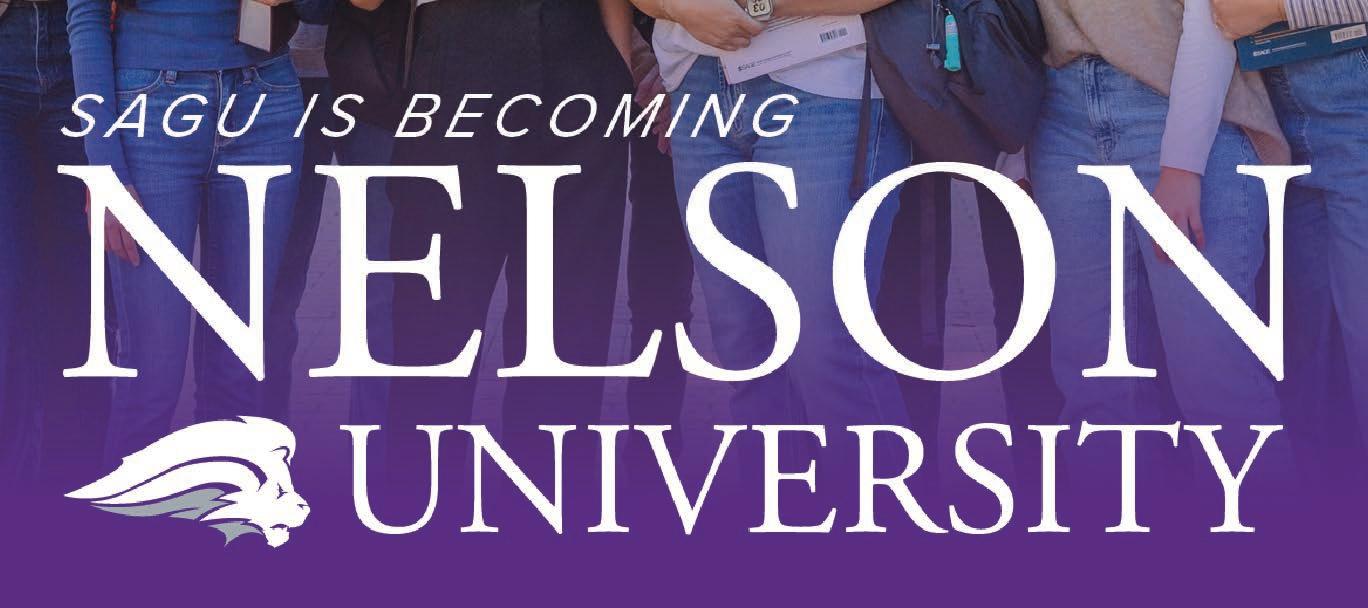




CONTINUE YOUR EDUCATION Accelerated Programs 7-week sessions to accommodate your busy schedule A ordable Tuition 88% of SAGU online students receive financial aid Credit for Life Experience earn up to 45 hours of course credit for previous knowledge and job experience ACCREDITED DEGREE AVAILABLE IN MINISTRY | BUSINESS | EDUCATION | THEOLOGY | LEADERSHIP | PSYCHOLOGY A history of academic excellence, Spirit-filled leadership and ministry training continues with you. LEARN MORE ABOUT THIS EXCITING NEW CHAPTER AT NELSON.SAGU.EDU UNLOCK YOUR POTENTIAL WITH AN $
Growing Through the Great Depression
Enduring lessons for di cult times
By DARRIN J. RODGERS
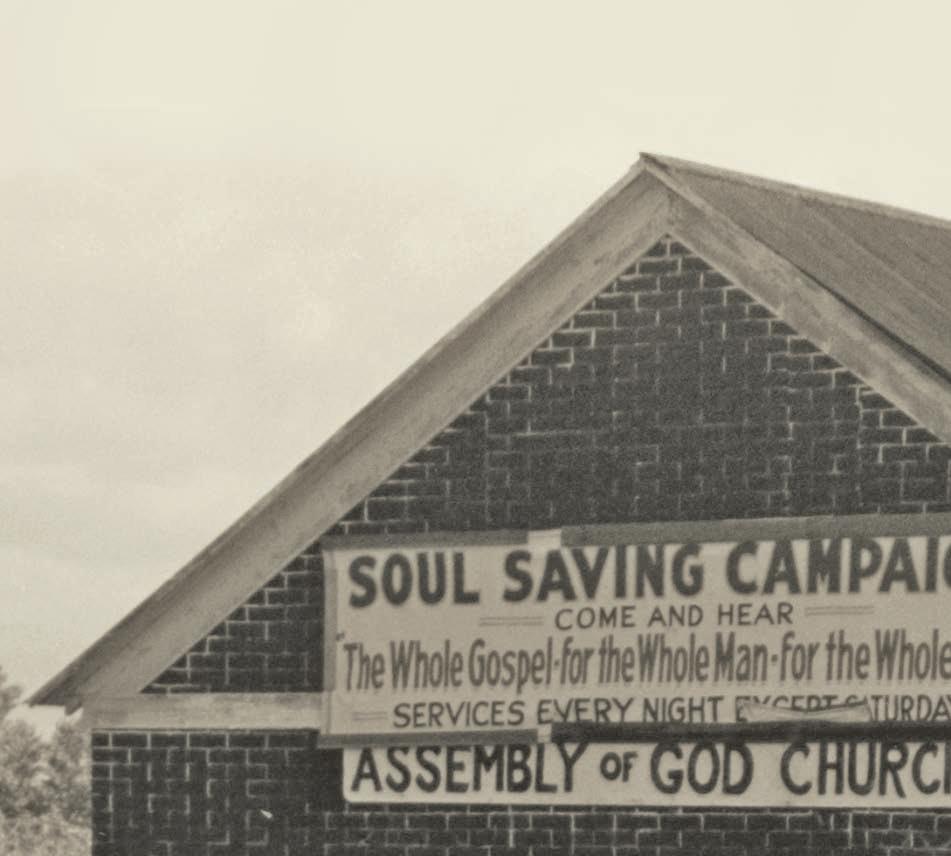


After Wall Street crashed in 1929, religious institutions experienced the fallout. Many churches, Christian schools, and ministries closed or scaled back during the Great Depression.
Historian Mark Noll notes mainline Protestants faced not only economic struggles, but also spiritual uncertainties as liberal theology threatened historic Christian beliefs.
However, there were exceptions to church decline during the 1930s. Notably, Pentecostals made significant gains.
According to U.S. Census Bureau religious survey data from 1926 and 1936, the number of Assemblies of God churches nearly quadrupled, and AG membership tripled, during that 10-year period.
From 1936–44, the number of AG churches increased by 94% and membership by 54%.
A deep dive into these statistics reveals eight enduring lessons that can guide today’s church leaders through whatever challenges lie ahead.
Lessons
1. Both urban and rural ministries are important. The 1926 and 1936 censuses broke down data by urban and rural churches. The U.S. government defined urban as a city or other incorporated area with a population of at least 2,500 people.

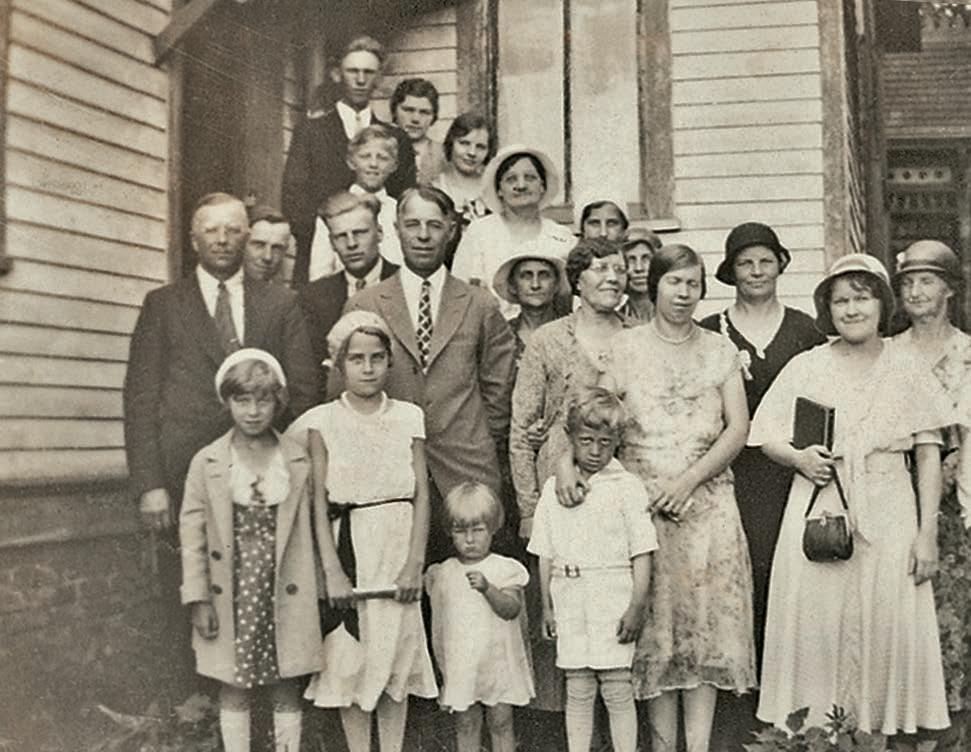

Areas not meeting these criteria were categorized as “rural.”
Urban n rural churches flourished from 1926–36. Urban church membership grew by 280%, while rural membership saw 360% growth.
Migration of people from rural areas benefitted urban churches. espite this population movement, rural church membership grew significantly.
When other social institutions are struggling, local churches offer communities stability and spiritual solutions amid social upheaval.
Don’t underestimate the Kingdom potential of rural areas. hese small fields may yield an abundant harvest of souls.
38 Spring 2024
LEADERSHIP | HISTORY




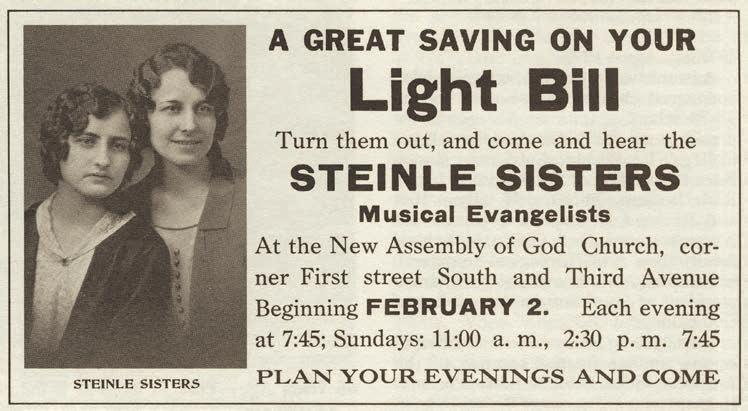
In the providence of God, the painful social dislocation of the 1930s helped bring about the rapid spread of Pentecostalism.




o or uni ies. American Pentecostals left rural areas in the Midwest and South, migrated to the West and North, and started congregations in almost every major U.S. city.
In the providence of God, the painful social dislocation of the 1930s helped bring about the rapid spread of Pentecostalism. Like pollen scattered by a strong wind, Pentecostal refugees from rural areas planted churches wherever they happened to land.
. i e an loca ion on e er ine c urc eal . Urban churches tended to be larger than rural churches. In 1926, urban churches averaged 100 members, while rural churches had 45 members on average.
These congregations might seem small in comparison to today’s megachurches. However, a church does not require large numbers to be healthy and growing.
. urc e ansion re uires a ing o in se . The growth of God’s kingdom doesn’t necessarily mean individual congregations are getting larger.
The number of AG churches and adherents grew at an astounding rate from 1926–36, even as
individual congregations shrank. The average size of urban churches decreased from 100 to 86 members during that 10-year period, and rural churches declined from 45 to 36 members.
Aggressive church planting and evangelism can expand the Kingdom, but this doesn’t always translate into bigger numbers for the local body. As people leave their churches to start new ones, it can be painful for the sending congregations.
Nevertheless, ministers need to remain Kingdom-minded — prioritizing the Church’s mission over attendance figures.
. uca ion uels e angelis . Assemblies of God Bible colleges helped lay a foundation for growth during the Great Depression.
Of today’s seven largest AG colleges and universities, four started during the Depression years: North Central University in Minneapolis; Northwest University in Kirkland, Washington; Southeastern University in Lakeland, Florida; and the University of Valley Forge in Phoenixville, Pennsylvania.
Students from these schools fanned out into rural communities and large cities. Some held high-profile evangelistic campaigns, but most started small. Countless outstations and Vacation Bible Schools took root and developed into churches.
. e urc nee s calle o en. A significant portion of the Fellowship’s growth during the 1930s can be attributed to female ministers.
For example, women pioneered 29% of all AG churches and outstations in North Dakota through 1940.
Established congregations generally sought male pastors. Less desirable ministry opportunities were
Spring 2024 39
. i cul ies can ring issional
often left to women. Despite these unfortunate limitations, women proved their mettle by venturing into tough ministry fields and achieving solid results.
Many early female ministers were young and traveled in pairs. ne woman typically preached, and the other led singing.
In areas where entecostalism was new, the prospect of seeing female clerics often attracted crowds of curious onlookers.
Women have a valuable role to play in ministry. We must remain committed to overcoming biases and social barriers so every called woman can realize her full potential.
. en in i cul i es i lical s u y a ances. scholarship blossomed during the Great Depression. Myer Pearlman, P.C. Nelson, and . . Williams wrote many of their influential theological books around this time.
People we remember as pioneers navigated significant challenges to meet ministry needs. earlman and elson literally worked themselves to death, their health breaking under the strain of constant writing, teaching and preaching. et their legacies and contributions to theology remain. . iri ual e is ey o c urc eal an gro . In good times and bad, growth requires consecration.
In , evangelist hristine err eirce made this observation about merican hristianity
Our modern methods are fast wearing out. hat which a few years ago attracted the great crowds, attracts them no more. We have worn out every spectacular appeal we could make and while a few are reached here and there, yet the truth stares us plainly in the face that nowhere are we doing more than ust scratching the surface, in comparison with the great number of unchurched and unsaved that should be reached. his could easily describe the condition of many segments of the merican hurch in . ow can we remedy this problem eirce dismissed the notion the hurch needs more spectacular methods. Instead, she declared, he
AG Churches and Members
need of the present moment is men and women of vision
plaining that hristians must first see od himself, eirce said we also need a vision of others. he wrote, true vision of the lost world will prostrate us on our face with a burden of intercession. eirce articulated an early entecostal worldview that cultivated deep commitment to hrist and is mission. This worldview, more than anything else, was responsible for growth during the s.
Committed to the Mission
onsidering the social and financial turmoil of the Great Depression, it would have been understandable if leaders had chosen not to invest in church planting, missions, and education during those years.
owever, di cult times reminded believers that hrist s second coming could be imminent, and the harvest fields were ripe.
iewing the economic crisis as an opportunity for outreach, ministers and adherents engaged in fervent prayer and great personal sacrifice to advance the ingdom of od.
an today s hurch grow in the face of economic and social uncertainties If history is an indicator, the answer is a resounding yes.
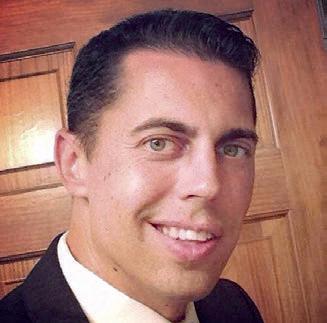
40 Spring 2024
DARRIN J. RODGERS, J.D., is director of the Flower Pentecostal Heritage Center at the Assemblies of God national o ce in pringfield, issouri.
TOTAL CHURCHES TOTAL MEMBERS 1926 671 47,950 1936 2,611 148,043 1944 5,055 227,349 1926 – 44 653% growth 374% growth




Preserving and Sharing Our Heritage Access digitized periodicals, photographs and other research tools Invite Ruthie Oberg to preach at your church or district event Explore treasures in over 150 languages in the world’s largest Pentecostal archives Located in the Assemblies of God National Offices Open daily, Monday through Friday, 9:00 a.m. to 4:30 p.m. | No admission fee | Free parking | Handicap accessible 1445 N. Boonville Avenue, Springfield, MO 65802 | email: archives@ag.org | call: 877.840.5200 Discover 3,000 sq. ft. of fascinating exhibits and interactive video kiosks Flower Pentecostal Heritage Center ONLINE AT iFPHC.ORG EVENTS SPEAKER RESEARCH CENTER MUSEUM
By HEATHER WEBER
From Monocultural to Multicultural
It’s no secret church attendance has declined in recent years. Some pastors worry prepandemic crowds will never return.
In hurch or veryone, pastors Dan Kreiss and Efrem Smith suggest congregations c n see marked and sustained growth — but only if they capture the hearts of “emerging generations.”


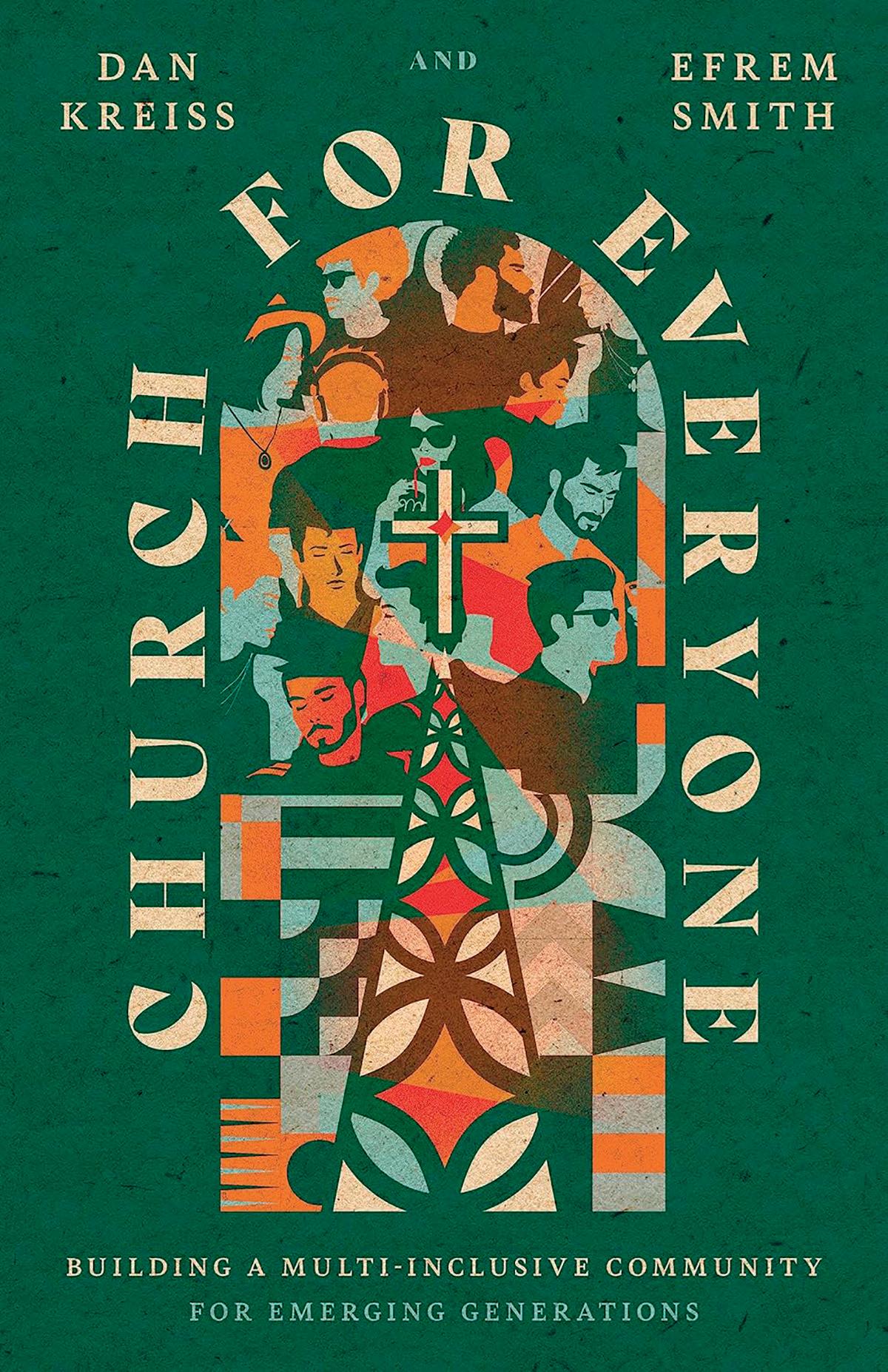
Americans born after 1980 are withdrawing from church faster than older generations, but they aren’t withdrawing e u lly across all church types.
According to Kreiss and Smith, young people are less likely to stay in a “monocultural” congregation,
where a single race or ethnicity comprises at least 80% of parishioners. They are more inclined to remain in church when they sense there is a place for everyone.
Millennials and Gen Z are particularly attuned to inclusion. Where these generations see a lack of diversity in church, they often conclude (rightly or wrongly) faith communities are exclusive.
f course, diversity alone can t solve the problem of shrinking church attendance. Kreiss and Smith acknowledge diversity for diversity’s sake shouldn’t be the goal. Instead, the Church should seek to become the inclusive, reconciling body of Christ portrayed in Scripture.
To get there, all churches — especially whitemajority ones — need to think outside the box and embrace discomfort for the Kingdom.
The authors begin with a survey of our cultural moment and the values that shape today’s young adults. These generations appreciate stories and experiences and care deeply about diversity. They grew up in a postmodern world, which is often indifferent toward church attendance.
Technology enables global, cross-cultural connections, even as it isolates people from meaningful relationships.
Meanwhile, many congregations are not only homogenous, but inward-focused and consumerminded. Evangelizing neighbors and reconciling across differences are not priorities when church is all about what the individual can get out of it.
Consequently, monoculturalism is the default in many churches. vercoming it, the authors say, will take time and look different for each congregation.
It starts with following esus e ample. hrist ministered to the poor, individuals with disabilities, and people from other ethnic groups.
esus didn t ust have compassion on the vulnerable. He ec e vulnerable, crossing barriers to reach the marginalized. His people must do the same.
42 Spring 2024 LEADERSHIP | BOOKS
Kreiss and Smith confront readers with an important question: If we want to embody God’s inclusivity, are we willing to experience the discomfort of seeking reconciliation with those unlike us?
Kreiss and Smith provide stories of how churches in different conte ts large, small, rural, urban discerned how to live as Spirit-led, cross-cultural disciple makers. The authors also present the major challenges every church will face in this endeavor.
Such challenges include a weak theology for inclusion; confusing Christian culture with whitemajority culture; making space for minority voices; and church-growth models that focus on one demographic, such as middle-class suburban families.
The theological and practical meat of the book lies in Chapters 6–8, where the authors trace themes of diversity and inclusion throughout Scripture, from Abraham to Christ.
Kreiss and Smith confront readers with an important question: If we want to embody God’s inclusivity, are we willing to experience the discomfort of seeking reconciliation with those unlike us? or white hristians, the first step is acknowledging the American Church’s history of racism and the ways it has impacted congregational formation and exclusivity.
The authors quote C.S. Lewis, who said, “A sum can be put right but only by going back till you find the error and working it afresh from that point, never simply by going on. … Time does not heal. The spell must be unwound, bit by bit.”
Wounds of racism within the Church will heal only as we acknowledge painful truths of the past.
Further, we must be willing to see our own racial and cultural biases. nly then can true reconciliation — and inclusivity — occur.
For practical help in understanding how reconciliation works, the authors recommend the work of several lack theologians and offer an e tensive
overview of Brenda Salter McNeil’s o to econcili tion . .
So, how do we keep the church in America from shrinking into oblivion? The argument of hurch or veryone boils down to this: We must strive to embody the inclusive ethic of God’s Kingdom instead of clinging to the status quo.
If we do, emerging generations will discover their places within the multiethnic, reconciling, and purpose-driven family of God.
Book Reviewed
Dan Kreiss and Efrem Smith, hurch for Everyone Building a Multi Inclusive ommunity for Emerging enerations (Downers Grove: IL: InterVarsity Press, 2024).
A Grateful Heart
I recently received an email with the subject header, “Thanks, actually.”
The message was from a digital services company. It went on to express gratitude for the opportunity to “deliver happiness … every single day.”
It’s a dramatic claim from a company facilitating online meetings. But the marketing strategy is not unique. For years, businesses have used gratitude as a way to connect with customers.
Similarly, individuals often seek to leverage the power of thankfulness. Some people keep gratitude journals or participate in social media gratitude challenges, hoping to experience the touted psychological and physical health benefits of such positivity.
Spring 2024 43
Christians, however, are called to a deeper kind of gratitude. In r titu e: Why ivin h n s s the ey to ur Well ein , Cornelius Plantinga examines what the Bible says about a thankful heart.
Gratitude in the New Testament is linked to the Greek word euch rist , or giving thanks. ust before is crucifi ion, esus gave thanks as e shared the Last Supper with His disciples (Matthew 26:27; Mark 14:23; Luke 22:17; 1 Corinthians 11:24).
The English word Eucharist derives from euchrist . Protestants more commonly refer to this observance of the Lord’s Supper as Communion.
In Scripture, euch rist denotes both “grace” and “gratitude,” epitomizing a faith that centers on God’s gift of grace and our gratitude for it.
Plantinga says Christians should strive for a grateful disposition, rather than fleeting moments of “feeling grateful.” Indeed, a heart of gratitude is God’s will for believers (1 Thessalonians 5:18).
Alongside theological reasons for Christians to value and cultivate thankfulness, Plantinga describes how gratitude works — the way we develop it, what keeps us from it, and what happens when we have it.
“Gratitude is a glad sense of being gifted with something by someone and thus being indebted to the giver,” Plantinga writes.
Christian gratitude involves acknowledging God as the Giver of all good things and expressing thanks to Him.
lantinga offers strategies for cultivating gratitude, including reciting the “mighty acts of God” in our lives and in cripture reflecting upon the meaning of Christ’s death and resurrection; observing small (and easily missed) daily graces; and savoring and celebrating gifts for which we are particularly grateful.
Prevalent attitudes in our culture — such as cynicism, self su ciency, greed, apathy and entitlement — can choke out thanksgiving. Yet Christians who overcome these hindrances will experience the many benefits of gratitude. he result is a virtuous cycle,” in which gratitude yields a harvest of contentment, joy, generosity, improved physical health, and God’s comfort in the midst of grief.


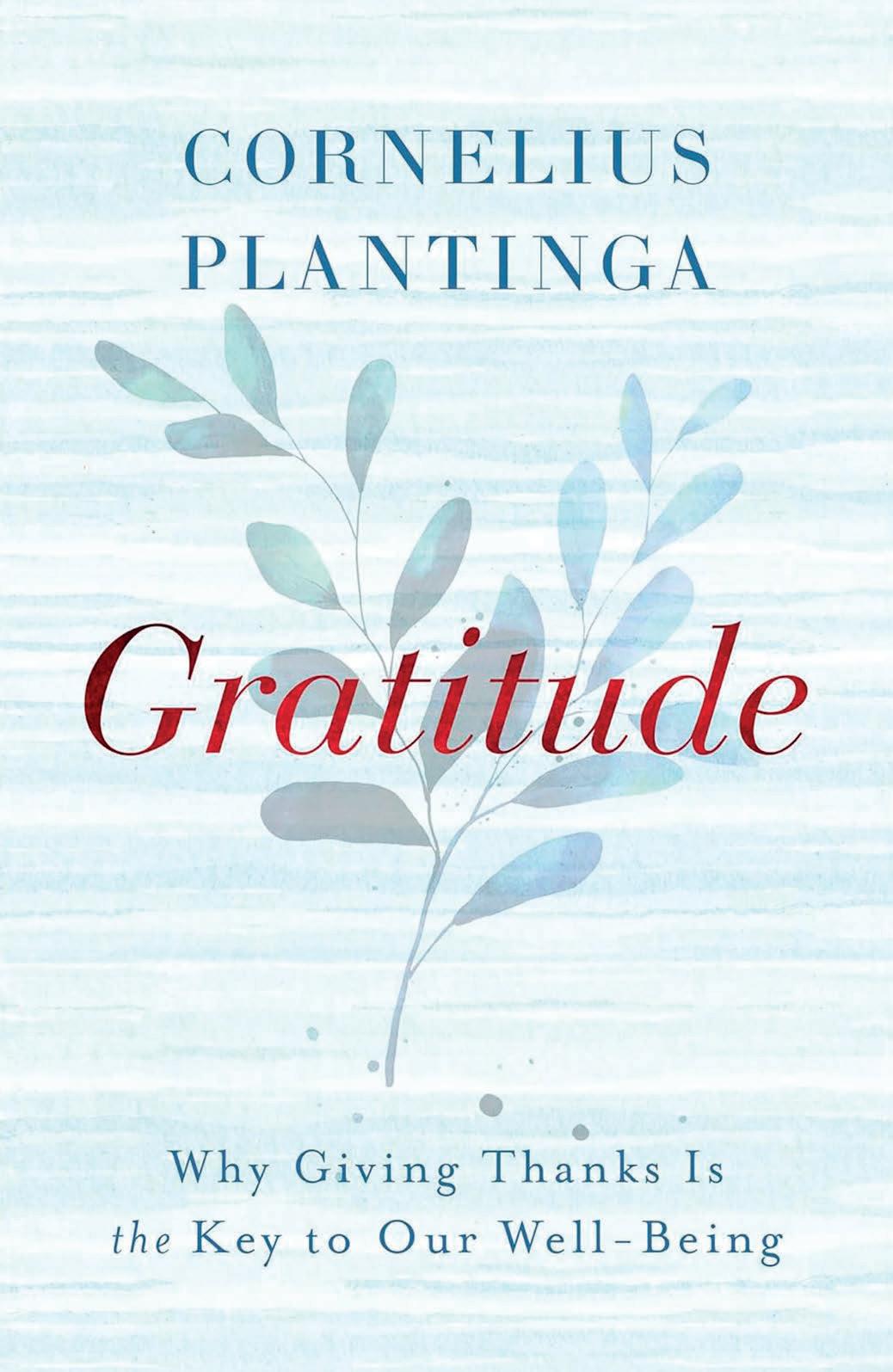
While gratitude should arise from the right motives (honoring and glorifying God), Plantinga acknowledges the perks might just include a better night’s sleep.
Book Reviewed
Cornelius Plantinga, ratitude hy iving hanks Is the ey to ur ell Being (Grand Rapids, MI: Brazos Press, 2024).

HEATHER WEBER
is a writer, leadership coach, and sectional presbyter for the Iowa Ministry Network (Assemblies of God).
44 Spring 2024





































































































































































46 Spring 2024
hinking about my weekend sermon, I felt anxious. I didn’t know what to say.
Two contentious political issues were on the ballot in my home state of Ohio. For many people, the choice was a matter of right and wrong. However, not everyone agreed on which side was right, and which one was wrong.
I knew some parishioners expected me to take a stand. Others thought I should steer clear of politics.
As a pastor, I wanted to provide guidance. I also realized congregants couldn’t come to me with every personal, political, and cultural decision they made.
What tool could I offer them for moments like these?
The Early Church
Such cultural dilemmas are nothing new. Much of the Bible deals with how God’s people are to live amid conflicting belief systems.
Surrounded by pagan kingdoms, Israel’s calling was to be a holy nation. Daniel and his friends were exiles in a country that did not share their faith.
In cts , the first century hurch struggled with how to disciple members from different backgrounds. Divisions among believers revolved around two questions. he first had to do with salvation. Should Gentile converts submit to circumcision, or was grace truly su cient cts 15:1,11)?
The second question concerned diversity. How could ews and entiles come together as a hurch community with all their cultural differences
Such questions were generating tension, condemnation, and confusion. To address these issues, leaders called the erusalem ouncil.
After debate, deliberation, and prayer, leaders determined they should not make it di cult for entiles who were turning to od cts . alvation comes through grace, not ceremonial acts. he apostles and elders crafted a letter, offering instructions on how Gentile converts should live.
ome details of this first century missive might make little sense in our 21st-century context. It is, however, extremely insightful as we consider the questions of our times.
It seemed good to the Holy Spirit and to us not to burden you with anything beyond the following requirements: You are to abstain from food sacrificed to idols, from blood, from the meat of strangled animals and from sexual immorality. You will do well to avoid these things. arewell cts .
t first, this might appear to be a list of legalistic rules. Yet there are reasons behind each of these prohibitions, along with important lessons for navigating the issues of our day.
GPS
When I was growing up, people needed cumbersome paper maps to get from Point A to Point B. Today, I simply use the global positioning system app on my phone. This remarkable technology has completely changed the way most Americans navigate.
A GPS helps travelers quickly determine where they are, where they are going, and what maneuvers they need to make to get where they want to be. It does this by connecting users to a source and power that is above and beyond them.
It’s a useful analogy for navigating life. With this in mind, I presented my congregation with what I call the GPS framework for making wise, Godhonoring decisions. GPS is an acronym for God, People, and Self.
God
The apostles wanted to know God’s will. The Jerusalem ouncil was not ust about articulating what seemed good to them. They sought the Holy Spirit’s guidance cts .
hrist s death on the cross had broken down the dividing wall of hostility phesians . ince Pentecost, the Spirit was being poured out on all people. It pleased God to save both Jews and Gentiles.

48 Spring 2024
or the entiles, hristianity meant forsaking idols and serving the one, true God. For the Jews, it meant honoring God above tradition. Only God is worthy of first place in our lives.
ust like those arly hurch believers, we must give God the place of prominence in our decision making. During times of uncertainty, we should prayerfully consider before proceeding, Would this choice or action glorify God?
Scripture guides us in these matters. The leaders in Acts 15 looked to God’s Word. When we properly interpret the Bible and live in obedience to its teaching, we have wisdom for life.
A decision that is out of step with God’s Word is the wrong one. Yet I am often surprised at how many people claim to be hristians while disregarding what pleases God. Rather than examining their actions against Scripture, they make culture their guide.
Many assume whatever is legal or socially acceptable must be OK. They are hesitant to evangelize their friends because they don’t want to talk about exclusive truth claims. This kind of thinking is far from the teachings of Jesus and the apostles.
We can’t personally or corporately take God’s Word for granted. When making decisions,
hristians should start by asking what glorifies od so they can line up their choices with His Word and His Spirit.
People
At the core of that correspondence in Acts 15 was a love for people. The welcome Gentile believers received greatly encouraged them. The decision also preserved some dietary customs, taking into account the concerns of Jewish church members. very person mattered in this decision.
The apostle Paul taught that if one person’s freedom becomes a stumbling block to another, love should prevail over liberty. Our goal is doing what leads to peace and mutual edification omans .
s aul wrote in orinthians , o not cause anyone to stumble, whether Jews, Greeks or the church of God — even as I try to please everyone in every way. For I am not seeking my own good but the good of many, so that they may be saved.”
In other words, what is best for another person’s spiritual growth is more important than my personal preference.
ew decisions affect ust one person. he actions of each life ripple across the lives of others.
































Spring 2024 49 GPS
is an acronym for God, People, and Self.
When making decisions, hristians should ask themselves, How might this encourage or discourage others?
This perspective leads to other important questions ould this action offend or confuse someone who is not strong in faith? Am I treating people respectfully? How might my choices cause another believer to stumble spiritually? Have I taken into account what is best for others, loving my neighbors as myself? Am I truly showing people who Jesus is?
Self
ven as they sought to glorify od and encourage others, arly hurch members were also concerned about personal spiritual growth.
We must be on guard against anything that creates distance in our relationship with God. Grace is not a license to do whatever we want when we think no one is watching. On the contrary, Paul said grace teaches us to say o to ungodliness and worldly passions, and to live self-controlled, upright and godly lives in this present age itus .
aul warned the orinthians that believing they had a right to do something didn t make it beneficial orinthians .
Sharply critiquing their carelessness toward immorality, aul said, o you not know that your bodies are temples of the Holy Spirit, who is in you, whom you have received from God? You are not your own; you were bought at a price. Therefore honor od with your bodies orinthians .
When facing a personal decision — especially one involving temptation to sin hristians must consider how it will affect their spiritual lives.
The key question is, What can I do to draw closer to God rather than drifting further away?
very decision we make eventually affects our lives — for better or worse. Anything that weakens our relationship with Jesus is the wrong choice.
Traffic Lights
When I look out across our congregation, I often think about the stories and experiences represented in the room.
Not everything in life is red or green. There are many yellow-light issues, where people aren’t sure what to do.













50 Spring 2024
I see the faces of people who are at different places on their spiritual ourneys. ome have served esus for decades. Others are new to the faith. Still others are searching for truth.
Pastors can’t assume everyone thinks or lives according to the same standards. This can make navigating cultural matters quite tricky. It has been helpful for me to think of issues like a tra c light.
Some matters are red-light issues. The biblical answer is an emphatic o or top e ual immorality is an obvious example.
Others are green-light issues. These are things we know God wants us to do, like loving our neighbors. here s no need to stop. eep living like that. o
However, not everything in life is red or green. There are many yellow-light issues, where people aren’t sure what to do. Do I stop? Do I go? How can I know?
I encourage those facing confusing issues to consider the framework. What glorifies od What encourages other people? What leads you closer to God? Based on those answers, the choices often become much clearer.
Among the topics of concern in Acts 15 were some yellow-light issues. Amid the cultural challenges of Jews and Gentiles worshipping together, there were controversial debates church leaders had to address.
eat sacrificed to idols isn t a hot button topic in my congregation. But people are facing choices about where they direct their attention and what they consume.
Parents are making decisions concerning their children and social media. Workers are thinking about how to reflect hrist s character in the boardroom or on the factory floor. eenagers are considering whether the Bible or culture should define their se ual ethics.
very day, hristians make choices about what is right and wrong. When navigating di cult decisions, we need to remember we do not live in a vacuum. hoices have consequences.
In each decision, we should seek to glorify God, love others, and grow in faith.
Stumbling Blocks
During elementary school, I rode the bus daily. My body was growing fast, and I did not like being cooped up in a small bus seat. very chance I got, I stretched my legs into the aisle to gain some space.
Without fail, the bus driver spotted my leg and yelled, had et your feet out of the aisle
I begrudgingly retracted my limbs back into the confines of the seat. ach time, my frustration grew over what I saw as the bus driver’s determination to keep me from being comfortable and free.
Looking back, I wish that instead of yelling at me, the driver had taken the time to explain what was really going on. When my legs were in the aisle, I became a trip hazard. A student trying to enter or exit the bus could have easily stumbled over my foot.
onfining me was not the bus driver s intent. he was ust trying to keep us all safe. he aisle wasn t the place for my freedom. It was a place for me to show concern for my fellow travelers. I didn’t want anyone to stumble, so keeping my feet out of the aisle would have made sense if only I had understood.
Working through di cult and divisive topics using the GPS framework can help create a biblical community that minimizes stumbling blocks.
Politics
Whether we like it or not, politics are part of congregational life. Believers want to make voting decisions that align with their faith, and they often look to pastors for guidance.
With our state’s controversial ballot issues looming, I wanted to equip my diverse congregation to think with the mind of hrist about political matters — without explicitly telling them which box to check.
While pondering this dilemma, I remembered a sermon I had preached a few months earlier. I had presented the GPS acronym as a model for navigating cultural issues. After prayer and consideration, I felt it could also be effective for making political decisions.
Spring 2024 51
very pastor wants to help people live according to the truths of Scripture, but we can’t be there when they are wrestling with a moral question at work or deciding which lever to pull in the voting booth. We must teach them how to apply God’s Word and hear from His Spirit in their everyday decisions.
Political tensions can quickly lead to confusion and division in congregations. ike the hurch in Acts 15, we need the help of the Holy Spirit.
iscipling people to think in terms of od, eople, and Self” is one way to address those tensions. Prayerfully using this simple, memorable tool not only moves congregants toward God-honoring decisions, but it also encourages them to think more biblically in every aspect of their daily lives.
A few weeks before that contentious state election, I walked my congregation through the issues at hand. Humbly presenting the GPS model as a process of spiritual discovery allowed me to speak truth while taking others on the ourney with me.
We began by considering the in the framework: God. What does God’s Word say about the political choices in front of us? What decision would glorify Him?
The Bible addresses some issues in the political arena. ost hristians can find scriptural clarity on questions relating to the sanctity of life and sexual morality. It is important to present such matters as biblical truth rather than cultural interpretation.
Other issues, however, are not always as clear. These provide opportunities for discussing how the Bible speaks to everyday life.
For example, warnings about intoxication establish principles we can apply to drug legalization debates roverbs phesians . biblical view of family informs parental rights questions.
Scripture is not silent about how we should live. he in reminds us to go back to the ible so we can learn to glorify God in all we do.
y ne t step was introducing the in the framework: People. I encouraged the congregation to be community minded. The American mindset is individualistic, which leads many
people to think only in terms of what is best for them personally.
Scripture teaches us to think not only of ourselves, but of others as well — even to the point of loving them as ourselves.
very political decision has ramifications for people around us. he o cials we elect and laws we enact can impact lives for generations to come.
Voting only for our own interests is self-serving. It is important to consider how the things we endorse will affect the needy and vulnerable, as well as future generations. Scripture compels us to take into account the needs and interests of others.
In a recent conversation with a friend, a political, hot-button topic arose. It didn’t take long to realize we saw things quite differently. It wasn t a matter of scriptural interpretation. Instead, our differences of opinion came down to what we individually believed was best for society.
My friend’s take on the issue came from a genuine heart and his view of what is best for others. Mine did, too. We are both well meaning hrist followers, but because of our different lived e periences and personal convictions, we came to two different conclusions.
I wanted to tell my friend he was wrong, and I was right. However, I knew it was not that simple. Instead, we found we could agree on the essentials and continue to love each other, even if it meant we might not make the same choices at the ballot box. We both love Jesus. And we both love the friendship Jesus has given us.
This seems to have been the situation in Acts 15. The church debated all kinds of issues. Read orinthians or omans , and it quickly becomes apparent that the challenges did not disappear after the erusalem ouncil. What we do see, though, is that hristians can love one another, without compromise, even when we might not totally agree.
We can begin by asking what is best for others. That is true when we go to church on weekends and when we vote in ovember. We can do all things for the glory of od and the benefit of others.
52 Spring 2024
As I stood on the platform to talk about what many considered to be contentious political issues, I took note of the peace I had. Using the GPS framework allowed me to get myself out of the way.
I wasn t ust endorsing an idea or pushing an agenda. Instead, I was shepherding believers and pointing them to Jesus. In the process, I was growing in hrist as well.
hat brings me to the Self. Drawing closer to God should be the end goal of every decision we make as hristians.
Many believers seem to place more value on what they see on social media than what they hear from the Spirit.
We are people of the Spirit. We believe the Holy Spirit comes alongside to lead, guide, comfort, and strengthen us. That is true in our spiritual lives, as well as in our family and work lives. Furthermore, I believe the Spirit can lead us in political decisions. Pastors should encourage congregants to ask the Holy Spirit for direction in how to vote. Unfortunately, many believers seem to place more value on what they see on social media than what they hear from the Spirit.
Rather than leaning on our own understanding, we should trust God to guide us in our civic responses. As we seek the Lord, political seasons can become times of learning to walk in the Spirit. fter the erusalem ouncil in cts , the group of messengers went back to Antioch with instructions that would help believers glorify God, care for one another, and grow in hrist. What I find fascinating is how church members responded when they received the news:
The people read it and were glad for its encouraging message. Judas and Silas, who themselves were prophets, said much to encourage and strengthen the believers. After spending some time there, they were sent off by the believers with the blessing of peace to return to those who had sent them cts , emphases added .
ncouragement. trengthening. lessing. Peace. As the New Living Translation puts it, here was great oy throughout the church verse .

Spring 2024 53
When languishing between ideas, uncertainty causes angst.
But when Christians know what is good to the Holy Spirit, that clarity brings joy.
Great joy Were they actually re oicing over a list of do s and don ts es, and here is why here is oy in clarity
When languishing between ideas, uncertainty causes angst. ut when hristians know what is good to the oly pirit, that clarity brings oy.
There is freedom in truth and relief in clarity. By considering decisions within the framework of God, eople, and elf, I have personally found oy in the truth that clarity can bring. I believe you and your congregation can, too.
Country Roads
Several years ago, our family packed up the minivan and headed to the beach for vacation. On the way home, we drove through the beautiful mountains of West Virginia. As we were cruising down the interstate, our GPS told us to take the next exit.
I had made this ourney before. s far as I knew, there was no reason to exit. We weren’t changing freeways. We were in a remote, mountainous area. My immediate assumption was that the GPS was making a mistake.
Yet for some reason, I took the exit anyway. We were soon traveling unfamiliar country roads, relying totally on the GPS. We no longer heard the constant drone of the interstate. Instead, we were slowing down to navigate sharp curves and steep hills. My family wasn’t happy about it. This was not the ourney we had planned.
When we finally reached the ne t on ramp for the interstate, we noticed tra c was backed up as far as we could see. With guidance from our GPS, we stayed on those country roads for many additional miles, driving past two more on-ramps until we finally reached a point where the interstate was clear and moving again.
We will never know what caused the backup that day. Whatever the issue, we bypassed the whole mess. In the end, our GPS calculated that the detour saved us an hour of travel time — no small thing for tired vacationers.
I was glad I listened to my GPS that day. It directed me in the best way to go, which enabled me to make the right decision.
My hope is believers will do the same when facing di cult life decisions. he framework can connect them to God’s wisdom and bring clarity as they pray, study the Bible, listen to the Holy Spirit, and ask key questions.
What will glorify God? What is best for other people? What can we do to grow closer to Jesus?

54 Spring 2024
CHAD GILLIGAN is lead pastor of Calvary Church (AG) in Maumee, Ohio.










A Biblical Vision of











IUnity amid diversity is God’s idea
By RENEA BRATHWAITE
am an immigrant. I came to the United States more than 30 years ago from a country where my skin color blended in with most of my contemporaries, my speech pattern was the norm, and my culture was invisible.
All of this was so ubiquitous, it was like the air I breathed — vital, yet imperceptible to me. Without realizing it, I experienced the privilege of belonging to the dominant culture.
There was diversity. After all, my high school attracted expatriates from across the globe.
I assumed there was equity. It seemed everyone had an equal shot at success. Like many others, I considered education the great equalizer.
Surely, we were inclusive. Or were we?
C OMMUNI T Y
56 Spring 2024
C O M M U N I
Y
T
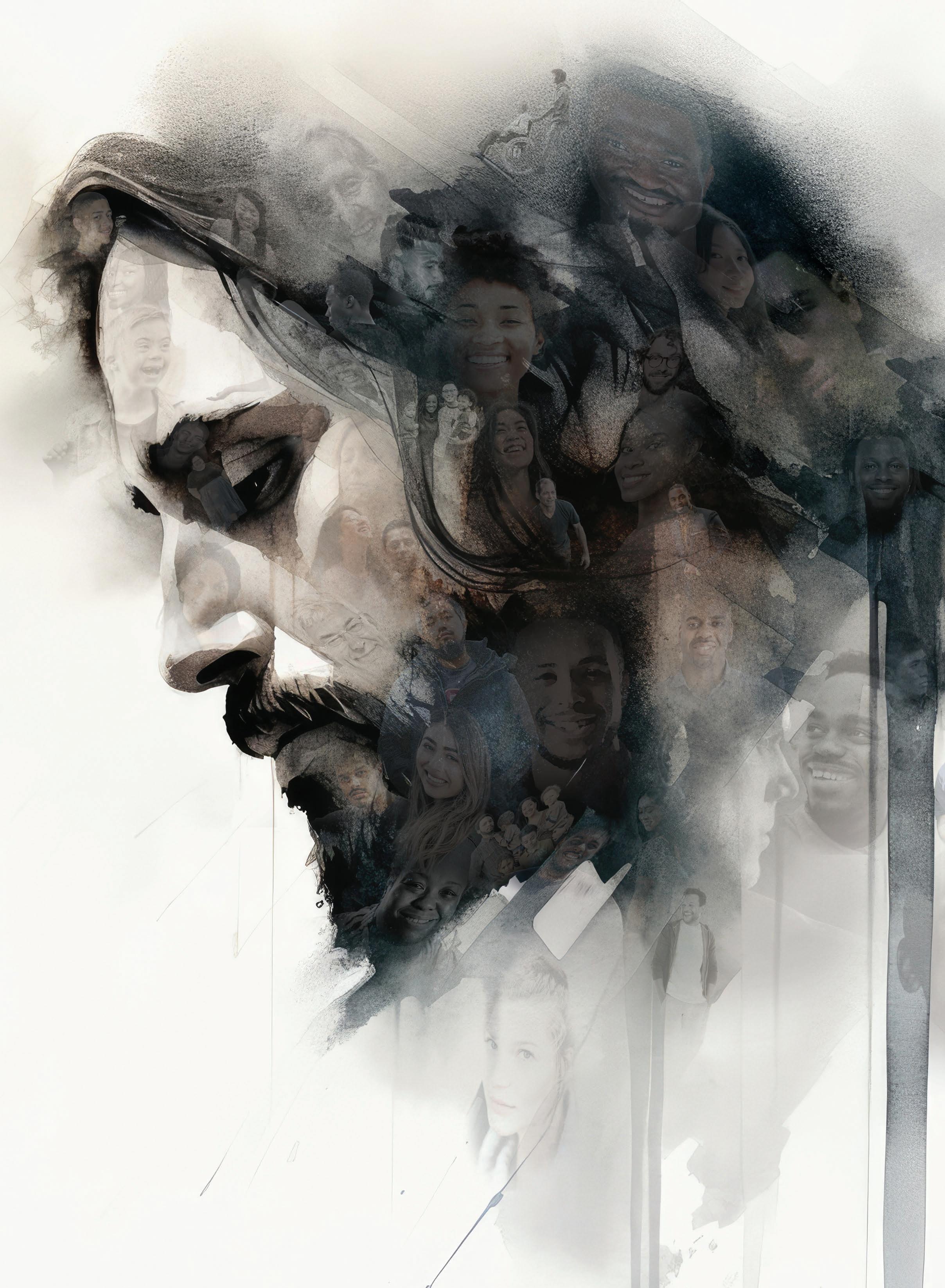
Spring 2024 57
I remember being surprised when an intelligent international student in my school struggled with the math portion of a standardized exam. A series of probability questions depended on test takers knowing how many playing cards were in a deck. What seemed to me like common knowledge eluded her and limited her ability to succeed.
or the first time, I reali ed my cultural identity helped me and e cluded others. I was an insider, which meant there were also outsiders. We seldom used terms like diversity, equity, or inclusion, but this incident still informs my understanding of such concepts.
The tables turned for me when I landed in New York on Dec. 22, 1992. Suddenly, I was a stranger in a strange land.



In a deeply divided world, the Church has an opportunity to depoliticize the language of love and justice, demonstrate God’s vision of community, and build bridges of compassion.


As a Black man, I experienced the kind of discrimination I had heard about but dismissed as e aggerations. olice o cers and store detectives followed me. Women in elevators and subways seemed fearful of me. I had trouble catching a cab. On one occasion, I was unjustly arrested and treated like a criminal.


In an effort to fit in, I changed the way I spoke and dressed. Nevertheless, I continued to feel not only like an outsider, but a despised one. It seemed Black was not beautiful. It was inferior and even criminal. Black was other.
Thankfully, that was not the whole story. I found a church that welcomed my wife and me, understood our struggles, and nurtured us.
hristian and non hristian friends of different races, ethnicities, and nationalities provided the emotional support and practical help we needed to navigate the complexities of American life.


58 Spring 2024
From each of these experiences came lessons I carry with me to this day.
Some bristle at any mention of “diversity, equity, and inclusion.” They view such language as irredeemably political or even corrupt. Yet leaders of the civil rights movement, from which this phrase arose, referenced Scripture and saw their work as advancing the gospel.
At a fundamental level, the idea of a diverse, equitable, and inclusive community is biblical. fter all, od calls us to love our neighbors as ourselves regardless of differences , care for the marginalized, and proclaim the good news to all.
Jesus said our love for one another should be so evident everyone knows we belong to im ohn . In a deeply divided world, the hurch has an opportunity to depolitici e the language of love and justice, demonstrate God’s vision of community, and build bridges of compassion.
Kernels of Truth
There are three reasons discussing these issues is controversial today.


First, we have become extremely polarized. Many subscribe to a simplistic binary that insists, “My side is good, and the other side is evil.”





From that perspective, anything the other side believes must be evil. Such thinking hinders our ability to engage in gracious dialogue and find common ground.
Second, many believers worry that the cultural pressure to accept everyone and everything undermines Christianity’s moral claims. This is a valid concern. However, we can uphold biblical truth while also winsomely representing Christ to a world He died to save.
hird, terms like diversity, equity, and inclusion mean different things to different people. However, we don’t have to throw out the baby with the bathwater.
s an immigrant, minister, and chief diversity o cer for a hristian university, I believe we can embrace differences and treat one another respectfully without compromising faith. Indeed, we should be leading the way when it comes to welcoming all kinds of people and loving them as Jesus did.
Beneath the husk of perhaps overused words are kernels of biblical truth the Church must uphold to stay true to its calling. This is especially important for a Fellowship like ours that emphasi es the pirit s outpouring on all people oel cts and that represents an extraordinarily varied, globally engaged body of believers from more than 150 nations.
Spring 2024 59


We must never lose sight of our Movement’s roots in the Los Angeles Azusa Street Mission, located just a few blocks from skid row during the Jim Crow era and led by William Joseph Seymour, an African American descendant of slaves.

Considering our beginnings on the “wrong side of the tracks,” we in the Assemblies of God should be champions of biblical diversity, equity, and inclusion.
Biblical Diversity
Diversity is about making room for all kinds of people. It includes consideration of such traits as race, ethnicity, nationality, and biological sex. rom flora to fauna, the natural world demonstrates diversity is part of od s design. nd Scripture reveals His redemptive plan is for all people — for anyone who is willing to accept the free gift of salvation.
When God called Abraham, He had in view blessing “all the peoples on earth” (Genesis .
The apostle Paul elaborated on this theme in Galatians 3, explaining that in Christ, Gentiles who rely on faith are blessed along with braham verse .
Even more radically, Paul said, “There is neither Jew nor Gentile, neither slave nor free, nor is there male and female, for you are all one in hrist esus verse .

In other words, the Church’s diversity should not undermine its unity. Every Christian is part of the community Christ established.

First Corinthians 12:12–14 puts it this way:

Just as a body, though one, has many parts, but all its many parts form one body, so it is with Christ. For we were all baptized by one Spirit so as to form one body — whether Jews or Gentiles, slave or free — and we were all given the one Spirit to drink. Even so the body is not made up of one part but of many.



This vision of a diverse but unified hurch reaches its glorious culmination in Revelation, as a multitude “from every nation, tribe, people and language” worships before od s throne .





Throughout the Bible, God’s missional intention shines through. The good news is for all nations atthew . egardless of our differences, anyone who believes in Jesus can e perience eternal life ohn . his is the biblical meaning of diversity.
Following his rooftop encounter with God, Peter declared, “I now realize how true it is that God does not show favoritism but accepts from every nation the one who fears him and does what is right. cts .
If God welcomes all kinds of people into His kingdom, we must embrace them as brothers and sisters.
Diversity is not an afterthought for God. It has always been part of His plan.






60 Spring 2024
In hrist, we truly find one body, one pirit, one hope, one ord, one faith, one baptism, and one od phesians . et we have many kinds of people. here is diversity in unity and unity in diversity uniqueness and difference.
Biblical Equity
Equity is an expression of justice that involves creating opportunity for all to thrive.
A mentor and colleague explained equity in terms of his two grandchildren, each of whom has special needs. Treating these kids the same would be unhelpful since their needs are quite different. isregarding what each child needs in the name of fairness would mean failing to address the needs of either.
Faithfulness to Scripture requires attention to the poor and disadvantaged among us.
Consider another analogy. Suppose you gave each member of your congregation a pair of size 10 shoes, without regard for anyone’s actual foot size. You could say you treated everyone equally, but did they benefit equally
Despite your generosity and good intentions, many people would have no use for the shoes. Even those who wear a size might not find the style or fit to be suitable for their needs.
Imagine how different the outcome would be if you simply asked each person what he or she needed. The same expenditure could yield much better results.
his illustrates the difference between equality and equity. rying to treat everyone the same results in frustration for many.
In Scripture, we see descriptions of equity in action. God established special protections for those on the margins of society — particularly immigrants, orphans, widows, and the poor. Consider the following Old Testament legal provisions: rohibition against oppressing immigrants foreigners odus . ommand to treat immigrants with love eviticus euteronomy . llowance for the needy to glean food from fields eviticus . are for the indigent and protections against e ploitation eviticus .
• Prohibitions against treating vulnerable populations inhumanely or unjustly (Deuteronomy .
Notice these provisions addressed the needs of certain groups. The rich could not glean from fields, but that s only because there was no need for them to do so. quity keeps the marginalized from falling through the cracks.
In a world of greed, cruelty, and self-centeredness, caring for the vulnerable has always been a distinguishing characteristic of God’s people. For example, Proverbs 29:7 says, “The righteous care about justice for the poor, but the wicked have no such concern.”
Isaiah 10:1–2 pronounces a woe against those who “make unjust laws,” “deprive the poor of their rights,” and “withhold justice from the oppressed.”
Spring 2024 61
Micah 6:8 puts God’s expectation for His followers in unambiguous and memorable terms: “He has shown you, O mortal, what is good. And what does the LORD require of you? To act justly and to love mercy and to walk humbly with your God.”
The New Testament echoes this emphasis on equity in action, connecting it with sincerity of faith.




According to James 1:27, “Religion that God our Father accepts as pure and faultless is this: to look after orphans and widows in their distress and to keep oneself from being polluted by the world.” ames also forbids favoritism the opposite of equity or ustice If you really keep the royal law found in Scripture, ‘Love your neighbor as yourself,’ you are doing right. But if you show favoritism, you sin and are convicted by the law as lawbreakers ames .
These texts reveal the community of faith bears a responsibility to care for its members, regardless of their socioeconomic status or ethnicity. Christians must demonstrate Christ’s love by practicing biblical equity.









The Book of Acts shows how the earliest Christian community lived this. Luke describes the infant Church in Jerusalem this way: They devoted themselves to the apostles’ teaching and to fellowship, to the breaking of bread and to prayer. veryone was filled with awe at the many wonders and signs performed by the apostles. All the believers were together and had everything in common. They sold property and possessions to give to anyone who had need (Acts .


his was not a coerced system but a shared sense of hristian identity and sacrificial love. Luke connects these characteristics to the Spirit’s work and God’s grace among believers: After they prayed, the place where they were meeting was shaken. And they were all filled with the oly pirit and spoke the word of od boldly. ll the believers were one in heart and mind. No one claimed that any of their possessions was their own, but they shared everything they had. With great power the apostles continued to testify to the resurrection of the Lord Jesus. And God’s grace was so powerfully at work in them all that there were no needy persons among them. For from time to time those who owned land or houses sold them, brought the money from the sales and put it at the apostles’ feet, and it was distributed to anyone who had need cts .
The picture here is of koinōnia, or Christian fellowship. In such a community, the reali ation of od s work in the lives of believers should contribute to the flourishing of each member.
Yet Luke does not shy away from describing troubling issues that arose. In Acts 5, he decries the unethical actions of Ananias and Sapphira. In trying to claim glory for themselves, this couple lied and violated the community’s spirit of generosity.

Moreover, in Acts 6, the minority Greek-speaking widows experienced an inequitable distribution of support. There is no explanation of why this occurred, but experience tells us it is easy for a majority group to underestimate or ignore the needs of minorities.

Whatever the cause, leaders seriously engaged the problem once they became aware of it. They came up with an equitable solution that was sensitive, honoring, and pleasing to the entire community.



iven this biblical survey, it would be di cult for any believer to dismiss equity from a central place of Christian concern. Faithfulness to Scripture requires attention to the poor and disadvantaged among us.
ur goal, therefore, must be promoting effective systems that demonstrate belief in our shared humanity and a commitment to the thriving of all. This is part of our witness.
As Luke reports in his summation of the episode of inequitable distribution, “So the word of God spread. The number of disciples in Jerusalem increased rapidly, and a large number of priests became obedient to the faith cts .
Biblical Inclusion
The term “inclusion” likewise requires explanation and biblical framing.
Some interpret inclusion to mean God, and by extension the Church, must accept everyone — regardless of their belief in or adherence to Christian truths, values and conduct. his problematic definition of inclusion typically allows little space for the spiritual and ethical transformation Scripture teaches. In essence, the message of this type of inclusion is, “Come as you are; stay as you are.”
But the Bible is clear on this point. While the call to become a Christian is universal, true faith in Christ results in a new birth and new spiritual orientation, aligning believers with God’s heart.
There is no such thing as a Christian who does not repent. Seeking forgiveness and forsaking sin are precursors to full acceptance into God’s family. Hence, the response of those who respond to God’s call must be recognition and acceptance of the ways in which their lives fall short of His requirements.






Peter captures both the inclusive nature of the gospel and the nonnegotiable requirement of repentance:
The Lord is not slow in keeping his promise, as some understand slowness. Instead he is patient with you, not wanting anyone to perish, but everyone to come to repentance eter .
Within the Church, inclusion refers to the ongoing, deliberate process of creating the culture, practices, systems, and environment that facilitate maximal participation and flourishing of all its members.

As Paul put it in Romans 12:5, “In Christ we, though many, form one body, and each member belongs to all the others.”
Thus, we seek ways for the entire community to participate in the Church’s life and mission. In biblical terms, this is hospitality omans eter .
Hospitality is a generosity of spirit that allows us to be kind and winsome. When we are hospitable, we reflect od s concern for all, and through this attention to openness, we prepare intentional spaces for new members to join our community.
In another sense, inclusion means being a community that continually welcomes its diverse members and their godly perspectives, ideas and gifts.
Paul’s analogy in 1 Corinthians 12:12–31 is salient. Each person in the body of Christ has a unique role to play in the Church’s mission. One member can’t say to the other, “I don’t need you verse . n the contrary, those parts of the body that seem to be weaker are indispensable verse .







Spring 2024 63












We truly need one another. In fact, the Greek word allēlōn (meaning “one another” or each other appears at least times in the ew estament. his concept rests at the core



Another image Paul uses to depict inclusion and unity is that of a temple: Consequently, you are no longer foreigners and strangers, but fellow citizens with God’s people and also members of his household, built on the foundation of the apostles and prophets, with Christ Jesus himself as the chief cornerstone. In him the whole building is joined together and rises to become a holy temple in the Lord. And in him you too are being built together to become a dwelling in which God lives by
his pirit phesians .







Ephesians depicts an interconnected, organic Christian community united to Christ, with each individual believer nurturing and lovingly supporting one another.
Speaking the truth in love, we will grow to become in every respect the mature body of him who is the head, that is, Christ. From him the whole body, joined and held together by every supporting ligament, grows and builds itself up in love, as each part does its work phesians .
When we provide inclusive spaces for the diverse body of Christ, health and growth ensue. The varieties of gifts, perspectives, and experiences — all energized by the Holy Spirit — cause the whole to become greater and more vibrant than the sum of the parts.
By being inclusive, in all biblical aspects of this word, we set the stage for the Church to accomplish its mission of discipling the nations atthew .
Grace and Truth

Biblically framed and rightly understood, diversity, equity, and inclusion — and the work to achieve these goals — are not the enemies they are sometimes portrayed to be.
In fact, once we remove the husk, we can locate each kernel of truth within a Christian worldview. I, for one, cannot imagine any Christian church that is vitally connected to Jesus Christ failing to welcome diversity, seek equity, or include meaningfully those God calls. s a global, intergenerational ellowship of pirit filled believers, we must continue thinking biblically and critically on matters such as these. It will require courage, but we need to retain a kind, prophetic, and compelling voice amid disinformation, disunity, and polarization.

May we remain faithful and loving stewards of Christ’s mission. With the help of the Holy pirit, may we follow our ord s e ample by speaking with both grace and truth ohn .
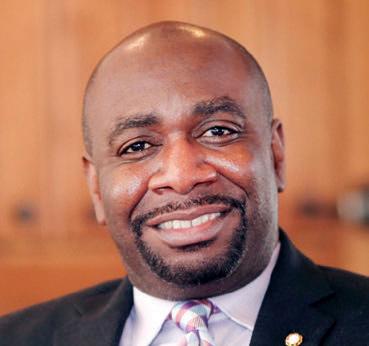
RENEA BRATHWAITE
is dean of the School of Theology and Ministry and chief diversity officer at Vanguard University in Costa Mesa, California.
64 Spring 2024


66 Spring 2024
When, Not If Planning now for pastoral transition
By RON MCMANUS
Godly leaders have long struggled with transitions.
In the Old Testament, Moses successfully transferred his leadership to Joshua, under whom Israel experienced prosperity and military victories. But Joshua failed to orchestrate a similar transition, and after his death, Israel slid into immorality and idolatry.
This is a lesson of great urgency for churches navigating 21stcentury challenges. If ever there was a time to plan for the Church’s future, it’s now.
Spring 2024 67
The average age of Protestant senior pastors in the U.S. is 52, according to a 2022 Barna study Only 16% are 40 or younger.
Another 2022 Barna survey found 42% of pastors had considered leaving full-time ministry during the previous year (compared to 29% who said the same in 2021). The top three reasons pastors cited for considering a departure were “the immense stress of the job” (56%); feelings of isolation and loneliness (43%); and “political divisions” (38%).
Each year, thousands of churches undergo pastoral transitions. Unfortunately, most congregations are unprepared for dealing with a leader’s departure. And many struggle when the moment inevitably arrives.

Most congregations are unprepared for dealing with a leader’s departure. And many struggle when the moment inevitably arrives.
That is why every church should develop a succession plan, a roadmap for transitioning from one pastor to the next. The congregation’s future depends on a smooth and successful leadership baton handoff.
Spirit-Led Process
To set up the next leader for success, the pastor must be willing to submit to God’s timing. That includes knowing when to step aside, whether moving into retirement or another ministry position.
Transition is easier when someone the pastor has mentored is prepared to step in as successor. This helps ensure consistency with the church’s DNA and culture.
If a search process is necessary, church leaders will need guidance and a deliberate strategy. Whatever the transition circumstances, seeking outside expertise is helpful.
Over the past 24 years, I have had the privilege of serving as a transition pastor for 14 churches. I have remained at some of these locations for as long as two years, guiding congregations through the process of installing new leadership.
Unfortunately, many congregations rush the search process instead of preparing their churches to flourish.
inding a speaker to fill the pulpit on weekends while looking for a new pastor is not enough. Churches in transition need someone who can provide spiritual leadership, work with staff and board members, evaluate ministry systems, and offer wise counsel.
The transition pastor’s goal should be moving a church toward greater health, while walking with members through the process of finding od s person to lead them into the future.
This is not about personalities or egos. Rather, it should be a sacred, Spirit-led journey. Times of church transition are opportunities for everyone involved to grow in faith, prayerfulness, and dependence on God.
Five Transition Types
As I describe in my book, The Transition Leader, there are five types of pastoral transitions.
1. Legacy transition. This involves a lead pastor handing off leadership to a son, daughter, or
68 Spring 2024
close mentee. Family dynamics, as well as tenuous timelines and expectations, can make such transitions challenging.
2. Interim pastor transition. A plan that includes an interim or transition pastor for at least one year alleviates the pressure to select a candidate immediately. This provides space for organizational growth and increased health during the search process.
Such an approach also gives the transition pastor time to guide the board through a selection process. This type of transition is especially helpful when a pastor who has led the church for many years departs without naming a successor.
3. Catastrophe intervention. A rapid response is necessary when transition results from the moral failure, debilitation, or sudden death of a lead pastor. An interim or transition pastor leads the church during a pastoral search period.
4. Planned transition. This process happens only when a church’s leaders are future-oriented enough to develop a transition plan before the pastor moves or retires. It may involve naming a successor while the outgoing pastor still serves the church.
A planned transition allows the pastor and board to establish a preferred profile of the ideal candidate and make measured decisions progressively. Most pastors who plan transitions allow one or two years for the process to unfold and do not have a successor in mind at the beginning.
5. Transition with district oversight. In some cases, district or ministry network leaders oversee the transition process, often in tandem with an outside consultant.
Managing Relationships
Many people expect the transition from one pastor to another to be a simple thing. This might be true if relationships, personalities, and feelings were not involved. The reality is, these things can impede or ease transition processes.
A legacy transition may work well if the relationship between the two parties is already healthy
and leadership styles are similar. It becomes more challenging if temperaments and personalities are different.
I recently worked with a father and son legacy transition where the personalities were totally different. he father was outgoing and relational, while the son was more strategic and introspective.
ecogni ing their differences, the two leaders worked to bridge any gaps. Months before congregants voted to a rm the son as their ne t lead pastor, the younger man began meeting with various groups throughout the church to develop warmer relationships. This included interacting with senior adults and others who had been part of the congregation for many years.
Even when the successor is not a relative, there may be family issues to consider. For example, problems sometimes arise when a pastor is ready to retire but his or her spouse isn’t. After years of service and sacrifice, letting go can be hard. hat s why ministry couples need to work through the succession process together.
Rather than focusing on what they are leaving behind, outgoing pastors and their families should look forward to new ministry opportunities. It is important for everyone involved in the transition process to catch a vision for the wonderful future God is leading them toward.
Unfortunately, post-transition interference is a common problem. The outgoing pastor should attend services elsewhere for at least three to six months after the arrival of a new leader. This gives congregants time to bond with their new pastor. Otherwise, the people of the church may continue seeking counsel from the previous pastor.
A written agreement between the former and incoming pastor is beneficial. uch a document should spell out expectations of both leaders, which can help eliminate misunderstandings. This is especially important when the outgoing pastor has served the church for 20 years or longer. Walking away is hard, but it is a necessary part of transition.
Spring 2024 69
I have seen interference from former pastors create major problems for new pastors and their churches. Clear communication and boundaries are absolutely vital.
Honor and Generosity
Leaving a ministry position is not just emotionally di cult. or many pastors, transition can seem financially out of reach. In fact, some would resign their churches today if they could find a way out.
Part of my work at Legacy Transition Group is working with church boards and finance committees to put together severance agreements for outgoing pastors. We have helped many church leaders overcome the financial obstacles of moving or retiring.
roviding benefits such as retirement contributions is not always easy for smaller churches. owever, these investments ultimately benefit the entire congregation. No one wants a burned-out pastor clinging to leadership for purely financial reasons.
The best time to plan for pastoral transition is long before the moment arrives.
Two values that should permeate leadership transitions are honor and generosity. In such an environment, change is easier for everyone. It can become a time of celebrating what the Lord has done and anticipating all that He will do.
Transition Timeline
Once a pastor decides to step down, a planned transition may follow. Below is an example of what that might look like.
Typically, the outgoing pastor begins a conversation with the board about a year in advance. Within about nine months, the board nominates a candidate it will recommend to the congregation.
The next step is planning a business meeting, sharing the information with the congregation six to eight weeks ahead of time. After learning about the candidate and hearing him or her preach, members vote.
Within six months of the congregation choosing a pastor-elect, a farewell event takes place for the
outgoing pastor. he following week, o cial installation of the new pastor takes place.
The period between the new pastor’s election and outgoing pastor’s farewell is a strategic time of mentoring.
i months is usually adequate for an effective transition. In addition to facilitating training and communication between leaders, this period gives congregants space for emotionally processing the upcoming change.
In Between
When a church board or committee starts a pastoral search, the first step is developing a profile of what the congregation is seeking. (For some general traits to consider, see the “Pastoral Candidate Checklist” on Page 72.)
This is one place where challenges can arise. ome members may hope to find a carbon copy of their current pastor. Others, eager for something new, might look for the exact opposite.
It is important to remain objective and consider the church s when putting together a profile. For example, if the church has always maintained a strong missional emphasis, the next pastor should likewise have a heart for missions.
I am currently working with a church whose founding pastor recently retired after 38 years. Although the congregation has been in the transition process for several months, the search committee is not yet prepared to present a candidate. This could be a blessing since churches often need some space between the past and future.
When following quickly on the heels of leaders with long tenures, new pastors often struggle to gain support and acceptance. Too often, these pastors head for the exits after only two or three years.
A transition pastor can help the next pastor succeed by serving as a buffer during the in between time.
Change is unsettling. When a pastor leaves, some congregants will feel sad or anxious. Others may grow impatient and frustrated with the search process.
70 Spring 2024
Don’t wait until a departure is imminent to start thinking about how your congregation will navigate it.

eople have different needs during this unusual season. In addition to sound preaching and teaching, they need peace and healing.
Sometimes I imagine what the apostle Paul would write to someone serving as a transition pastor. I think Paul might say something like this: “Remember this is Christ’s church, a part of His living body. You are called to lead this church only for a season, but do it with all your might, for God’s glory. Don’t let anything harm or weaken it.”
For transition pastors, the assignments are simple and straightforward: Bring spiritual peace and direction; cast an interim vision plan; prepare the congregation for the future; and help members develop an outward focus.
Coming Together
Some say Americans are so divided people can’t agree on anything these days. Yet I’ve seen Christians come together time and again during periods of pastoral transition.
After preparing congregations for such transitions, all the elections I’ve overseen have come out at least 90% in favor of the new leaders. Such outcomes demonstrate the power of believers embracing a unified vision and seeking the oly Spirit’s guidance.
It’s not a matter of if your church will face a pastoral change, but when. The only question is whether it will happen by default or design. The good news is you can plan now for a smooth and e cient transition.
Don’t wait until a departure is imminent to start thinking about how your congregation will navigate it. Take steps today to develop a plan that will outlast your leadership and that of your staff members.
There are many things in life we cannot anticipate. The recent COVID-19 pandemic certainly taught us that lesson. That’s why I’m glad keeping ministry going is ultimately not up to you or me. The Lord is the One who builds and sustains His church.
Jesus told Peter, “On this rock I will build my church, and the gates of Hades will not overcome it” (Matthew 16:18).
The pandemic brought a number of unforeseen problems that are still affecting many congregations today. No doubt, churches will face new, equally daunting challenges in the years ahead. Yet we can rest in the knowledge that God loves the Church and will continue building and growing it.
Through good times and bad, the Spirit empowers us in our ministry calling. My experience in leading pastoral transitions over the past 25 years gives me faith that we can be victorious, even amid the toughest challenges.
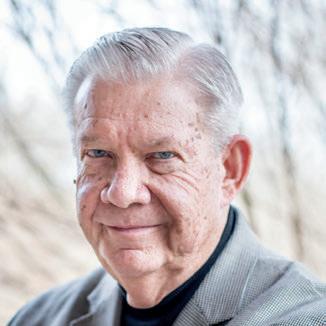
RON MCMANUS
is founder and president of Legacy Transition Group, an ordained Assemblies of God minister, and author of The Transition Leader: Your Church’s Key to a Successful Pastoral Change.
Spring 2024 71
Pastoral Candidate Checklist
Values
Personal growth
Developer of people pirit filled and pirit led
Passion for reaching the lost
Disciplined lifestyle
Local church philosophy
Worshipper


Prayer and devotional habits
Personal Life
Personal ethics Integrity

Good reputation in previous ministry
Exemplary lifestyle

Commitment to family

Healthy marriage (if applicable)


Demonstrated Leadership



Spiritual and organizational leadership istory of working well with staff and volunteers




Time management
Ability to lead change and take risks
Visionary
Honors legacy of the past
Communication Skills
Expository and biblical pulpit ministry
Relational skills in church and community
Teaching ministry
Preaching for transformation and decision
72 Spring 2024















Ourareneighbors like family.
Missionaries Gloria & Ron Hanson, California MV Residents since 2009


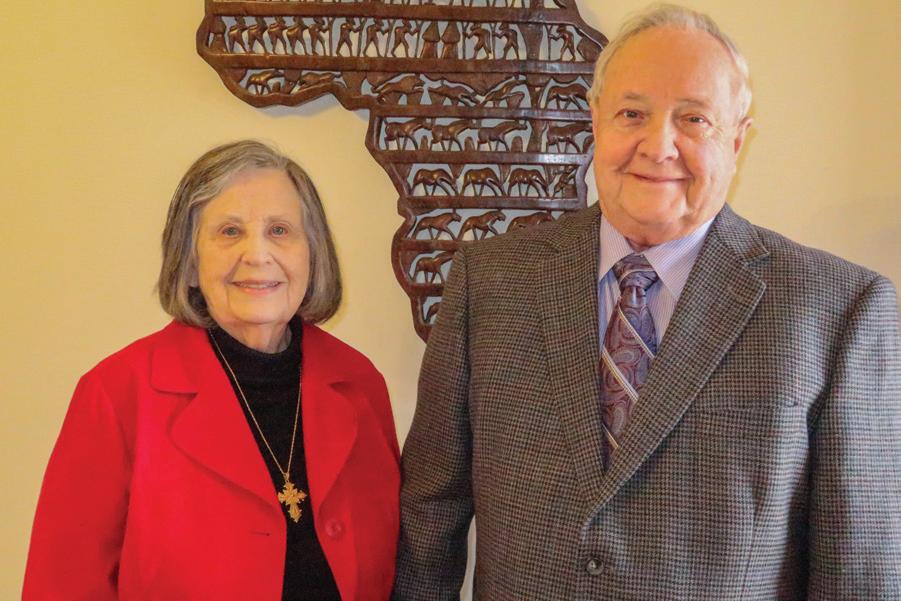

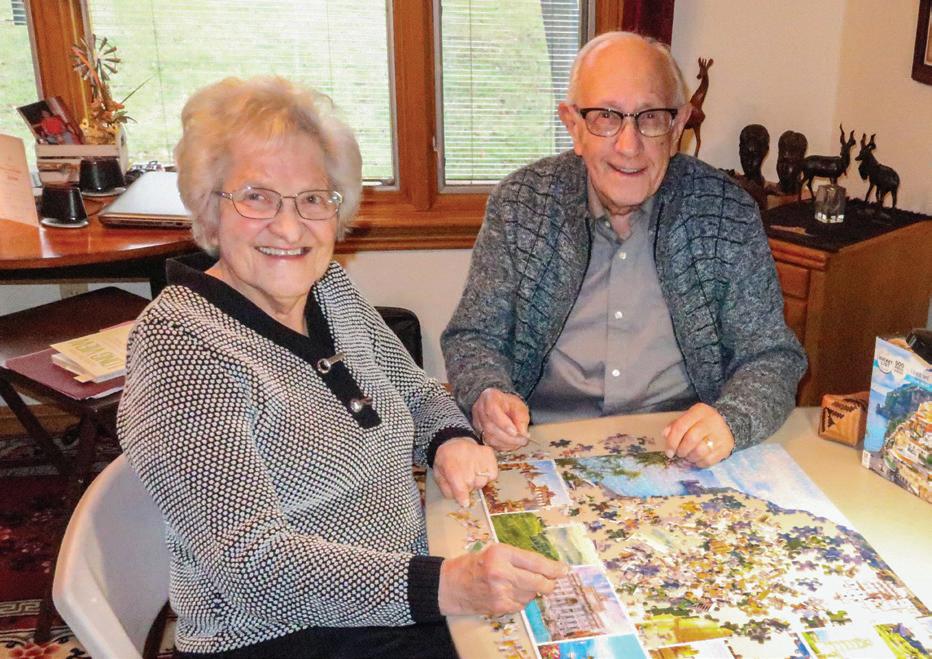

It felt like home from day one.
District Officials Jim & Verna Wilkins, Nebraska MV Residents since 2007

We sense God’s presence here.
College Professors Don & Kathy Johns, Missouri MV Residents since 2015


Independent Living Assisted Living Premier Rehab Long-Term Care Since 1973 CHRISTIAN RETIREMENT COMMUNITY ENJOYING GOD’S HANDIWORK Learn More! We are located in the heart of the Ozarks—beautiful Springfield, Missouri. Scan this code with your smartphone camera to visit us at MVLife.org . An Assemblies of God Ministry
What We Believe About ...

COMMUNION
A SERIES ON THE AG Statement of Fundamental Truths
74 Spring 2024
The Ordinances of the Church
(b) Holy Communion
The Lord’s Supper, consisting of the elements — bread and the fruit of the vine — is the symbol expressing our sharing the divine nature of our Lord Jesus Christ (2 Peter 1:4); a memorial of his suffering and death (1 Corinthians 11:26); and a prophecy of His second coming (1 Corinthians 11:26); and is enjoined on all believers “till He come!”
 By ALLEN TENNISON
By ALLEN TENNISON
While I was never a rebellious preacher’s kid, my behavior once shocked a deacon.
Our church used pieces of delicious sourdough bread in celebrating the Lord’s Supper. One Sunday just after Communion, a children’s church leader asked me to retrieve something from the church kitchen. Upon entering, I saw a plate of leftover bread I knew would go in the trash. I was also hungry. A minute later, a deacon walked in to see the pastor’s kid devouring leftover Communion bread. The deacon ordered me to back away from the plate and later told my dad what I had done.
Spring 2024 75
ARTICLE 5
When teaching on the Lord’s Supper years later as a professor, I sometimes told this story, asking students whether my childhood actions were wrong and why.
Many students felt uncomfortable with the story but struggled to explain why. Some said the problem was gluttony. Others suggested I technically stole the bread.
A few insisted I had done nothing wrong, and said the deacon should have minded his own business.
There was always someone, however, who challenged my actions based on a presumed sacredness of the bread itself. From this perspective, I had shown disrespect by not treating the leftover bread as imbued with the presence of Christ.
I wanted students to answer my question based on their understanding of the Lord’s Supper. The significance of this meal is such that talking about it can mean exploring both the person of Jesus and the meaning of the Church.
New Testament Teaching
Article 6 of the Statement of Fundamental Truths recognizes two ordinances: “Baptism in Water” and “Holy Communion.” An ordinance is a Church practice commanded by Jesus that reenacts a key part of the gospel.
In Matthew 28:19, Jesus commanded water baptism, which represents His death and resurrection (Romans 6:3–4).
Jesus commanded Communion in Luke 22:19. his meal reflects and recalls hrist s sacrifice

He [Jesus] took bread, gave thanks and broke it, and gave it to them, saying, “This is my body given for you; do this in remembrance of me.”
There are various names for the second ordinance. In 1 Corinthians 10:16, Paul describes the meal as a “communion” (KJV). Paul goes on to call it the “Lord’s Table” (10:21) or “Lord’s Supper” (11:20).
Paul further talks about giving thanks (eucharistia) for the meal. Over time, the Lord’s Supper also became known as the Eucharist, based on the words of thanksgiving that accompanied it as the central act of Christian worship for most of Church history.
The story of the Last Supper in Matthew 26:26–29, Mark 14:22–25, and Luke 22:15–20 provides the narrative foundation for the practice of the Lord’s Supper. Jesus shared a Passover meal with His disciples on the night he was betrayed.
Traditionally, four cups were passed around during the Passover, in association with God’s four promises to deliver Israel in Exodus 6:6–7. At the third cup, esus offered the promise of a new testament or covenant sealed by is vicarious sacrifice, with the cup representing His blood and the broken bread His body.
Jesus also anticipated sharing a future meal with His disciples. In other words, His death would not be the final word on esus.
The implications of the Lord’s Supper in the New Testament revolved around the practice and struggle of being the Church. In the Gospel of Luke, Jesus told His disciples to repeat the meal “in remembrance of me.”
In the Book of Acts (also written by Luke), the practice of breaking bread likely refers to the
76 Spring 2024
Church’s ongoing Communion observance. According to Acts 2:42, the believers “devoted themselves to the apostles’ teaching and to fellowship, to the breaking of bread and to prayer.” Paul also broke bread with the churches he planted (Acts 20:7).
Communion is a memorial, proclamation, and celebration in anticipation of Christ’s second coming.
Communion expressed a profound, almost subversive, understanding of the unity of the Church in Jesus. According to Jewish customs, eating with Gentiles was problematic. Because of this, even some apostles struggled with eating at the same table as Gentile believers (Galatians 2:11–13).
Because the Lord’s Supper expresses our unity in Christ, it can also pinpoint divisions where they exist. In fact, the earliest written explanation of this ordinance occurs in a context of correction. It seems some Corinthian Christians were treating one another disrespectfully during the meal (1 Corinthians 11:17–34).
Paul warns against taking Communion in an “unworthy manner” (verse 27). Some in Corinth were partaking before others arrived. The latecomers were likely the poor who had been working all day.
rriving without food or drink and finding nothing left for them, these struggling church members were excluded from the Lord’s Supper. The situation only exacerbated social and economic disparities within the congregation.
Instead of reflecting unity through ommunion, the church at Corinth was deepening divisions through their unwillingness to share. According to Paul, they failed to discern the body of Christ to which they all belonged.
This misuse of the Lord’s Supper was so egregious Paul saw sicknesses among church members as divine judgment.
In warning the congregation, Paul provides an account of the Lord’s Supper in 1 Corinthians 11:23–26. According to Paul, he received the practice from Jesus and passed it on to the Church.
he meal remembers hrist s sacrifice, declaring His death until He returns. Communion is a memorial, proclamation, and celebration in anticipation of Christ’s second coming.
Communion also serves as a sign of our faithfulness to od. aul first references the ord s upper in 1 Corinthians 10:14–22 when he warns against the idolatrous practice of eating in pagan temples.
As Paul explains, when Christians eat and drink the Lord’s Supper, they are participating as one community in the body and blood of Christ. That kind of sharing calls for exclusivity. Believers sharing a meal at Christ’s table cannot also a share a meal at a table set before idols.
Jesus himself commanded the practice of Communion. This ordinance reminds us that Christ’s sacrifice is the foundation for a new covenant under the one God we worship.

Spring 2024 77
The Lord’s Supper is a sign of unity among those who share in the body and blood of Jesus. It is also a proclamation of the Cross as we await Christ’s return.
Church History
In the Early Church, the Lord’s Supper was part of a weekly “love feast,” although other traditions soon developed. Theology surrounding Communion as an act of worship also progressed.
Implications of the Lord’s Supper revolved around how believers understood the incarnate nature of Jesus.
There is evidence for various interpretations of the Lord’s Supper by the second century. Some highlighted the celebration primarily as a remembrance of Jesus, while others spoke of the bread and cup as a type of sacrifice.
till others emphasi ed the benefits of ommunion, seeing it as part of personal sanctification. Over time, many Christians came to view the meal as a type of spiritual medicine.
During the Middle Ages, there was debate concerning Christ’s presence in the bread and cup. Eventually, the Catholic Church adopted the position that when a priest called on the Spirit and spoke the proper words, the elements of bread and wine literally transformed into Christ’s body and blood (despite not changing in appearance). The formal terminology for this is “transubstantiation.”
Protestant reformers rejected this view, although they did not all agree on how to interpret the Lord’s Supper. Among other things, they diverged over the implications of Christ’s Incarnation on Communion.

The Lord’s Supper had been the focus of Christian worship for centuries. When Christians cannot agree on the theology of their worship, they do not stay united.
The first Christians in Jerusalem continually shared in the “breaking of bread” (Acts 2:42). As Christianity spread, so did the regular observance of Communion.
Martin Luther taught that Jesus could be physically present in, with, and under the bread and cup in a form of “sacramental union.”
Because Luther believed the divine and human natures of Christ share attributes, Jesus could be physically present everywhere since God is everywhere. If the divine and human natures of Jesus coexisted in one person, the bread and cup could also coexist with the physical presence of Christ, who plainly said, “This is my body.”
An adjacent version of this view was known as “consubstantiation.” The bread and drink remained the same in substance, but they also contained the

78 Spring 2024

physical presence of Christ, which participants ingested for their spiritual good.
Swiss Protestant leader Ulrich Zwingli argued that Jesus could not be physically present everywhere because His physicality belonged to His human nature, which remained at the Father’s right hand.
According to Zwingli, the Lord’s Supper was only a memorial to the sacrifice of esus a view known as “memorialism”). When Jesus said, “This is my body,” He meant the bread represents His body. The bread and cup are visual aids for remembering the Cross; they do not convey the actual presence of Jesus.
John Calvin agreed with Zwingli that Jesus is physically present only at the Father’s right hand. Unlike Zwingli, though, Calvin argued that Jesus could be spiritually present in the bread and cup by faith.
For Calvin, the bread and cup were more than symbols. They were instruments for the spiritual presence of Jesus. It wasn’t through the act of ingesting Christ that participants received His presence. Instead, the Spirit worked through their faith to convey Christ.
Theology
Historic Christian traditions remain divided in how they answer certain questions regarding Communion.
Some questions probe the meaning or nature of the Lord’s Supper. What is the connection between Christ’s presence and the bread and cup? What are the implications of Communion for the Church as a community? How does participation in the Lord’s upper benefit believers
Other questions focus on Communion practice. Who can oversee it? Who may receive the elements? How often should a congregation observe Communion? What can serve as the bread and cup?
The Statement of Fundamental Truths does not address all of these questions. However, longstanding practice in the Assemblies of God provides some answers.
Since the AG practices “open Communion,” anyone who confesses Christ as Savior may receive the elements, regardless of church a liation.
Any Christian can also oversee a Communion service. There is no ministry or credential requirement (although proper vetting and training are still recommended).
he first hristians in erusalem continually shared in the “breaking of bread” (Acts 2:42). As Christianity spread, so did the regular observance of Communion.
For most of Church history, the Lord’s Supper was at the heart of Sunday worship gatherings, with everything else revolving around the experience.
After the Protestant Reformation, Communion became a monthly practice rather than a weekly one for many churches. his was part of an effort to distinguish the Lord’s Supper as an ordinance rather than a sacrament.
lthough ssemblies of od congregations differ in how frequently they take Communion, observing the Lord’s Supper monthly is common.
The paragraph on “Holy Communion” in Article defines the elements and e plains the meaning of Communion, reiterating that it is a command “enjoined on all believers.”
Spring 2024 79

rticle identifies the elements as bread and the fruit of the vine. hat phrase reflects a tradition in the U.S. Assemblies of God to use grape juice rather than wine, a rming a commitment to sobriety. (The use of grape juice is not unique to the AG.)
Regarding questions about the nature of Communion, Article 6 calls it “an ordinance” — that is, a command from hrist and reflection of is gospel.
The Assemblies of God rejects the notion that observing Communion brings the saving grace it represents. This is a denial of one tenet of sacramental theology.
Article 6 describes the Lord’s Supper as a symbol, memorial, and prophecy. As a symbol, Communion expresses “our sharing the divine nature of our Lord Jesus Christ.”
According to 2 Peter 1:4, which Article 6 cites, the promises of God in Christ enable us to “participate in the divine nature.” Peter does not mean we become gods, but that we are to reflect the nature of God more and more.
This transformation is ongoing — from the development of our moral character in the present age to the culmination of our redemption at the resurrection. Sharing a meal representing the body and blood of Jesus is a reminder of our participation in Christ’s incorruptible nature.
As a memorial, Communion symbolizes the suffering and death of esus. aul says the ord s Supper is a continual proclamation of Christ’s death (1 Corinthians 11:26). It is a reminder of what Jesus did on our behalf. It also declares what He can do for those who have yet to trust in Him.

Many in the Assemblies of God have understood Communion primarily as a memorial that does not convey Christ’s presence beyond remembrance. While the Fellowship’s founders agreed that it was a memorial, some cautioned against thinking of Communion as only a memorial.
. . ell, the first general superintendent, described Communion this way:
It is more than a memorial feast. Jesus is there in the Spirit to bless, quicken, uplift and heal but what benefit the partaker will receive depends much on his spiritual discernment, his faith and his appropriation from the spiritually present living Christ.
. oswell lower, the ellowship s first general secretary, addressed why water baptism happens only once, while Communion is ongoing. According to lower, the second ordinance typifies a continual partaking of the Life of Jesus as though He had been slain freshly for us as a continual sacrifice, freshly killed, for we need the fresh sacrifice to be made real to us continually, to cover us and protect us from the enemy.”
Flower continued, “The Lord Jesus is brought very near in the observance of the Lord’s supper.”
Seeing the presence of Christ as uniquely tied to the meal risks making too much of the elements themselves. Early Pentecostals wanted to avoid treating the Lord’s Supper as somehow magical.
On the other hand, there is also a danger in making too little of the Lord’s Supper by not expecting the presence of Christ at all.
If we can speak of an increased awareness of the Spirit’s presence during the portion of worship
80 Spring 2024
involving singing, we can become more aware of Christ’s presence when worshipping through Communion.
Communion symbolizes the Church’s identity as Christ’s people — called to unity in Him, forgiven through His sacrifice, and awaiting His return.
Many early Pentecostals saw Communion as an occasion for healing — both spiritually and physically — as believers became more attuned to Christ’s presence and sacrifice. In fact, they shared numerous testimonies of healing during Communion.
Over the years, Pentecostals have talked about other spiritual benefits of the ord s upper by emphasizing the meal as an instruction in and assurance of faith, a call for unity and reconciliation with one another, an act of worship and thanksgiving to God, and a sanctifying experience. As an observance that anticipates Christ’s return, Communion also gives believers hope.
Article 6 describes the Lord’s Supper as a prophecy pointing to Christ’s second coming. Jesus
promised His disciples He would share a meal with them again. So the Church observes Communion now in anticipation of that day.
In this way, the celebration of the Lord’s Supper is a proclamation of not only the Lord’s death for our sins, but also the Lord’s return for the completion of our redemption. It symboli es the benefits of salvation from beginning to end.
As Article 6 notes, the Bible commands believers to partake of the Lord’s Supper “till He come!”
Whether weekly or monthly, Christians should participate in Communion with some regularity whenever and wherever they gather.
Communion symbolizes the Church’s identity as Christ’s people — called to unity in Him, forgiven through is sacrifice, and awaiting is return.
Pastoral Practice
One way of thinking about the role of the Lord’s Supper in worship is by returning to the original idea of Communion as a meal the Church shared as a declaration of Jesus.
First, a shared meal requires hospitality. When people eat a meal together, they share the same table. When Christians celebrate Communion, it’s as though the entire Church becomes one table around which the community sits as a family. Everyone who belongs to Christ may share in the meal because they are part of God’s family.
The table is set only for believers. This is a point we must take seriously. The Lord’s Supper is for all Christians, not for all who are present. At the same time, any who wish to partake in the meal may use that moment to repent and accept Christ’s gift of salvation, which the meal represents.

Spring 2024 81


Second, a shared meal suggests a shared hunger. We have an ongoing need for physical and spiritual sustenance. Communion is for those who hunger for God.
Eating acknowledges we need food. In partaking of the Lord’s Supper, we remind ourselves of our need for God, who has made provision for us through Jesus.
Throughout most of Church history, the gathering of Christians in worship revolved around the table or altar of Communion. Partaking in the Lord’s Supper was the moment in every service for the spiritual sustenance of believers.
Early Pentecostal worshippers focused on a different kind of altar as the focal point of their gatherings: a time of prayer following the singing or sermon. During this altar time, the body of Christ came forward to encounter the Holy Spirit and receive from God.
Our celebration of the Lord’s Supper can be a time around the altar in both senses. As believers, we can discern the presence of Christ that the Lord’s Supper represents. As Pentecostals, we can ask the oly pirit to continue filling us as we partake of the meal. he oly pirit makes the meal filling because He feeds us Jesus.
Finally, a shared meal offers healing in two ways. Meals are physically healing because they provide sustenance.Early Pentecostals saw the Lord’s Supper as a time to receive physical healing, but we should also view it as a means of deeper consecration and spiritual development.
Additionally, a shared meal can be healing by reconnecting us with the community to which we belong. Family dinners build relational
connections. Coming together as believers reminds us that we belong to one another just as we belong to Christ.
As members of Christ’s body, we can recalibrate how we view and respond to one another while taking the Lord’s Supper together.
Paul warns against eating the meal in an “unworthy manner” by failing to discern the body of Christ to which we all belong (1 Corinthians 11:27). Conversely, Communion unites the Church when we see and respond to fellow believers as those who share equally in the body of Christ.
Communion highlights three necessary virtues for believers. y reminding us of the sacrifice of hrist, it fortifies our faith. y pointing us to the return of Christ, it bolsters our hope. And by bringing us together around the Lord’s table as one family, it reinforces our love.
The presence of Christ — which the Spirit makes real to us through the Lord’s Supper — points us back to the faith, hope, and love that more fully reflect the image of esus in us.

ALLEN TENNISON, Ph.D., serves as theological counsel to The General Council of the Assemblies of God and chairs its Commission on Doctrines and Practices.
82 Spring 2024
A MISSIONS FRONTIER
As each day starts, it seems there is a new crisis we must face as individuals, families and a nation. Have no doubt that the forces of darkness are hard at work. Our prayers may never have been as important for the future of the U.S. as they are today.
— Malcolm Burleigh, U.S. Missions executive director

Long thought of as a missionary-sending nation, the United States has become one of the most overlooked mission fields on earth.
Representatives of every race, culture and creed inhabit this nation, and all need the Savior.
Assemblies of God U.S. Missions brings the hope of Jesus to various relational, ethnic, cultural and needs groups within the United States. The Holy Spirit is our guide.
Adult & Teen Challenge, U.S.A.
O ering hope through the power of Christ to those with life-controlling issues
Chaplaincy Ministries
Ministering outside church walls in the moments people need Christ’s hope and truth the most
Chi Alpha Campus Ministries, U.S.A.
Making disciples on secular college and university campuses
Church Mobilization
Developing and revitalizing churches and mobilizing RV volunteers
Intercultural Ministries
Reaching culturally diverse groups, including ethnic groups, persons with disabilities, and more
U.S. Specialized
Telling the story of U.S. Missions, ministering to children, and serving AG districts
Youth Alive®
Equipping middle and high school students to reach other students for Christ
Follow @AGUSMissions
A Catalyst for Awakening
The AG World Prayer Center connects prayer and evangelism
By GEORGE P. WOOD
Located in a modest building across the street from the Assemblies of God national o ce in pringfield, issouri, the World Prayer Center has an audacious mission: “To establish a place of prayer that creates an atmosphere which gives birth to the miraculous and empowers evangelism and discipleship around the world.
he first thing visitors notice upon entry is the square foot, high definition floor. onnected to the internet, this floor can pro ect any location oogle has mapped, allowing visitors to take virtual prayer walks through neighborhoods in the . . and around the world.
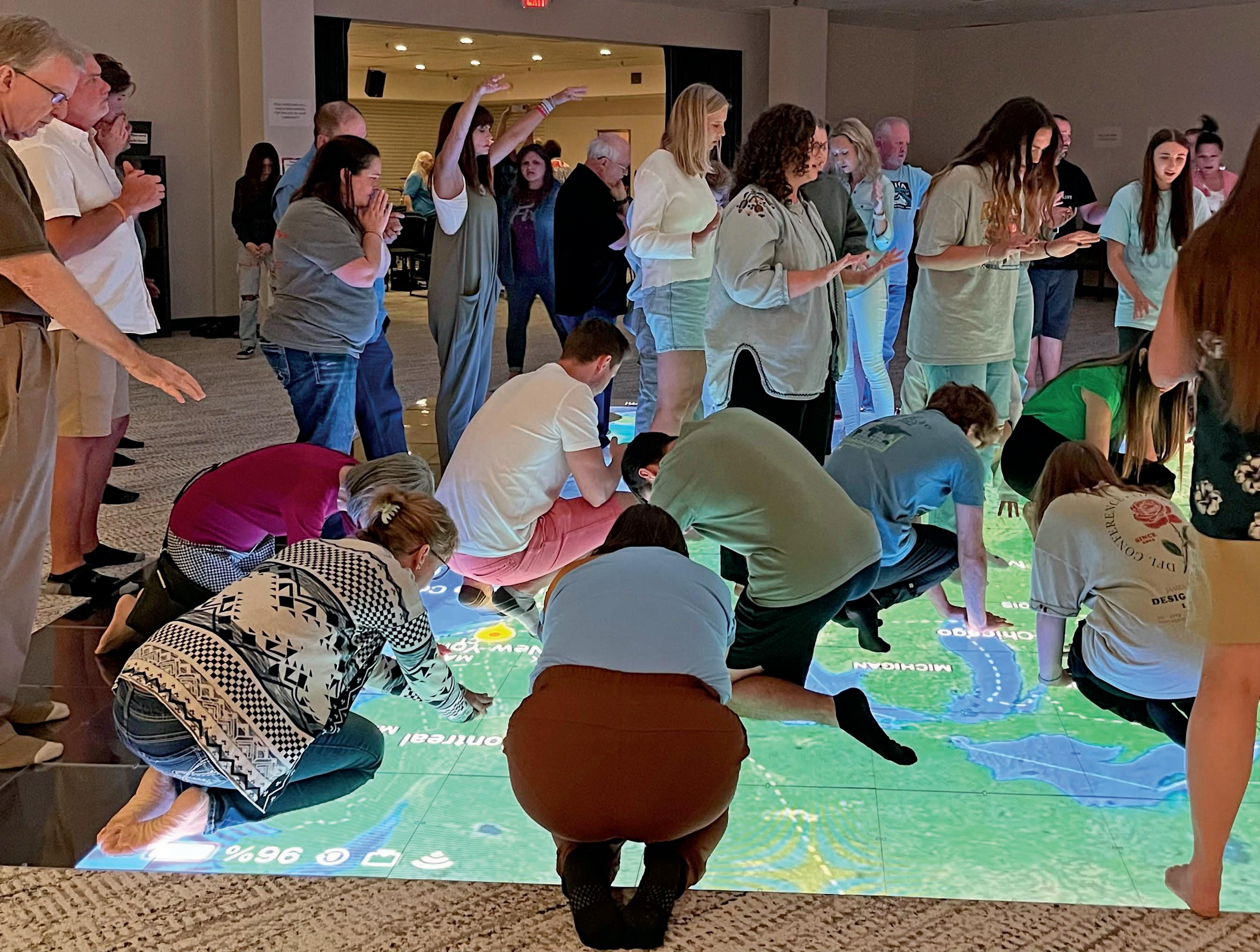

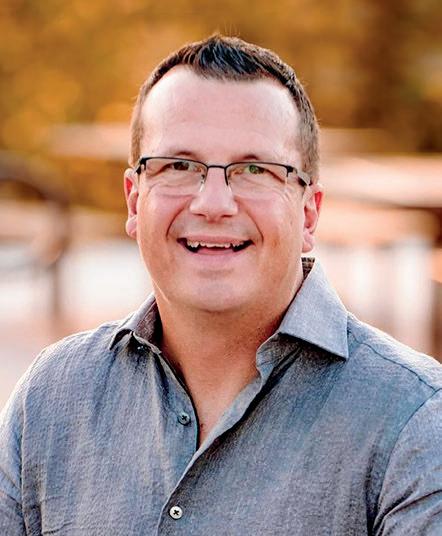
84 Spring 2024 MINISTRY | SPOTLIGHT
Prayer gathering at the AG World Prayer Center
Joe Oden
his visual aid provides a creative way for visitors to intercede for the salvation of people from their own cities or from places they may never be able to visit personally.
raying on that floor was like aul seeing the vision of a man from acedonia calling them to come there, says onnie orris, district superintendent of the rkansas ssemblies of od. It was a cataly ing moment in the spiritual atmosphere of the rkansas district.
oe den is director of the World rayer enter, as well as the s national prayer and evangelism director. e is a firm believer in the connection between prayer and evangelism.
s den e plains in his new book, rayer ignites revival, and it is the catalyst for every spiritual awakening.
he book, titled Prayer That Ignites Revival, is a revision of den s doctor of ministry pro ect at ssemblies of od heological eminary in pringfield. ublished in pril by hosen, it mines the Bible and church history for lessons about what od s people must do to see their churches revived and the nation awakened to the gospel.
Oden summarizes those lessons in 10 commitments hristians should make, such as I want to see an awakening, I will confess the sins of my nation, I will cooperate with the oly pirit, and I will possess a heart for the lost.
hese lessons are not academic for den. e was a drug addict as a young man. hree rounds of rehab didn t cure his addiction. In , he was arrested for drug possession, and a udge ordered him to attend church as part of a diversion plan.
n pril , , a team from the rownsville evival ministered at the church den was attending. e was saved, delivered, and called into ministry in one fell swoop. den immediately enrolled in the rownsville evival chool of inistry and has been an evangelist ever since.
Oden believes that kind of radical transformation is sorely needed in merica today. iting various social ills such as abortion, racism, se ual immorality, and violence, he says, We have lost our
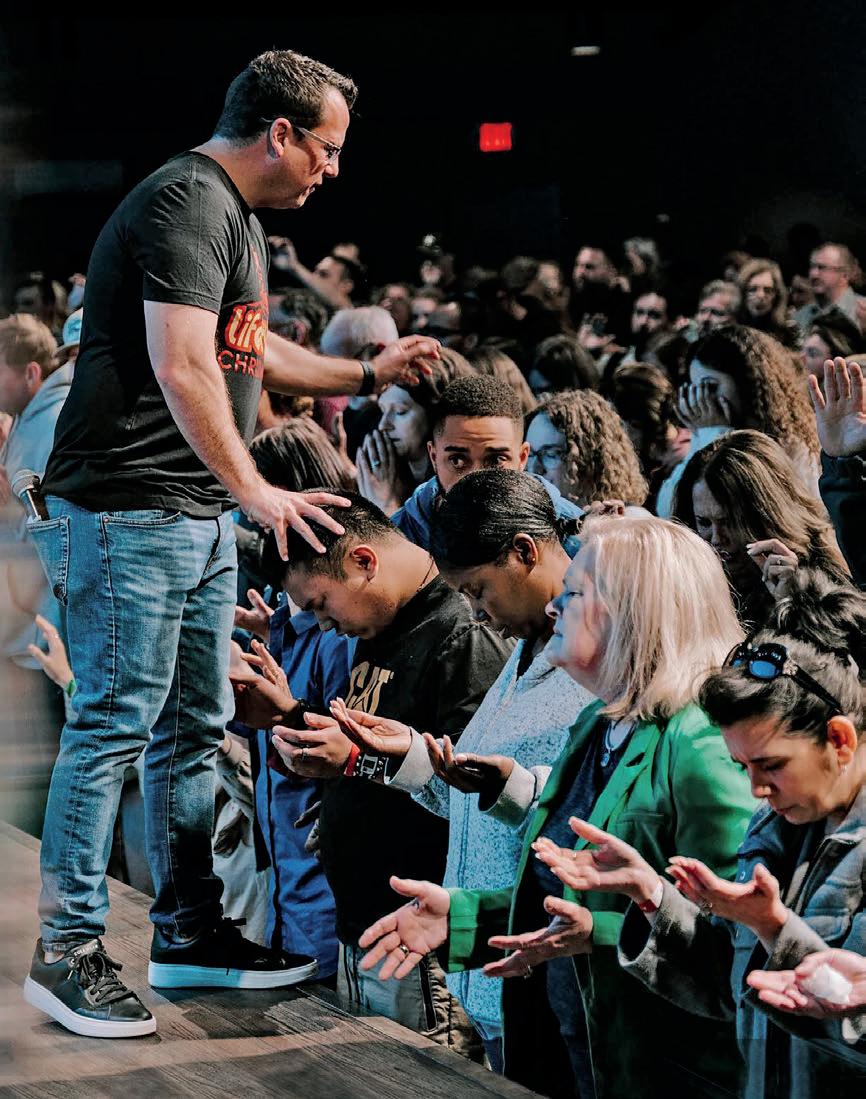
Prayer ignites revival, and it is the catalyst for every spiritual awakening.
— Joe Oden
ability to blush at sin, referring to eremiah . “The only way that’s going to be restored is human cooperation through prayer, and od s sovereign outpouring to bring conviction, is presence, and the fear of the ord back to the nation.
The ministry of the World Prayer Center focuses on the human side of this equation. s director, den leads the center s three key initiatives. In addition to providing a place of prayer at its pringfield location, the center mobili es prayer missionaries and trains churches for prayer ministry.
rayer missionaries are fully appointed with . . issions. urrently, are itinerating,
Spring 2024 85
but den hopes to raise up an army of intercessors. hey go to churches to lead events where ministers and laypeople grow in their understanding and practice of prayer.
These events are known as retreats and sieges. he focus of a prayer retreat is general training about prayer, especially intercession. raining sessions, which last one to three days, are customi able to a church s needs.
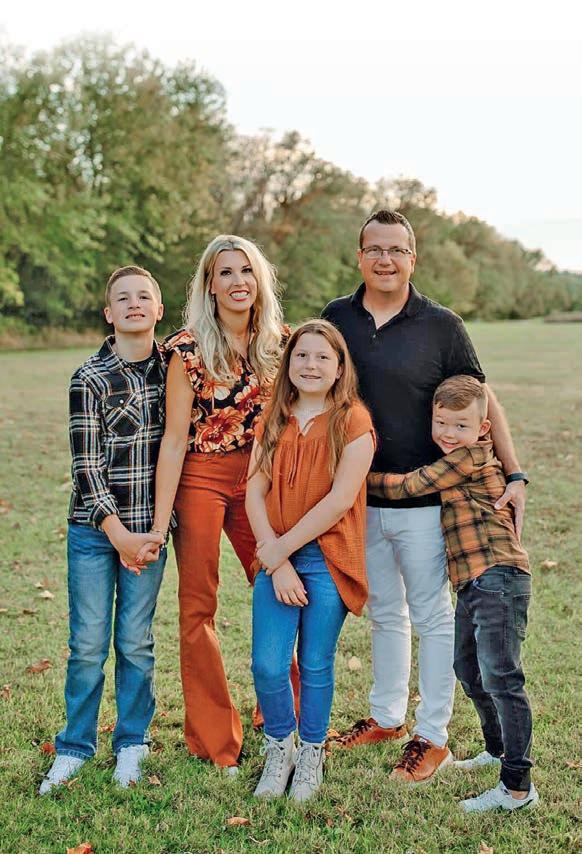
prayer siege is more intensive. It is a day event in which missionaries travel to a church and lead the congregation in prayer and fasting. uring a riday evening encounter service, church members believe od for miracles and spiritual breakthroughs.
dditionally, the prayer siege includes evangelism training, so church members can share the love of od with people in their community.
he rayer iege elevated the entire prayer culture in our church and for all the participating pastors, says astor eorge awyer of alvary ssembly in ecatur, labama. We continue to hear testimonies of healing, and the spiritual impact in all areas of our ministries continue to be felt.
Inspiration for prayer sieges comes from the ministry of famed merican evangelist harles . inney. In Prayer That Ignites Revival, den notes that ather aniel ash went to a city three to four weeks before inney s meetings began to engage in daily hour sessions of prayer, often with other seasoned intercessors. inney then powerfully proclaimed the gospel to assembled audiences, often to great effect.
“These kinds of outbreaks aren’t meant to be confined to history, den writes. od desires to do the same thing again in this generation. We must therefore dedicate ourselves to prayer and obedience, like ash and inney.
chool of the pirit is another training event coordinated by the World rayer enter. osted
by AG district councils/ministry networks, this day long seminar focuses on helping believers encounter the oly pirit and equipping them to operate in the spiritual gifts.
den, ssistant eneral uperintendent ick u ose, and professor arolyn ennant are the primary teachers of this seminar. opics include biblical foundations of spiritual gifts, how the fivefold ministry of phesians operates in the local church, and the cultivation of prophetic gifts. he seminar ends with an encounter service.
he chool of the pirit far e ceeded our e pectations, says on iller, superintendent of the outhern issouri inistry etwork ssemblies of od. he teachers stirred hunger in our ministers for a genuine move of the pirit and educated us on stewarding that move. We came away refreshed and challenged.
n behalf of the World rayer enter, den is also coordinating AG involvement in illion Women n sther all to the all on ct. , , in Washington, . .
We are believing for modern day sthers and ordecais to come together for a day of consecration and prayer for od to once again turn the tide in merica and send another reat wakening, den says.
To learn more about the Assemblies of God World rayer enter, or to schedule a visit, go to rayer enter. .org.
 P. WOOD is executive editor of Influence magazine.
P. WOOD is executive editor of Influence magazine.
86 Spring 2024
GEORGE
The Oden family



NEW FROM JOE ODEN

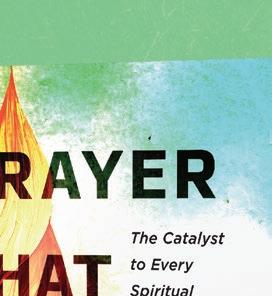
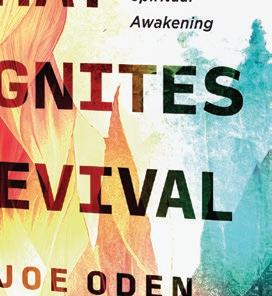



The Secret to Every Spiritual Awakening in History



In his new book, evangelist Joe Oden equips you to kneel humbly, rise bravely, and move boldly with the Spirit to see sweeping cultural revolution, signs, wonders, and deliverance— and the salvation of millions of souls that causes even skeptics to be in awe of God.





“JOE ODEN IS BEING USED BY GOD TO RAISE THE LEVEL OF PRAYER MATURITY IN THE BODY OF CHRIST.” —Doug Clay, general superintendent, Assemblies of God
















30% o for you and 40% o for churches & ministries at BakerBookHouse.com


Web: influencemagazine.com
Downloads: influencemagazine.com/downloads
Back issues:
influencemagazine.com/issues


Podcast: influencemagazine.com/podcast
Facebook: @theinfluencemag
Twitter: @theinfluencemag








More than a magazine

I Got That Wrong How to deal with preaching mistakes
By CHASE REPLOGLE
Imade a mistake.
While preaching through ings, I wanted to make a point about the number of years between the northern kingdom of Israel falling to the ssyrians and the abylonians conquering udah.
I turned to the resource most people use when needing a fact oogle. n answer appeared at the top of my search results, and I added it to my notes.
fter I preached the message, though, a congregant approached me and said, astor, you got something wrong in your sermon.
he man went on to e plain that the number of years I had suggested based on my quick oogle search was not only wrong but absurdly so. e seemed surprised I would make such a mistake. eeling embarrassed, I reali ed there was little to say in my defense. I was wrong.
s preachers, we produce a lot of words. minute sermon is about , words. ne sermon each week amounts to nearly , words annually. nsurprisingly, a few of those words sometimes go awry. We make mistakes.
88 Spring 2024
MINISTRY | PREACHING
I m not talking about ma or doctrinal blunders, false teaching, or moral problems. I mean small details, historical notes, and bits of commentary we present with good intentions, but erroneously. ow we handle such mistakes matters.
Ignorance and Pride
I recently heard a ible college professor talk about common misunderstandings concerning Jesus’ parables. s he spoke, I reali ed I held some of these wrong ideas.
Confronting false assumptions is hard — particularly when we’ve preached them.
y first thought was, I don’t want to know this! onfronting false assumptions is hard particularly when we ve preached them. et learning begins with admitting we don’t have all the answers.
reaching mistakes are probably more common than we reali e. fter all, people don t always know as much as they think.
ociologists call this the unning ruger effect. In one e periment, test takers who scored poorly overestimated their performance, believing they were well above average.
uring another study, researchers asked people about their understanding of various sub ects, some of which were made up. inety percent of participants claimed some knowledge of the non e istent topics.
onfidence can mislead. or preachers, what we don t know may feel personally threatening.
istakes e pose our insecurities. his can leave us reluctant to learn, unwilling to reconsider, and even hesitant to care. We coast on what we already know, find correction irritating, and settle for what has worked before.
his is not the posture cripture prescribes, however.
Careful Study
imothy was young and pastoring in the challenging city of phesus. he phesian church was caught up in quarrelling and godless chatter
imothy , .
With aul as his mentor, it would have been easy for imothy to feel intimidated. fter all, aul had studied with some of the greatest rabbinic minds of his time cts . imothy had been educated in the criptures by his mother and grandmother
imothy .
aul told imothy, reach the word be prepared in season and out of season correct, rebuke and encourage with great patience and careful instruction imothy .
owever, that was not imothy s only assignment. aul also instructed imothy to remove false teachers and appoint new leaders.
With those things in view, aul said, o your best to present yourself to od as one approved, a worker who does not need to be ashamed and who correctly handles the word of truth imothy
.
here is something both compassionate and challenging about aul s charge. imothy needed to study so he wouldn t be ashamed. e was to handle the word of truth correctly. ut aul also reminded imothy to keep od at the center of his efforts.
he purpose of imothy s studying and learning was not to earn accolades or impress his listeners. ather, aul wanted imothy to give od his best. imothy s willingness to keep growing for od s glory would dispel any shame.
here will always be people who know more than you. nd there will always be new things to learn. o one is an e pert on everything. hat s .
od calls us to grow, seek understanding, and take seriously the responsibility of correctly handling the Word of truth.
s with imothy in phesus, careful study for the sake of the ingdom will distinguish our life and
Spring 2024 89
message amid the controversies and godless chatter of the present age.
f course, even the most careful and studious preacher will make mistakes. he key is knowing how to deal with them.
Navigating Mistakes
When the inevitable happens, there are four things you can do.
1. Identify the problem. If you mess up, take the time to figure out what went wrong.
y mistake while studying ings was trusting a quick oogle search without validating it. hat was a sloppy way to prepare for a sermon.
Acknowledging your imperfections demonstrates humility.
istakes can happen in a number of ways. erhaps a source is unreliable. aybe the preacher remembers something incorrectly. ome errors are simply a matter of misspeaking.
ecogni ing the mistake isn t enough. We need to figure out where the mistake came from if we hope to improve our studying, thinking, and delivery.
2. Consider correcting it. ot every mistake requires a public correction. egularly starting a sermon by fact checking the previous week s message probably isn t the best way to instill confidence in your listeners.
till, there are times when correcting yourself is beneficial. our congregation already knows you make mistakes. cknowledging your imperfections demonstrates humility.
ccasionally, I will correct or clarify something I got wrong the week before. ut I also address points I was wrong about much earlier in my ministry. his may involve simply talking about how I discovered something that changed or broadened my previous understanding.
uch admissions go a long way toward building trust and modeling a lifetime of learning. hat kind of honesty increases credibility.
3. Take a long view. I try not to nitpick every sermon I preach. here is a place for critique, but looking for faults week after week can demoralize even the most confident preacher.
I m more interested in seeing improvements over a year or even a decade.
Are you growing through your studies? Are you handling God’s Word with greater maturity than you did several years ago?
aking a broader view frees you to move in a positive direction even while negotiating the ups and downs of preaching.
4. Check your heart. earing you were wrong is di cult, but mistakes can be opportunities for self evaluation.
nchecked insecurity can deeply damage you and your congregation. astors need humility in preaching, ust as they do in leadership and relationships.
If your response is deep annoyance whenever someone points out a mistake, it might be a sign of spiritual and emotional issues you haven t fully surrendered to od.
As Paul wisely recognized in his advice to Timothy, we do this work of studying and preaching first for od the ne who bestows on us endless grace and mercy.
istakes need not bury us in shame or embarrassment. Instead, they should spur us onward in our commitment to study, proclaim the pure gospel, and rely on od.
ur calling is to handle the Word of truth rightly. ven mistakes can help propel us toward that goal.

CHASE REPLOGLE
90 Spring 2024
is
pastor of Bent Oak Church AG in pringfield, issouri.









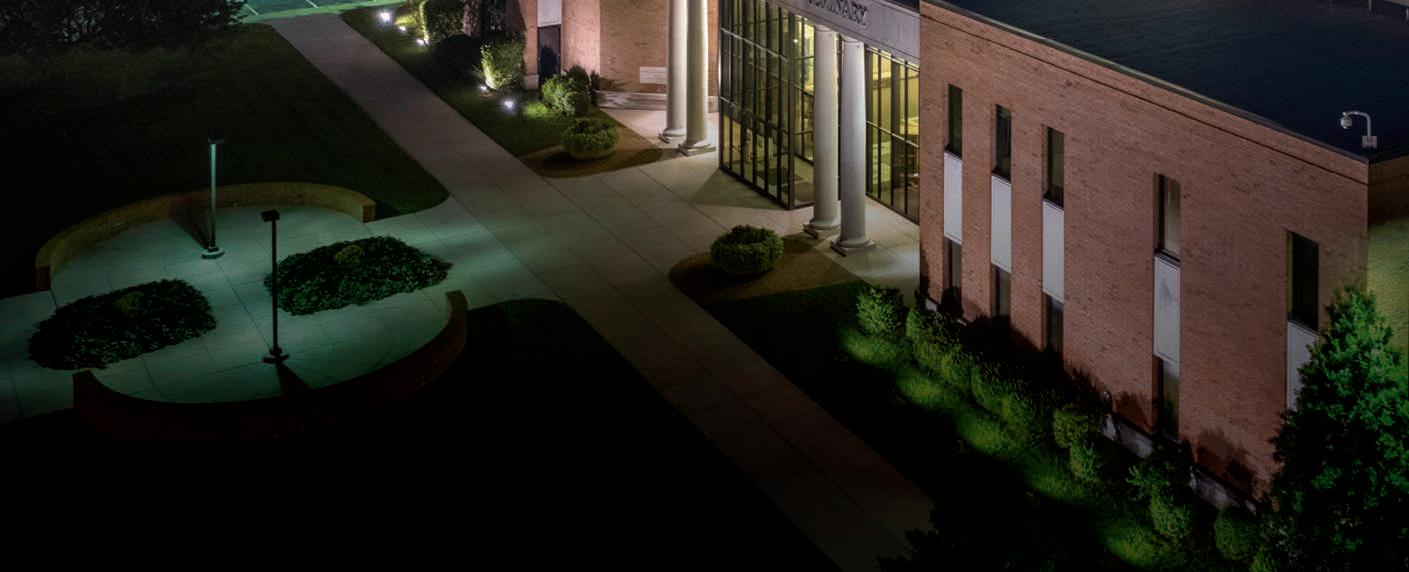
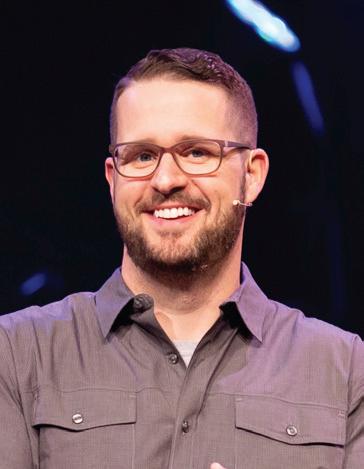

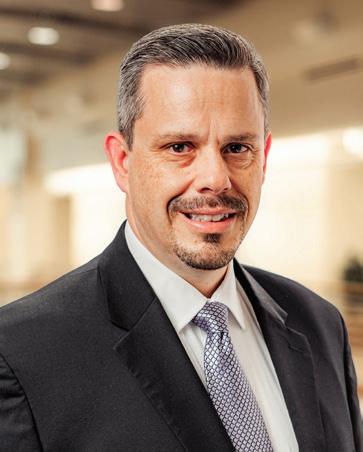































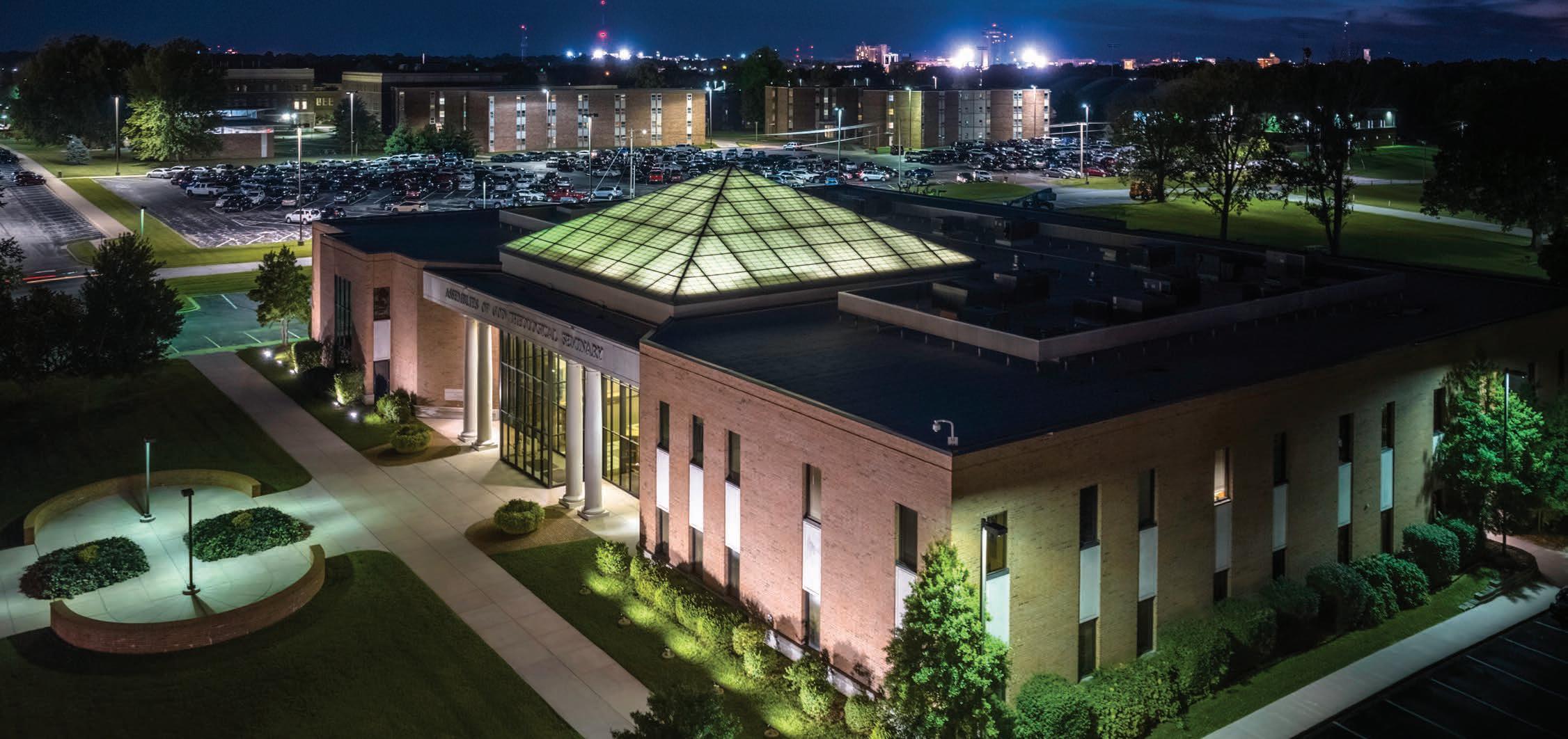


Spring 2024 91 PREACHING CONFERENCE September 23-25, 2024 FAITH & KNOWLEDGE YOU’RE INVITED! Hear from ministry leaders and receive practical resources for practical ministry evangel.edu/preachingconference Dr. Mike Burnette Destiny Duron Deas Dr. Matthew D. Kim Dr. Rochelle Scheuermann Dr. Robert Eby This conference may count as graduate credit from AGTS. Email preachingcenter@evangel.edu for details. GENERAL SESSION SPEAKERS: Breakout sessions with other leading ministry practitioners






What Not




Does your worship team need a dress code?
By KRISTI NORTHUP





What Not to Wear was a long-running show on featuring everyday people who were completely clueless about their fashion fau pas.
osts helped the aesthetically challenged create wardrobes that were stylish, flattering, and professional, while also taking into account their personalities and preferences.

ispensing fashion advice is not part of a worship
leader s ob description. et there are times when the dreaded conversation concerning what not to wear comes up.

uppose a member of the worship team arrives for services dressed in something distracting or inappropriate. hould you have a conversation about it on the spot, ask someone else to handle the matter, or let it slide and wait for a disgruntled congregant to bring it up


92 Spring 2024
MINISTRY | WORSHIP

It s a question many worship leaders are posing. uring the first three months of alone, several colleagues from other churches reached out to me, asking how I handle these issues.
or several decades, our culture has been shedding buttoned up attire. eginning in the s and s, cardigans and khakis replaced suits and skirts as o ce essentials.
ver time, casual ridays became the everyday norm. hat carried over to church, as parishioners attended services in flip flops and shorts, while pastors paired ackets with eans.
uring the pandemic, socially distanced school, work, and church eliminated the need for anything beyond pa amas and athletic wear for many people.
ather, the basic principle is this on t draw e cessive attention to yourself. hat is a standard everyone can strive toward men, women, young and old, new converts and seasoned saints.
Paul encouraged modesty among church members. While modesty includes avoiding impropriety and indecency, it is also a virtue that fosters dignity and self respect.
here are two aspects of modesty I emphasi e within our church conte t. he first is se ual modesty. While this is obvious to many, we need to talk about it. en and women alike should avoid dressing in a way that is distracting or suggestive.


cept for the occasional wedding, some young adults have never known anything but casual dress. any see no distinction between what works for hanging out with friends and what s appropriate on the platform in front of a congregation.
lder congregants sometimes assume worship team members are deliberately pushing boundaries with their fashion choices. ut in most cases, the people they find offensive are completely unaware of e pectations.
o, where should we start nfortunately, many church people begin with outward appearances. t best, these are lagging indicators of the oly pirit s work in a person s life.
onsider the story of the paraly ed man whose friends lowered him through the roof to see esus. he man s physical condition was an obvious need, but esus went to the heart of the matter, saying, our sins are forgiven ark .
With time and grace, things like attire often have a way of working out. ut sometimes gentle guidance is necessary.
What Matters
In orinthians and imothy , aul addressed some appearance related cultural issues of his day. he enduring lesson isn t a matter of hair length, head coverings, or ewelry.
here are di erences in what people consider appropriate, which is why communication is key.
aul s instructions related to financial modesty, which remains a relevant topic of discussion.
number of years ago, some people questioned whether televangelists should wear pricey designer suits. ore recently, the trend of celebrity pastors sporting e pensive sneakers became the focus of a popular social media account.
he need for financial modesty should bring conviction across genders, generations, and social classes. While there is nothing wrong with wanting to look nice, the goal of every pastor and worship team member should be directing attention to God instead of ourselves.
nother issue of concern is appropriateness. What s appropriate is usually a matter of conte t. Wrinkled shirts are fine for gaming at home, but communicating the right message in a church setting requires intentionality. I ve had to e plain this to more young men than women.
here are differences in what people consider appropriate, which is why communication is key. s a multigenerational church, we try to have people of
Spring 2024 93
different ages on the platform. I don t e pect everyone to have the same style, but I do want to convey a sense of unity.
mong other things, we talk about what colors and patterns are acceptable for the platform. therwise, we might have someone wearing an merican flag ne t to another person with a bold giraffe print. ot only is this distracting, but it also looks discordant and sloppy.
Practical Guidelines
If there s one thing I d rather avoid, it s a one on one discussion about a team member s clothing. I remember feeling mortified as a teenager at church camp when a leader asked me to change because she felt something I was wearing was inappropriate. his is why I go to great lengths to talk about e pectations ahead of time.
ach new worship team member participates in an onboarding process, which includes reviewing a ob description with leaders. We discuss our worship philosophy, team e pectations, schedule, and dress code. his helps get everyone on the same page from the beginning.
Talking about dress standards within the greater conte t of our ministry vision helps people understand why we have them.
ur written section on dress details specific areas of concern:
ress appropriately and modestly. We need to look our best We ask that you look nice please don t be sloppy. adies, please no cleavage, midriffs, and tight or short clothing. ust use long blouses with leggings. uys, no graphic tees. o undies visible and no shorts. eans are allowed, but no rips please hoes are required. lease be gender appropriate. old colors and prints should be worn under a acket or sweater. lack, white, denim and neutrals are always great! We will occasionally coordinate for holidays and special events.
very phrase is there for a reason, and we continue to modify the statement as needed. bout
once a year, I review the dress code during a regular rehearsal with the entire team, discussing any changes or developments.
epending on your conte t, your dress code might look different. he important thing is determining and communicating any e pectations before team members show up for weekend services.
On the rare occasion when someone wears something unacceptable, an individual conversation may be in order. ven if it s an issue your dress code doesn t cover, you may need to talk with him or her on the spot.
eep the discussion short, specific, and kind. on t assume ill intent or launch into a long lecture about appropriateness.
Avoid embarrassing or singling out an individual in front of others. ust take the person quietly to one side and address the specific issue as graciously as possible.
wo years ago, a girl who was a recent convert attended camp with our youth group. I was grateful that while our district has conservative standards of dress, leaders understood that this student didn t have the type of clothing e pected at camp.
t the end of the week, within a meaningful conversation about a broad range of topics, our district youth director simply said, e t year, no midriffs.
he girl took it to heart, and we have seen a gradual but sincere change in her demeanor and self worth. What could have been handled harshly was managed with grace and dignity, and this has been a vehicle for growth in her life.
s a pastor and worship leader, I want to help the members of my team grow in every area of life and ministry. What they wear on the platform certainly isn t the most important thing, but that doesn t mean it has no importance.
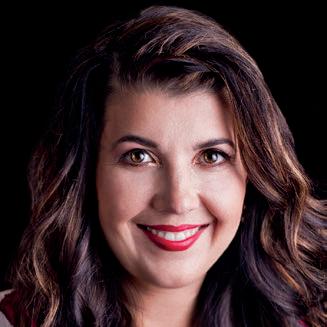
KRISTI NORTHUP
is executive pastor and worship leader at Saints Community Church (AG) in New Orleans. She is director of N Women.
94 Spring 2024

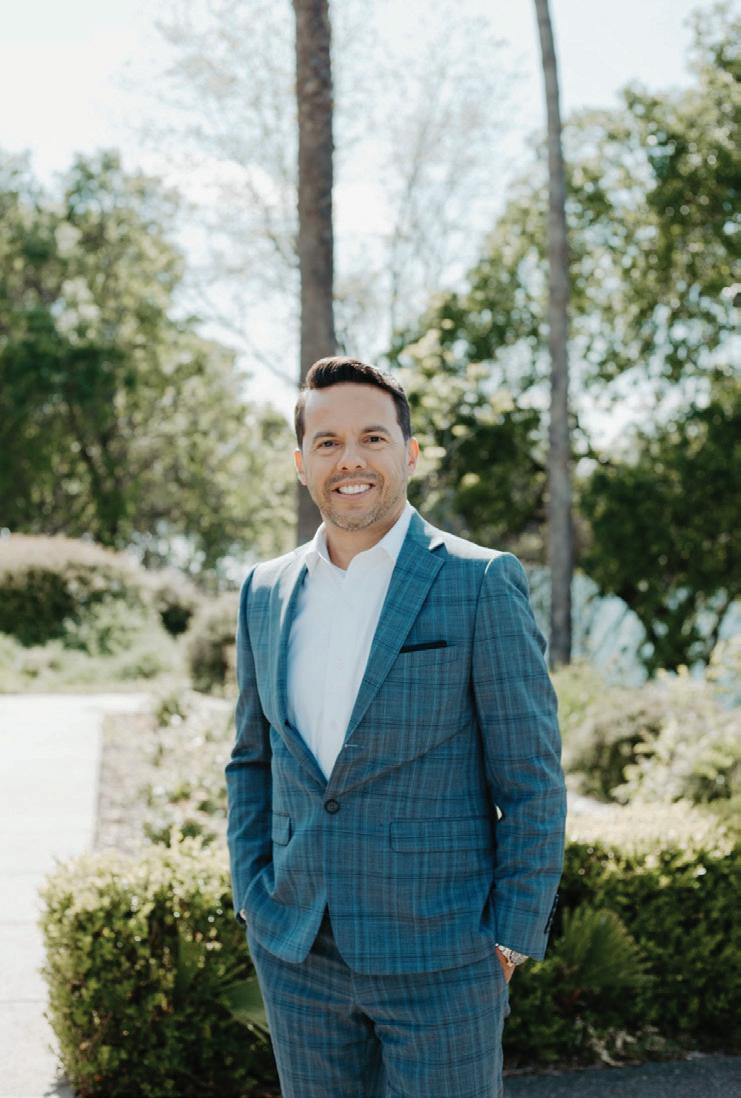

Spring 2024 95
What’s Really Going On?
Ministry to kids in trauma
By CHRIS PRUETT
What’s wrong with this out-of-control kid? Why won’t he listen or behave like the other children in church?
If you work in children s ministry, you ve likely pu led over such questions. I know I have.
ut after years of assuming di cult kids were ust bratty, I learned misbehavior can be a sign of deeper problems. hildren who have e perienced trauma sometimes act out in socially unacceptable ways.
Instead of wondering what s wrong with a disruptive or uncooperative child, we should consider whether something is wrong in his or her world.
he sad reality is, many kids are dealing with di culties they may not articulate e cept through inappropriate or troubling behavior.
nfortunately, such e periences are all too common. ore than in merican adults say they endured at least one before age , according to the . . enters for isease ontrol and Prevention ( . nd e perienced four or more s.
f course, not all bad behavior is linked to trauma, and not all trauma manifests as bad behavior. owever, each may significantly shape a child s emotional and physical growth.
Childhood trauma can have long-term mental, physical, and social implications. mong other things, the reports adverse childhood


buse, neglect, family dysfunction, and other issues can lead to a lifetime of struggles, from developmental and behavioral problems during childhood to mental illness or substance abuse in adolescence and adulthood. perts refer to these trauma-inducing events as adverse childhood e periences s .
s include physical, se ual, and emotional abuse physical and emotional neglect a household member s mental illness, substance abuse, or incarceration witnessing physical abuse and the loss of a parent s presence from the home due to divorce, separation, abandonment, or death.




MINISTRY | KIDS 96 Spring 2024
e periences may increase the risk of depression, suicide, heart disease, diabetes, se ually transmitted diseases, and relational instability later in life.
According to the , o ic stress from s can negatively affect children s brain development, immune systems, and stress response systems. hese changes can affect children s attention, decision making, and learning.
s the number of adverse childhood e periences increases, so does a young person s risk. study published in Academic Pediatrics found that for every additional , a child is more likely to have behavioral challenges, while the odds of e periencing a chronic medical condition increase .

article in American Journal of Preventive Medicine says, eople with si or more s died nearly years earlier on average than those without s.
The sad reality is, many kids are dealing with di culties they may not articulate — except through inappropriate or troubling behavior.
There are kids in our children’s ministries who are facing trauma. hey are hurting and vulnerable. nd they desperately need our attention, prayers, love, support, and intervention.
any kids today are adrift on a sea of sorrows. o reach them, remember the acronym . ake your children s ministry a place of safety and empathy, while taking positive action on behalf of those who are hurting.
Safety
ids need safety. ne way your ministry can promote a sense of security is through relationships.
he good news is e periencing healthy relationships can help offset the effects of childhood trauma. any children are ust one caring adult away from a brighter future.
sk children s leaders to pray for and check in with kids who are going through di cult e periences. It doesn t have to be one of the s listed above. It might be a parent s military deployment, the loss of a grandparent, a sibling s health crisis, or trouble fitting in at a new school.
epending on the circumstances, it may take considerable time, but I have seen kids go from struggling to thriving because someone cared enough to walk beside them and demonstrate hrist s love.
ids also need a safe home environment. If you suspect a child is abused, neglected, or otherwise in danger, report it to the authorities immediately.
Empathy
urting children require empathy. hey need assurance that they are not alone in their struggles. They want to know someone sees them and cares about what they are going through.
ive kids permission to e press their feelings to you and to od. ssure them emotions like sadness and anger are normal.
fter listening, I always tell the kids in my min istry, ou are loved no matter what
emind kids often that od loves them, and so do you. et them know they are an important part of the group.
When appropriate, talk with parents or guardians as well. etting their perspectives on how a divorce or death in the family has affected a child can yield valuable ministry insights.
aining trust doesn t happen overnight. ut consistently demonstrating interest and empathy
*The General Council’s policy is to report all reasonable suspicions of child abuse. All states have mandatory reporting laws. And in most states, children’s workers are required by law to report suspected or known abuse.
Spring 2024 97
can go a long way toward helping kids feel loved, accepted, and understood.
Action
urting kids need someone to take action on their behalf.
ne way of providing tangible support is through gift giving. or a child going through a di cult time, a teddy bear or blanket can be a powerful reminder of od s love.
or e ample, you might say, very night when you go to sleep with this bear or blanket , remember that esus loves you and so do we. esus loves you more than anyone, and e will be there to comfort and help you.
his simple act will remind children on a daily basis that they are part of od s family. ifts for older kids might include ibles or ournals.
Another way to show you care is by calling or sending cards to kids who are hurting. etted vol unteers can assist with this task as well.
inally, point families to mental health care as needed. ometimes the hurt is so deep kids need the help of a mental health professional.
hurches should develop a referral list of local hristian counselors, including some who work with kids and families.
erhaps your congregation could even assist with the cost of counseling for a family in crisis.
When discipling troubled kids, it s important to consider what s really going on. ad behavior is not always trauma related, but when it is, the right response can make all the difference in a child s life.
For a child going through a di cult time, a teddy bear or blanket can be a powerful reminder of God’s love.

atthew reveals the ood hepherd will not rest until e rescues the one sheep who is in danger. ever forget that you are part of is rescue mission.
We must make safety, empathy, and positive action part of the culture in our children s ministries. If we can help even one hurting child, it is worth the effort.

98 Spring 2024
CHRIS PRUETT is director of children’s ministries for the innesota istrict Council of the Assemblies of God.
A COMPREHENSIVE DISCIPLESHIP STRATEGY FOR KIDS.
A COMPREHENSIVE DISCIPLESHIP STRATEGY FOR KIDS.
A COMPREHENSIVE DISCIPLESHIP STRATEGY FOR KIDS.
COMING SUMMER 2024
COMING SUMMER 2024
COMING SUMMER 2024






























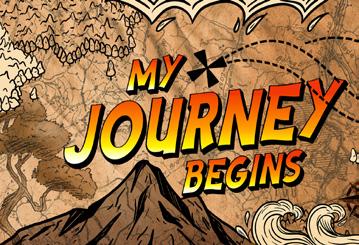












Spring 2024 99
Created by
Created by
Created by

A atter of rust
Effective student discipleship starts with showing up
By KARA POWELL, JEN BRADBURY, and BRAD M. GRIFFIN
“
Ilike to think if esus walked the arth today, e d spend a lot of time at seventh grade tennis matches.
his observation from ichard, a youth ministry volunteer, captures what it takes to build trust with today s young people everyday acts of showing up and loving unconditionally.
If you ve ever been to a seventh grade tennis match or a middle school theater production or freshman band concert you know you re not
likely to see top notch entertainment or skill. ou re there because a kid matters to you. nd perhaps more importantly, you re there because your presence matters to a kid.
We met ichard during a research pro ect at the uller outh Institute. ur team set out to e plore discipleship methods that build character and form lasting faith in young people.
ur study involved surveying youth leaders, conducting phone interviews, and visiting seven
100 Spring 2024
MINISTRY | YOUTH
noteworthy faith communities in person. We also interviewed senior pastors, volunteers, parents, and teenagers.
ne thing we discovered is that discipleship begins with building trust.
Consistency and Closeness
t , ichard remains an active, fully vetted, and background checked youth volunteer. e no longer serves as a regular small group leader. Instead, he tries to get to know all the teenagers.
Working with the youth pastor and other volunteers at his church, ichard has helped create a trust filled culture where every young person feels known and welcomed.
efore the pandemic, the local c onald s was the youth group hangout. When the fast food restaurant closed its dining room during the early months of I , ichard bought a used limo so their ministry could take groups of students to the drive through window for milkshakes.
With parental permission, pairs of adult small group leaders drove students to c onald s after youth group, ordered at the drive through, and then hung out in the parking lot to talk.
One young adult we talked with at the church called ichard the hands and feet of esus. nother young person described him as setting “the standard for who we are as a church … how we care about each other, support each other, and encourage each other in all aspects of life.
ichard models what it looks like to cultivate trust, the critical first step for anyone who wants to connect with teenagers.
eneration generally mistrusts institutions, including the hurch. ost teenagers don t think religious institutions care about them or their friends.
In a pringtide esearch Institute survey of , young people aged , ust said a pastor or church staff member reached out to them during the first year of the pandemic. mid one of the most di cult periods of their lives, in never heard from a faith leader.
et in the same study, nearly of teens and young adults said they would no longer take relationships for granted.
new door is open for building transformative relationships with young people. ased on our research, we believe trust is the key to unlocking that door.
ften the pace of building trust is slower than we desire or e pect. What does it take to convince students we will treat their stories, gifts, and lives with dignity?
When you trust young people with your story — including your failures, hurts, and embarrassing moments — they’re far more likely to trust you with theirs.
ur research points to two ingredients consistency and closeness. onsistency is about relational longevity, while closeness has to do with relational pro imity. hey require showing up and demonstrating hrist s love again and again.
Consistency and closeness are the essential soil in which trust can grow.
Small Acts
ost new believers learn to trust esus by first trusting someone who trusts esus. or today s students, that someone is often the adults they get to know personally.
Our research suggests trust grows through a series of small acts. ollowing are five things you can do to start cultivating trust with students in your church.
1. Show up consistently in their lives. Whether you are a senior pastor, youth pastor, or volunteer, find ways to connect with young people both on and off your church campus.
Spring 2024 101
When you re consistently present, students will begin counting on you. howing up can be as simple as attending a little league game or stopping by the local high school robotics match. on t underestimate the power of a student feeling seen and known for what they do and who they are outside of church.
2. Take time for activities that build relationships. lay games. at together. o on a youth trip or retreat and make memories. onnect teenagers to one another and your volunteer leaders. rust often develops outside of formal ministry worship and programming. od can work in a student s heart through a variety of activities. nd when od is in them, a picnic or volleyball game is no less spiritual than your ne t sermon.
3. Ask good questions, and pay attention to the answers. isten to what students are saying and not saying. emember what s happening in their lives, and then ask about those things ne t time you see them.
ne youth leader in our study said, If a kid shares an important story, ask them follow up questions about that. If they re really looking forward to an upcoming trip, when they get back, ask them about it. how them you remember, that you care, that you are interested in what they have to say. onsider keeping a record of what s going on in the lives of students and reviewing it weekly.
4. Share vulnerably (but appropriately) so teenagers can get to know and trust the real you. rust is a mutual process. When you trust young people with your story including your failures, hurts, and embarrassing moments they re far more likely to trust you with theirs.
5. Apologize when you make a mistake. erfection doesn t cultivate trust. uthenticity does. oung people need their leaders to be real, and that includes apologi ing for mistakes and making them right.
eep in mind that ust as we build trust in small steps, we can also lose trust little by little. We build trust when we attend the band concert we lose it when we say we ll be there but don t show.
aking time to listen to young people s ideas builds trust failing to follow up on any of those ideas diminishes trust.
ichard worked hard to build trust with young people. e summari ed his approach quite simply I don t have all the answers. I ust hang out with teenagers. ome are easy to hang out with, and some aren t. It s the ones who aren t as easy to hang out with who really need a friend.
ichard does more than ust hang out. e trusts esus. nd because teenagers trust ichard, they trust esus, too.
hrough his consistency and closeness, ichard cultivates trust and inspires the entire church toward more hristlike character. ou and your congregation can do the same.
Adapted with permission from aith eyond outh roup Ways to orm haracter and ultivate ifelong iscipleship, by Kara Powell, Jen Bradury, n r . ri n. u lishe y er Books, 2023.
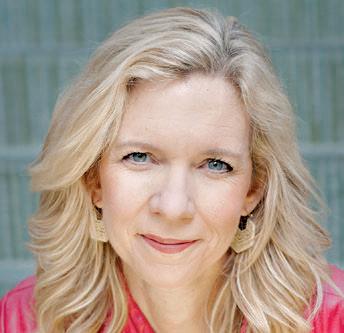
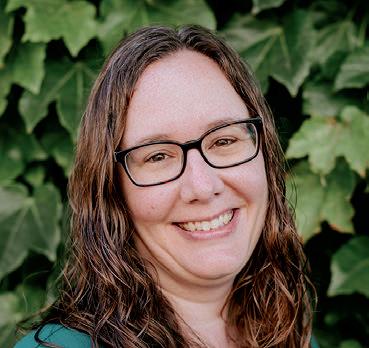
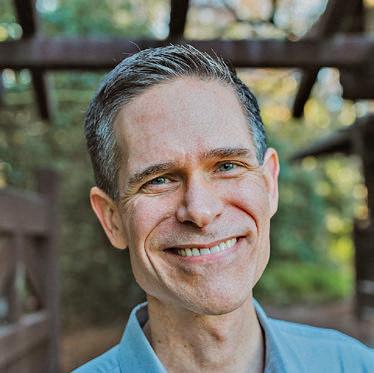
KARA POWELL
is executive director of Fuller Youth Institute.
JEN BRADBURY
is content director for Fuller Youth Institute and a volunteer youth pastor.
BRAD M. GRIFFIN
is senior director of content for the Fuller Youth Institute and a volunteer youth pastor.
102 Spring 2024

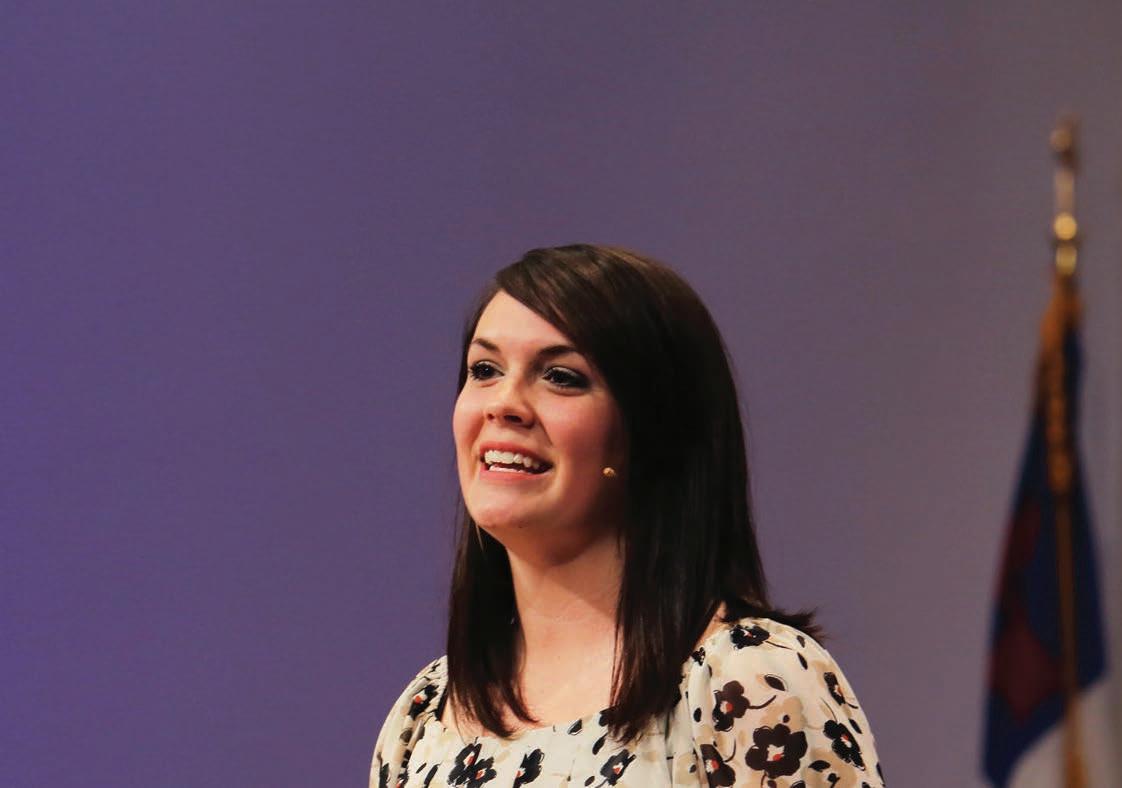


{ Master of Arts in Intercultural Studies
{ Master of Arts in Theological Studies
{ Master of Divinity
{ Master of Leadership & Ministry
(Bilingual Spanish option also available) A

PRACTICAL. PENTECOSTAL. agts.edu
EARN A PREMIER MASTER’S DEGREE IN PERSON OR ONLINE PERSONAL.
417.268.1000
PARTNERSHIP BETWEEN

Tying the Knot ... or Not? Biblical guidance for big decisions
By JESSICA MUMLEY
My husband, eoff, and I looked at each other wide eyed as the couple left our home. We d ust finished leading our first series of preengagement counseling sessions. nlike premarital counseling for engaged couples, this was for couples considering engagement.
he final session included an e it interview. he two shared what they d learned, and we offered advice regarding ne t steps. emarkably, this was the third consecutive couple we recommended not proceeding with engagement.
In each instance, the couple had agreed with our assessment.
I told eoff, I think we ust put the exit in e it interview.
s painful as it was to watch these relationships end, the counseling had fulfilled its purpose. fter all, it wasn t about moving couples toward marriage, but rather toward clarity. hrough that lens, we weren t for . We were for at helping couples discern whether they were a good match. or today s young people, marriage is often a fraught topic. any are delaying nuptials or foregoing them altogether.
The ational arriage ro ect at the niversity of irginia frames this cultural shift in terms of cornerstone versus capstone unions. arriage was once a cornerstone of young adult development, a foundation upon which to build one s life.
Increasingly, marriage is becoming a capstone an achievement following career e ploration, identity development, and financial stability.
MINISTRY | ADULTS
elaying or declining marriage can be both wise and biblical. owever, accompanying this trend is a concerning rise in cohabitation. ccording to a ew esearch enter report, more mericans aged to have cohabitated than married . any couples are cautious about making serious commitments, while remaining open to having se outside of marriage. onsequently, they may see cohabitation as a strategy for testing compatibility.
o counter this, church leaders sometimes push young people quickly into marriage. nfortunately, well meaning efforts to help parishioners avoid the pitfalls of cohabitation and se ual impurity can have the unintended consequence of setting them up for marital struggles.
recalls. We had to do something. oo many young couples were going into marriage with mythologies isneyland fables about marriage. nd too many premarital counselors were acting only as cheerleaders, not helping couples discern the strengths and growth areas they will face, nor whether those growth areas were substantial enough that it was unwise to marry at all.
In , obbink and a colleague developed a week curriculum to mentor college couples after they had been dating for a year. nlike most options available to couples at the time, this counseling happened before engagement.
lready engaged couples might listen to defend their dream of marriage instead of listening to honestly e plore compatibility, obbink says. nce there s a wedding date, it s hard to back out. ut what if what comes up during counseling is back out worthy
It is possible to guide people toward biblical marriage, while also vetting their readiness and compatibility — leaving open an exit door before they make a lifelong commitment.
ome ministers oversimplify the prescription before marriage to, on t have se . fter marriage, the counsel is, on t get divorced.
While both messages are biblical and essential, they are insu cient. any churchgoing married couples are miserable, despite having followed that advice. here must be more to preparing for marriage and staying married.
It is possible to guide people toward biblical marriage, while also vetting their readiness and compatibility leaving open an e it door before they make a lifelong commitment.
rady obbink, founder of Western Washington niversity s hi lpha ministry in ellingham, sought to do this as he mentored young couples during the s.
t the time, the divorce rates among hristians were the same as the rest of the culture, obbink
f preengaged couples he counseled over years, obbink reports only of the resulting marriages ending in divorce. y comparison, of all first marriages in the . . end in divorce, according to rad Wilco , director of the ational arriage ro ect.
With this model in mind, there are four ways ministers can help couples make wise choices about their future.
1. Offer counseling early. he goals of pre engagement counseling versus premarital counseling differ.
he latter runs parallel to wedding planning. reengagement counseling, however, helps a couple determine whether an engagement and wedding should happen at all.
ake clarity, not marriage, the goal of counseling. his requires a personal paradigm shift and possibly a church culture shift.
2. Encourage couples to date through all four seasons. eoff and I ask couples to date for a full year before signing up for preengagement
Spring 2024 105
counseling. his provides time for the infatuation phase to wear off.
Interacting in different settings over at least months makes it easier to identify potential points of conflict, which become important topics of conversation during counseling.
iven the prevalence of cohabitation in today s culture, we counsel couples to live separately and abstain from se until marriage.
In addition to teaching the biblical reasons for this, we e plain that the chemical and emotional reactions to physical intimacy can cloud udgment and obscure relational red flags.
3. Adjust language from “when” to “if.” hoose words that suggest marriage as a possibility,




Creating an environment for prayerful discussion and re ection will result in some couples moving forward in marriage and others realizing that would be a mistake.
include a mi of ob ective data and the counselor s sub ective observations.
here are a number of helpful tools available, such as the repare nrich assessment. hese can provide information for discussion sessions and yield insights for the final analysis. ongregations might choose to purchase resources or charge couples a fee to cover the costs.
eoff and I ultimately give couples a recommendation using the language of a green, yellow, or red light. green light means the couple is healthy, and we recommend moving toward marriage.
A yellow light indicates there are challenges or incompatibilities that need addressing. owever, with more work, the couple might grow to become ready for engagement.

he red light applies to those situations where we see little potential for relational health because of incompatibility, immaturity, or deeply held value differences.
espite that di cult first round of preengagement counseling, our second group of couples all received green lights. nd all of those marriages are still thriving.

ultivate an atmosphere of honesty, curiosity, and discovery. oing separate ways following counseling should be no less acceptable than thinking about rings.
4. Actively assess rather than passively cheering. obbink says, ur ob is not to happily talk to couples and then plan the wedding and o ciate it. ur calling is to discern the real spiritual and practical wisdom of marrying one another.
uring the final session, the counselor should offer an honest, clear appraisal of a couple s compatibility and engagement readiness. his should
here s no mathematical formula for success. reating an environment for prayerful discussion and reflection will result in some couples moving forward in marriage and others realizing that would be a mistake.
What s important is helping couples slow down before the mighty engine of engagement and wedding planning revs to life.
mid the quietness of a dating relationship, preengagement counseling creates space for honesty, self awareness, and biblical wisdom on the road to considering marriage.
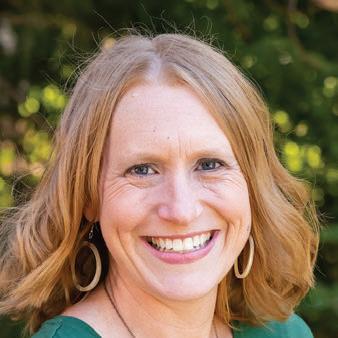
JESSICA MUMLEY
is a Pacific Northwest Chi Alpha ampus inistries team member, certified ministry coach, and specialist in biblical gender and sexuality training.
106 Spring 2024




Cultivating Intimate Relationship WITH GOD

Available in Spanish


Rooted in Proverbs 3:5-6, this women’s study focuses on recognizing God’s presence in your everyday life to help grow a deeper, more personal relationship with Him.


Go to MyHeal yCh .com to ord yo copy of Captivated




A 10 -Week Study For Leadership Teams



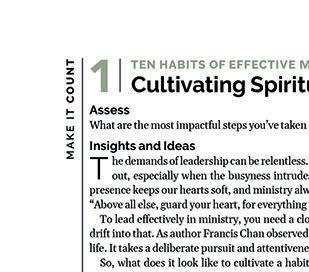
What Is Make It Count?
Make It Count is a leadership development resource for use indi vidually or with staff, volunteers, or board members.
Each installment is also available online as a downloadable PDF, along with interactive pages for group member use. The underlined words and phrases in the following text correspond to fill-in-theblank sections on team member pages. Access these free resources at influence magazine. com/Downloads.
These lessons are writ ten by STEPHEN BLANDINO , lead pastor of 7 City Church in Fort Worth, Texas, and the author of several books.


Leading in Culturally Divided Times
By STEPHEN BLANDINO
Daniel was among the exiles taken from Jerusalem to Babylon during the reign of Nebuchadnezzar. As strangers in a foreign land, aniel and his friends learned to navigate significant cultural differences without compromising their faith.
Similarly, Christians in America live in culturally divided times. Biblical values and beliefs are increasingly at odds with prevailing cultural views. Nevertheless, like the Early Christians who made their marks as “foreigners and exiles,” we are called to “live such good lives” others will take note and “glorify God” (1 Peter 2:11–12).
he ewish e iles hoped to return to their homeland quickly, but the prophet eremiah announced they would be in abylon for years eremiah
od s instructions to the ewish people were clear uild houses, settle down, and raise families (Jeremiah 29:4–6). Additionally, Jeremiah says, eek the peace and prosperity of the city to which I have
108 Spring 2024
MAKE IT COUNT
.
carried you into exile. Pray to the LORD for it, because if it prospers, you too will prosper.
hat s the approach aniel took. ather than retaliating against the Babylonian culture, he faithfully led for more than si decades under four different kings — Nebuchadnezzar, Belshazzar, Darius, and Cyrus. But Daniel did so with an uncommon set of qualities.
In fact, aniel says, aniel so distinguished himself among the administrators and the satraps by his e ceptional qualities that the king planned to set him over the whole kingdom.”
The traits that made Daniel stand out from the crowd should distinguish Christians as well. Consider the following
1. Commitment. espite living and leading in a pagan culture, aniel modeled an unwavering commitment to God.
2. Prayer. aniel was a person of prayer. ven when the pressure was on to compromise his faith, aniel still prayed three times daily.
3.Teachability. Daniel was a student of Babylonian culture, spending three years learning the literature and language. That understanding enabled Daniel to lead with a clear understanding of his context.
4. Self-control. Doing what is right and avoiding what is wrong requires self control. aniel mastered both aspects of self control, practicing restraint and proficiency in his life and leadership.
5. Competence. While serving under King Nebuchadnezzar, Daniel became known for his e ceptional competence. is abilities came from od, but aniel was also faithful to develop them.
6. Character. Daniel modeled character, resisting the temptations of convenience, carrots, and corruption under various kings. aniel s character helped him remain faithful to od and gave him the moral authority to lead.
7. Humility. Daniel didn’t let his ego dominate his leadership. e led with humility, giving credit to od and showing respect to the kings.
8. Wisdom. aniel s wisdom reveals the importance of responding to culture with restraint, grace, clarity, solutions, and a commitment to seek od. is life offers a powerful e ample for today.
9. Courage. aniel was courageous, standing up for what he knew was right and speaking truth to power. ourage is a trait that makes the others possible.
10. Consistency. aniel didn t ust practice these distinguishing qualities occasionally. e consistently modeled them for more than 65 years, which led to increasing influence. s you read, reflect, and discuss these traits, let them become a roadmap for leading through culturally divided times.
Spring 2024 109
Assess
ow does our relationship with od impact our ability to lead in culturally divided times
Insights and Ideas
Daniel was about 16 when he became an exile to Babylon, where he and his fellow Jews would remain in captivity for years.
espite his situation, aniel took to heart the words of the prophet eremiah eek the peace and prosperity of the city to which I have carried you into e ile. ray to the ORD for it, because if it prospers, you too will prosper eremiah .
aniel didn t ust sit around complaining about his circumstances. In fact, aniel says, aniel so distinguished himself among the administrators and the satraps by his e ceptional qualities that the king planned to set him over the whole kingdom.
In other words, aniel lived and led in such a way others could not ignore the e ceptional nature of his life.
What was the hallmark of aniel s life is commitment to God.
Daniel found a way to lead in Babylon while remaining faithful to the Lord. Centuries before esus prayed is disciples would be in the world but not of it ohn , aniel was demonstrating that kind of lifestyle.
For more than 65 years, Daniel remained committed to God while serving under four kings: Nebuchadnezzar, Belshazzar, Darius, and Cyrus.
In today s merican culture, politicians, platforms, and parties often distract and divide. any pastors have become followers and promoters of worldly leaders and earthly kings. owever, our allegiance belongs to only one King — the Lord Jesus Christ. ou cannot lead spiritual change by following cultural leaders. Daniel understood this. Consider what the administrators and satraps under ing arius said about aniel We will never find any basis for charges against this man aniel unless it has something to do with the law of his God” (Daniel 6:5).
Daniel’s compass for life and leadership was his commitment to the ord. he same must be true for us. If our allegiance becomes sidetracked by kings or worldly leaders, we ve sold our faith to a lesser god.
he apostle aul said, ur citi enship is in heaven. nd we eagerly await a avior from there, the ord esus hrist, who, by the power that enables him to bring everything under his control, will transform our lowly bodies so that they will be like his glorious body hilippians .
Reflect and Discuss
. ow are some hristian leaders today compromising their faith with allegiance to earthly kings
.What are some practical ways aniel showed commitment to the ord
. ow does aniel s leadership inspire you to remain focused on od alone
Apply
Is our culture shaping you and your devotion to hrist in any way If so, what do you need to fully submit to hrist
110 Spring 2024
LEADING IN CULTURALLY DIVIDED TIMES Commitment
MAKE IT C O U N T 1
LEADING IN CULTURALLY DIVIDED TIMES
Prayer
Team Review
ow are you deepening your commitment to hrist in the face of cultural headwinds
Assess
What role does prayer play in leading during culturally divided times
Insights and Ideas
Author ob orge once noted, rayerlessness is the first sign of prideful independence. Without prayer, we re saying to od, I don t need your help. I ve got this covered without you.”
hat mindset won t get you far. ou need od s help, and prayer is the doorway to receiving it. rayer was another distinguishing quality in aniel s life and leadership. What role does prayer play when leading amid cultural comple ities onsider two truths
1. Prayer calibrates the soul. ulture often nudges us toward subtle compromises. rayer helps counteract this. orge says, rayer is the constant calibration of the soul. It is a lifestyle of stopping and taking candid spiritual inventory.
eeking od through prayer keeps our hearts surrendered to im and our ears tuned to is voice. hrough prayer, we build fortitude for being in the world but not of it. pending time in od s presence and listening to is voice makes us less susceptible to believing cultural lies.
2. Prayer shapes the situation. ssemblies of od astor eff eake observed, ur prayers release od s will into our world. he starting place for change isn t the activity of doing, but the activity of praying. Prayer does what no other human action can do. aniel certainly recogni ed the power of prayer. When ing ebuchadne ar threatened to e ecute his o cials for their inability to reveal his dream and its meaning, aniel urged his friends ananiah, ishael, and ariah to plead for mercy from the od of heaven concerning this mystery, so that he and his friends might not be executed with the rest of the wise men of Babylon” (Daniel 2:18). od indeed revealed the mystery, and aniel s life was spared. Where did the miracle begin With prayer. raying turned around an otherwise impossible situation. hrough prayer, we re e pressing faith in od s ability to intervene rather than relying solely on our own power.
Reflect and Discuss
. ow has prayer changed your circumstances
. an you name a specific situation in society that calls for prayer
. ow can you be more intentional about applying prayer to the challenges of leading in culturally divided times
Apply
pend time praying for the people in our culture with whom you most disagree. ather than praying with anger and e asperation, ask od to break your heart for them, grow your compassion, and draw them to Jesus.
Spring 2024 111
MAKE IT C O U N T 2
LEADING IN CULTURALLY DIVIDED TIMES
Teachability
Team Review
ow has od been changing your heart toward those with whom you disagree
Assess
Why is being teachable an important part of leading in culturally divided times
Insights and Ideas
In the opening chapter of aniel, ing ebuchadne ar ordered shpena , chief of his court o cials, to choose some young men who would train for service to the king. e was to teach them the language and literature of the Babylonians” (Daniel 1:4). aniel, ananiah hadrach , ishael eshach , and ariah bednego were among those selected. After three years of training, they entered royal service. ow would you feel if you were forced to learn the literature and language of your captors
What kind of attitude would you have about applying your od given gifts and understanding to learning about a culture that was not your own
That’s what Daniel and his friends had to do. Yet it seems they maintained a teachable attitude, while looking to od for wisdom verses . eachability is an important quality for leading in culturally divided times. here are two reasons:
1. Teachability enables you to understand your culture. When missionaries assume a new assignment, they must learn the language and culture of the country in which they will serve. Without this knowledge, they ll be ineffective in their ministry efforts. he same is true in pastoral ministry. If you want to reach lost people in your community, you can t spend your time condemning and critici ing their culture. ou must remain teachable. You don’t have to agree with the culture, but you need to understand it so you can minister effectively.
2. Teachability equips you to respond intelligently to your culture. Unfortunately, many church leaders today respond to culture with nothing more than shallow and misinformed opinions. ven worse, some respond in a way that makes them look and sound foolish, angry, and udgmental. his kind of posture gets you nowhere. ather than approaching cultural issues from an ivory tower, consider what part of your culture you need to understand better. hen ask the oly pirit to help you respond with wisdom and discernment, in a tone that glorifies od.
Reflect and Discuss
. ow can leaders remain teachable concerning cultural issues without compromising biblical standards
.What can you learn from the e amples of aniel and his friends
.What does it look like to respond with wisdom regarding cultural matters
Apply
Choose an area of culture to learn more about. Talk about it with a mature Christian leader, discussing an appropriate biblical response to the issue.
112 Spring 2024
MAKE IT C O U N T 3
Self-Control
Team Review
What are you learning about culture, and what does it look like to respond intelligently to that cultural reality
Assess
ow can hristian leaders model self control when it comes to culture
Insights and Ideas
One of the powerful traits of aniel s life was self control. his is the ability to do what is right and avoid what is wrong. oth aspects of self control are vital for leading during culturally divided times.
We need self control for choosing right actions, such as practicing spiritual habits and doing good works. ut we also e ercise self control by avoiding what is wrong, refusing to compromise, and resisting temptation.
aniel understood the importance of self control. e did what was right when he engaged in his habit of prayer, choosing to pray three times daily, despite the threat of e ecution.
Furthermore, Daniel modeled self-control when he and his friends entered a three-year training program under ing ebuchadne ar. hey were assigned a daily ration of food and wine from the king’s table, but they were careful not to do wrong.
ccording to aniel , aniel resolved not to defile himself with the royal food and wine, and he asked the chief o cial for permission not to defile himself this way.
hese rich dishes would have been tempting, but aniel declined them. ost likely, these foods had been offered to idols. hus, eating them would have made aniel unclean. o, aniel controlled his appetite and asked permission to consume only vegetables and water.
he chief of staff agreed to aniel s request. he result was another distinguishing mark in Daniel’s service to the king.
o lead effectively in culturally divided times, we need the powerful attribute of self control. While it s not common in today s culture, it will distinguish you as a person of commitment and restraint.
Consider the alternative:
• Leaders without self-control don’t do what they say they will do. They lack the ability to deliver the greatest results and accomplish meaningful goals.
• Leaders without self-control don’t reign in their appetites or avoid behavior that is harmful and unhealthy. They are prone to leadership abuses.
elf control is essential for today s church leaders. It keeps us from becoming like our culture. It also makes us more effective within our culture.
Reflect and Discuss
.What aspect of self control is more challenging for you doing what is right or avoiding what is wrong
.What are the long term ramifications of leading without self control
. What kind of impact have you seen leaders make in culture by modeling self control
Apply
o a self assessment of your current level of self control. What improvements do you need to make ow will these improvements enhance your ability to lead with integrity in our cultural times
IN CULTURALLY
LEADING
DIVIDED TIMES
IT C O U N T 4 Spring 2024 113
MAKE
Competence
Team Review
What additional reflections have you had regarding self control Assess
What does competence do to enhance your impact in culture
Insights and Ideas
Culture tends to value one thing when it comes to leaders today competence. our abilities are valuable commodities.
ollowers of esus must keep this in proper perspective. When leaders focus only on competence, they may neglect essential qualities like character, integrity, relationships, and devotion to God.
his isn t an either or issue, though. We don t have to choose between character and competence, integrity and innovation, or relationships and results. ll are important, as aniel s life illustrates.
In fact, competence was one of aniel s distinguishing qualities. fter a three year training period under ing ebuchadne ar, no one impressed the king more than aniel and his friends aniel . erse says the king found them ten times better than all the magicians and enchanters in his whole kingdom.”
learly, od was the source of aniel s competence. erse says, o these four young men
God gave knowledge and understanding of all kinds of literature and learning. And Daniel could understand visions and dreams of all kinds.”
owever, most od given gifts are also cultivated over time as we participate in their development.
Daniel embraced his God-given gifts while simultaneously stewarding them wisely through discipline and learning.
We can follow aniel s e ample by recogni ing od s gifts within us and then applying discipline to their development.
onsider five ways competence helps you lead in culturally divided times
1. Competence meets needs and solves problems.
2. Competence earns you respect from cultural leaders.
. Competence gives you credibility and trust.
4. Competence opens other doors.
5. Competence makes it easier for others to see your gooddeeds and praise your Heavenly Father (Matthew 5:16).
When engaging with culture, nobody cares who you are or what you stand for if what you do lacks excellence.
he point of developing competence isn t gaining fame, prestige, or notoriety. he goal is using your od given abilities to make the greatest difference and advance the greatest good.
Reflect and Discuss
. ow does the statement that aniel was ten times more capable inspire you to grow your abilities
. ow have you seen a hristian leader s competence set him or her apart in culture
.What happens when we don t give enough attention to growing our competence
Apply
hoose an ability you need to grow to the ne t level. on t settle for getting by. Instead, let your competence become a mark of e cellence in your leadership. ap out a growth plan, and then find a friend or trusted advisor who can hold you accountable.
114 Spring 2024
LEADING IN CULTURALLY DIVIDED TIMES
C O U N T 5
MAKE IT

Engage kids in their own spiritual walk!
Help kids to discover who God is and to pursue the adventure He has in store for their life.


“


Called is a ministerial advancement initiative of the AG that exists to equip those who feel called to vocational ministry.


What a FUN and FAITH-FILLED interactive book for kids to grow-then-glow in their life-direction journey! There are many things that are grabbing the attention of your children, so take the lead and engage them in biblical truths here and now.”
— SCOTTY AND CASEY GIBBONS, PASTORS AND PARENTS

Learn more at MyHealthyChurch.com/Called.

LEADING IN CULTURALLY DIVIDED TIMES
Character
Team Review
What area of competence are you focused on growing right now
Assess
ow does character create culture
Insights and Ideas
Character matters and not ust when you re starting your leadership ourney. It matters for every area of life, every season of leadership, and every aspect of culture. Without character, you won’t be the kind of leader others will want to follow.
uthor arey ieuwhof observes, our competency leaves the first impression, but your character leaves the lasting one … character matters more than anything because you bring who you are into everything you do.”
aniel modeled this powerful truth in his life. haracter was a distinguishing trait that had profound results. onsider three e amples
1. Daniel chose character over convenience. aniel chose not to defile himself by eating from ing ebuchadne ar s table aniel . It wasn t a convenient thing to do. In fact, it was risky. But Daniel’s life wasn’t about doing what was easy. Daniel was determined to do what was right.
2. Daniel chose character over carrots. eadership authors sometimes talk about incentivi ing behavior through carrots rewards . ing elsha ar tried to employ this method with Daniel.
When fingers suddenly appeared and began writing on a wall during a dinner party for elsha ar, the king was terrified aniel . ventually, elsha ar summoned aniel and offered him rewards If you can read this writing and tell me what it means, you will be clothed in purple and have a gold chain placed around your neck, and you will be made the third highest ruler in the kingdom” (verse 16).
owever, aniel s motivation was pleasing od, not obtaining human honor, wealth, and power. herefore, aniel said, ou may keep your gifts for yourself and give your rewards to someone else. evertheless, I will read the writing for the king and tell him what it means verse .
. Daniel chose character over corruption. While Daniel was serving under King Darius, he so distinguished himself that the king intended to set him over his entire kingdom aniel . This made the other administrators jealous, so they tried to discredit Daniel’s character. et verse says, hey could find no corruption in him, because he was trustworthy and neither corrupt nor negligent. aniel chose character over corruption, and it was obvious to everyone. ather than influencing others by the weight of your title, become intentional about developing character so you can influence by the weight of your life.
Reflect and Discuss
.Which of the three e amples of aniel s character most inspire you Why . ow does good character help you lead in culturally divided times
.When are you most tempted to compromise character as a leader
Apply
Invite the oly pirit to e amine your character and reveal any areas of weakness. What changes do you need to make ake these issues seriously, and begin cultivating trustworthy character at the deepest levels.
116 Spring 2024
IT C O U N T 6
MAKE
New VBS









$199.99 (MSRP $259.99)












MEGA Sports Camp Blaze a Trail VBS invites kids to live an adventure with Jesus! Kids will learn that Jesus blazed the trail for our salvation. As they follow Jesus, they can live their own adventure that points people to Jesus.
MEGA Sports Camp VBS includes: High-energy rallies and sports training
Small groups and Bible lessons
MEGA kids spotlight videos
And a whole lot of fun!





Order your VBS Starter Kit today at MEGASportsCamp.com
LEADING IN CULTURALLY DIVIDED TIMES
Humility
Team Review
ow have you been challenged to cultivate deeper character
Assess
Why is humility so attractive in others but less attractive in ourselves
Insights and Ideas
Arthur onan oyle s herlock olmes said, he chief proof of a man s real greatness lies in the perception of his smallness.
hat s not a popular view in today s merican culture, but it speaks to the heart of good leadership. rideful people make themselves look strong, but this is the fastest route to a downfall in leadership. umility is the path to greatness.
Unfortunately, many church leaders exude arrogance rather than humility. This does not reflect the heart of esus, who ministered from a posture of servanthood and responded to people with love and compassion.
o, how can we engage a culture that views meekness as weakness aniel s story provides another e ample.
aniel was at the top of the class, and the last thing ing arius wanted was to lose his best leader. ut when aniel prayed to od instead of arius, the king upheld his law, sending aniel to the lions’ den.
fter a sleepless night, arius rushed to the lions den to check on aniel s status. he king called out, inquiring about aniel s well being.
aniel s response demonstrated his humility ay the king live forever y od sent his angel, and he shut the mouths of the lions. hey have not hurt me, because I was found innocent in his sight. or have I ever done any wrong before you, our a esty aniel .
In this passage, aniel shows humility in two ways
1. Daniel gave credit to God. e acknowledged od was the ne who shut the lions mouths. aniel didn t take credit for what happened, but directed all the glory to od alone.
2. Daniel gave respect to the king. aniel spoke humbly and respectfully to the king. umility was part of aniel s character. It set the tone for his life and leadership.
o lead effectively in an egotistical culture, we must choose the path of humility. hat s the path esus marked out for us during is ministry.
Reflect and Discuss
. What makes a humble leader appealing to others
. ow does a humble response to culture foster dialogue rather than dispute
. ow can we apply aniel s lessons on humility in today s culture
Apply
umility is a lifelong pursuit. pend some time in prayer, repenting of pride and inviting the pirit to point out areas where you need to develop greater humility. ead atthew , considering what it teaches about the dangers of pride.
118 Spring 2024
MAKE IT C O U N T 7

FOUNDATIONS
12-part video series and study guide
Filmed in Israel


The Life of Jesus




Examine the teachings of Jesus in their cultural, historical, geographical, and spiritual context. The life and teachings of Jesus will come alive in your heart and challenge you to apply His words in your daily life.
Visit thechls.org/LifeofJesus today for more information.






Visit thechls.org/LifeofJesus today for more information.









LEADING IN CULTURALLY DIVIDED TIMES Wisdom
Team Review
What are you learning about the importance and power of humility in leadership Assess
What does it look like to be a wise leader in today s culture
Insights and Ideas
Leading in culturally divided times can be challenging and comple . ut the best leaders operate in od s wisdom. gain, aniel offers us a great e ample. When ing ebuchadne ar insisted his astrologers not only interpret his dream, but also reveal what he dreamed, nobody could do it. Facing this unreasonable demand, the leaders of the day were in a quandary.
et aniel says, When rioch, the commander of the king s guard, had gone out to put to death the wise men of abylon, aniel spoke to him with wisdom and tact. aniel s response highlights five aspects of wisdom that are applicable for leadership today.
1. Wisdom shows restraint. When Daniel heard the king’s order, he didn’t say, “Nebuchadnezar is an irrational idiot. Who does he think he is Instead, aniel chose restraint.
2. Wisdom speaks with grace. erse says aniel s response was tactful. If there s one thing we could use more of when navigating conflict, it s tact. s ohn a well says, we need to stop correcting and start connecting.
s followers of esus, hristian leaders must master this important lesson peak truth in the tone of grace. ruth without grace is mean. race without truth is meaningless. It s not either/or. We need truth delivered in the tone of grace.
. Wisdom searches for clarity. Daniel knew there had to be more to the story, so he asked the king s o cer, Why did the king issue such a harsh decree verse . hen aniel listened as the o cer e plained the matter. aniel didn t ump to conclusions. e moved forward with wisdom.
4. Wisdom suggests a solution. Verse 16 says, “At this, Daniel went in to the king and asked for time, so that he might interpret the dream for him. aniel didn t demand his way. e suggested a simple, logical solution.
ow might this wise approach help us during times of tension
5. Wisdom seeks God. aniel didn t use the time he requested from the king to concoct a humanly devised plan. Instead, aniel and his friends prayed, and od revealed the mystery .
his is the path of wisdom. We can apply these principles today while leading through culturally divided times.
Reflect and Discuss
. Which of the five principles above most challenges you Why
. When do you need to do a better ob of speaking in the tone of grace
.What other lessons can you draw from aniel s wise response
Apply
o an honest e amination of your response to culture. oes it truly reflect the pirit of esus ist two or three changes you need to make. hen share those with a friend who can help you stay on track.
120 Spring 2024
MAKE IT C O U N T 8

Courage
Team Review
ow have you applied principles of wisdom as you ve interacted with others in culture Assess
What does it mean to be a courageous leader in culturally divided times Insights and Ideas
C. . ewis once said, ourage is not simply one of the virtues, but the form of every virtue at the testing point. Without courage, you won t be a person of love, grace, truth, commitment, or self control, because courage is necessary to live and lead with all these qualities. uring times of testing, courage helps you make od honoring decisions. aniel had plenty of opportunities to go with the flow. ut he courageously maintained his integrity and brought glory to God. onsider the following two e amples.
1. Daniel had the courage to do what’s right. When ing arius ordered everyone to pray only to him or face e ecution, aniel didn t back down. aniel says, When aniel learned that the decree had been published, he went home to his upstairs room where the windows opened toward erusalem. hree times a day he got down on his knees and prayed, giving thanks to his od, ust as he had done before. hen these men went as a group and found aniel praying and asking od for help.
Instead of altering his habit of prayer until the king s order e pired, aniel had the courage of his convictions even if the consequence was death. ourage helps us rise above circumstances, so we can continue doing what’s right in the face of fear.
2. Daniel had the courage to speak truth to power. When Nebuchadnezzar had a dream, the king shared it with aniel, seeking a clear interpretation. aniel says, hen aniel also called eltesha ar was greatly perple ed for a time, and his thoughts terrified him. o the king said, ‘Belteshazzar, do not let the dream or its meaning alarm you.’”
his dream was not good news for ebuchadne ar, and aniel knew it. It would mean the end of his reign unless the king repented. ut aniel was willing to speak the truth no matter what.
aniel said, herefore, our a esty, be pleased to accept my advice enounce your sins by doing what is right, and your wickedness by being kind to the oppressed. It may be that then your prosperity will continue aniel . aniel was gracious, but he also spoke truthfully.
Reflect and Discuss
.Who s the most courageous leader you ve ever known
.In what areas of leadership do you most struggle to have courage
. What is the difference between ordinary human courage and righteous courage
Apply
eflect on your own leadership. In what area do you need to grow in hristlike courage Identify two courageous steps you can take ne t.
LEADING IN CULTURALLY
DIVIDED TIMES
MAKE IT C O U N T 9 122 Spring 2024




This line of easy-to-use booklets can help believers unpack complex concepts, no matter their age.







out the Now What? booklets for all ages at MyHealthyChurch.com/NowWhat
DISCIPLESHIP ANSWERS FOR BELIEVERS OF ALL AGES Check
Consistency
Team Review
ow are you becoming a more courageous leader
Assess
In what areas of life do leaders need to model the greatest consistency
Insights and Ideas
In this series of lessons, we ve learned several essential qualities for leading in culturally di vided times. aniel modeled each quality, despite the hostility of the culture to the ways and wisdom of God.
hristian leaders seeking to make a difference in their culture must do the same. In every time and place, these are enduring traits of culture shaping leaders. hese qualities are vital for church leadership not ust occasionally, but every day. hat s why the final trait is so important consistency. ohn a well offers a helpful equation for understanding the value of consistency ight hoices onsistency ime ignificant eturns. When we do what s right, consistently, over a long period of time, we will e perience blessings beyond what we can even imagine. onsider the alternative. If any one of the qualities we ve discovered in this series is missing, it will negatively impact our ability to lead faithfully.
1. Without commitment, you’ll lose your spiritual footing in culture.
2. Without prayer, you’ll approach culture with the limits of human ability.
. Without teachability, you won’t seek to understand culture.
4. Without self-control, you’ll be overrun by the appetites of culture.
5. Without competence, you won’t lead effectively in culture.
6. Without character, you’ll become like culture.
. Without humility, you’ll take credit for your impact in culture.
8. Without wisdom, you’ll respond poorly to culture.
9. Without courage, you’ll waiver when tested in culture.
. Without consistency, your influence will never compound. ach quality is essential, and aniel modeled all of them not once, but over a lifetime. nd what was the outcome aniel e perienced influence throughout the reigns of four kings. aniel didn t compromise his faith. e remained committed to od, prayerful, teachable, self controlled, competent, and full of character. e acted with humility, wisdom, and courage. one of it was an afterthought for aniel. e consistently modeled each distinguishing quality. s a result, aniel so distinguished himself among the administrators and the satraps by his e ceptional qualities that the king planned to set him over the whole kingdom aniel .
Reflect and Discuss
.Which of the qualities in this series is your greatest strength, and which is your greatest weakness
.In what area of your life have you personally e perienced the power of consistency
. ow does consistency benefit your efforts to lead effectively in culture
Apply
Give yourself a consistency grade for each of the qualities in this lesson series. Identify your lowest grade, and consider what you can do to improve it. ut together an improvement plan so you may begin growing in that area.
124 Spring 2024 LEADING IN CULTURALLY
TIMES
DIVIDED
MAKE IT C O U N T 10


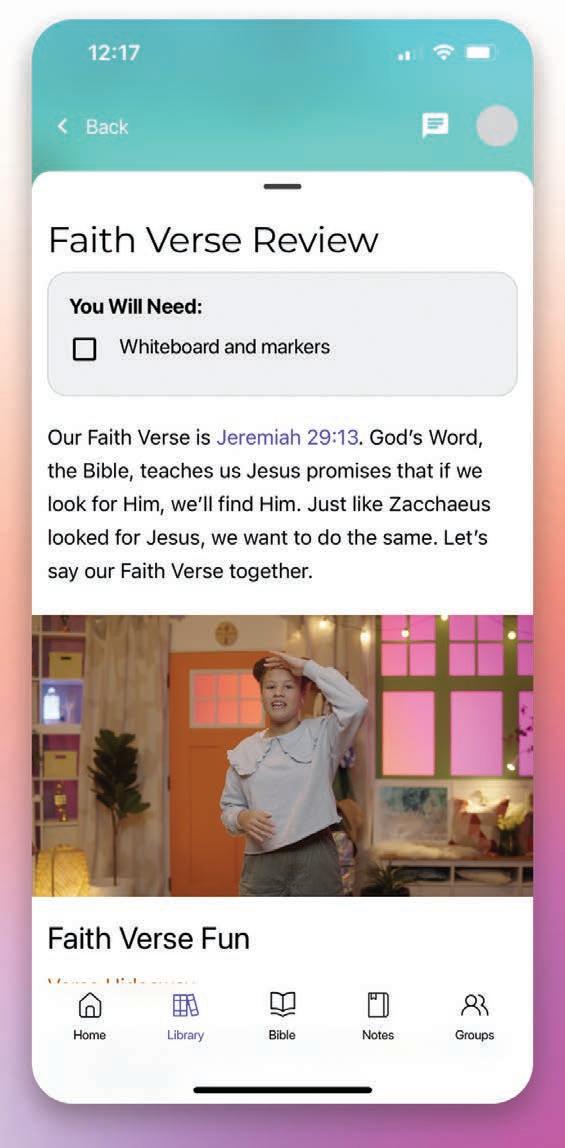



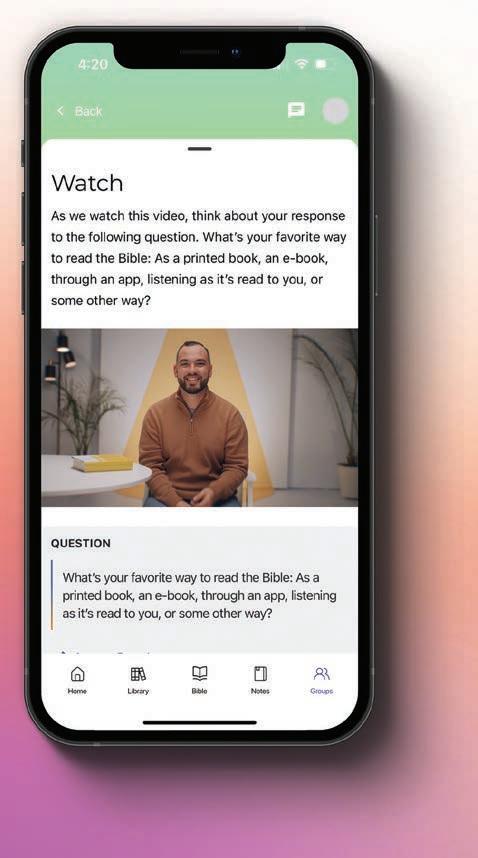



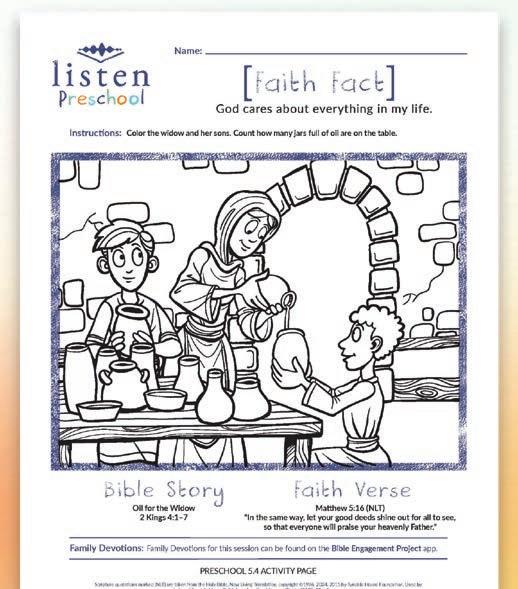







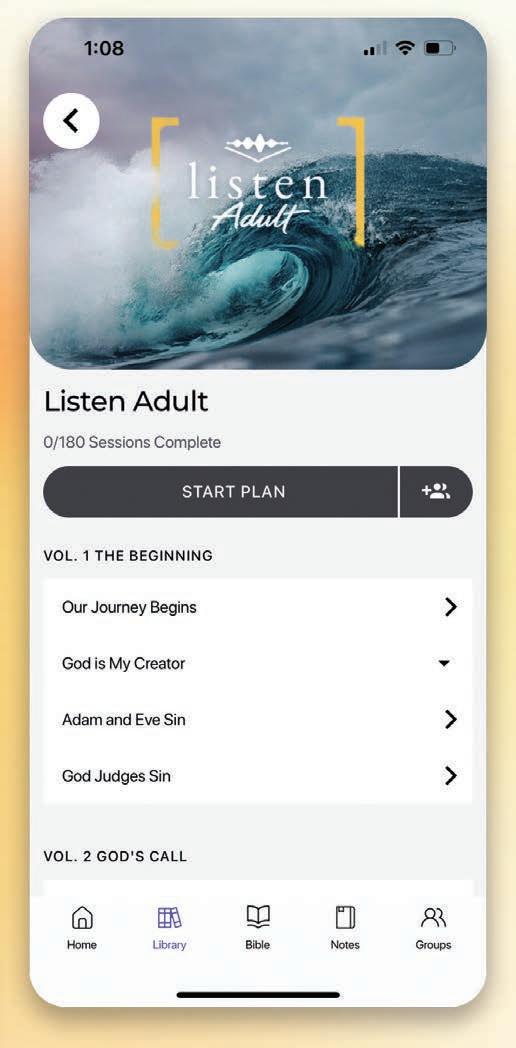
for Preschool, Kids, Youth, and Adults
FREE CURRICULUM CREATE A FREE ACCOUNT! BibleEngagementProject.com
Discipleship resources that transform lives and anchor your church in the Bible

HOW TO WIN HOW TO WIN




LEARN MORE AT MYHEALTHYCHURCH.COM
Half-Sight, Full Faith
(Continued from Page 128 )
Unless God miraculously heals me, however, it’s unlikely I will fully regain my vision. Of course, I believe He can and does heal. Like the man in Luke 18, my prayer has been, “Lord, I want to see” (verse 41).
Meanwhile, I’ve been learning how to maneuver life with halfsight. Don’t get me wrong. Halfsight is better than no sight!
In fact, I believe we all stumble through life with half-sight at times. As Paul told the Corinthians, we don’t have perfect clarity on everything this side of heaven. The Message puts it this way: “We don’t yet see things clearly. We’re squinting in a fog, peering through a mist” (1 Corinthians 13:12).
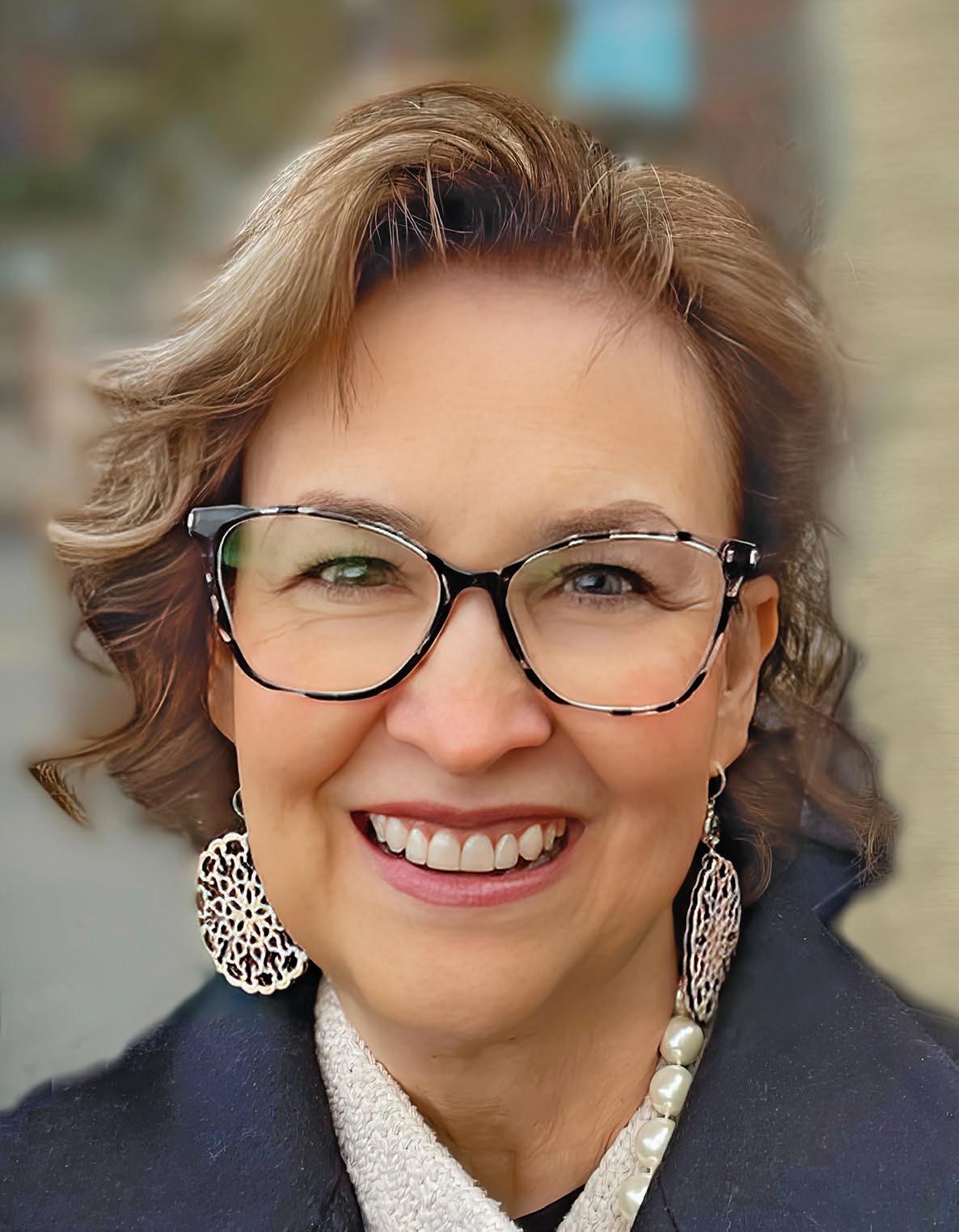
These half-sight times are when we experience more fully what it means to trust an unseen, compassionate God with our most tender wounds.
Everyone experiences life’s gut punches. It may be a troubling diagnosis, a baffling hurt or loss, a loved one’s addiction, or a friend’s betrayal. During such times especially, we can feel like we’re in a fog, groping our way toward a seemingly too-distant hope.
But it is also during such seasons that the biblical concept of walking by faith steps off the page and into the flesh and blood of our real-world experiences.
These half-sight times are when we experience more fully what it means to trust an unseen, compassionate God with our most tender wounds.
Somehow, I think this trusting in the dark thing might be part
of what Peter was referring to in 1 Peter 1:8: “Though you have not seen him, you love him; and even though you do not see him now, you believe in him and are filled with an inexpressible and glorious joy.”
We have not yet seen the Lord. And we don’t always understand all the hurtful stuff life throws at us. But we love and trust Jesus — which leads, inevitably, to joy and a new way of seeing.
Somewhere in the mists of an unseen future, full sight is waiting for those who believe.
JODI DETRICK , D.Min., is a certified personal leadership coach, a speaker and author, an adjunct professor at Northwest University in Kirkland, Washington, and an ordained Assemblies of God minister.
Spring 2024 127
HalfSight, Full Faith
 By JODI DETRICK
By JODI DETRICK
Dabbing a tissue at my watering left eye, I wondered what was going on.
May 11, 2021, had been a lovely day in Washington state, giving me a chance to spend some time outdoors. When the search for an errant eyelash or other visible debris yielded nothing, I concluded my eye irritation was simply the result of spring allergies.
Applying eyedrops before bed that evening, I hoped sleep would bring relief. However, I spent the night tossing and turning in increasing discomfort.
The agony was indescribable. And, I realized with growing alarm, I was completely blind in that eye.
By morning, my eye was red and inflamed. I quickly made an appointment with my optometrist, who diagnosed a corneal abrasion. The doctor explained that dry-eye syndrome may cause the cornea and lid to stick together during sleep. This can result in a painful tear upon opening the eye.
The doctor put a contact bandage in my eye to protect it and prescribed some antibiotic drops. I went on my way thinking the problem would soon resolve.
When my local pharmacy didn’t carry the prescribed drops, it was frustrating, but not overly concerning. Neither the pharmacist nor I could reach the doctor to ask about a substitution. However, the pharmacist ordered the medication and assured me it would be ready the next day. I told myself I could manage one more day.
I picked up the antibiotic eye drops the following day and
used them as prescribed, but the searing pain continued. That night, I held my head in my hands and rocked back and forth in increasing anguish, praying for daylight.
The next day, I returned to my optometrist. He took one look at my eye and sent me to an ocular specialist in Seattle. By that time, a virulent infection threatened not only the loss of my vision, but also the eye itself.
Without the benefit of antibiotic drops, the contact bandage covering the abrasion had acted as a petri dish, allowing bacteria to multiply and the infection to blow up.
The agony was indescribable. And, I realized with growing alarm, I was completely blind in that eye.
Thus began the long, painful journey that continues to this day. It has included a seemingly endless series of appointments, scans, tests, and medications. I have endured everything from injections in my eyeball to eye drops that had to be administered hourly around the clock.
I have had three surgeries, including a cornea transplant. The newly colored blue eye on my left side is a striking contrast to the original brown on my right.
At this point, I have some peripheral vision in my left eye, but everything in the center is gone. As I write this, I’m facing a fourth surgery that might restore some centric vision.
(Continued on Page 127
128 Spring 2024 THIS IS MY STORY
)



CelebratingFifteenYearsof BringingHopetoJewishPeople



Yo r genero s s pport helps Ja ob s Hope bring essiani Hope to Jewish People aro n the orl
Please stan with Ja ob s Hope in these hallenging an propheti ti es to ser e an bless Jewish people in srael an the nations


Yo r pra ers an partnership help pro i e o passionate inistr tea hing is ipleship an e angelisti o trea h opport nities a ong the Jewish people
I Will Bless Those Who Bless You
H P H




P Bo pringfiel
www a obshope o a obshope a obshope o



Acct. No. 390907
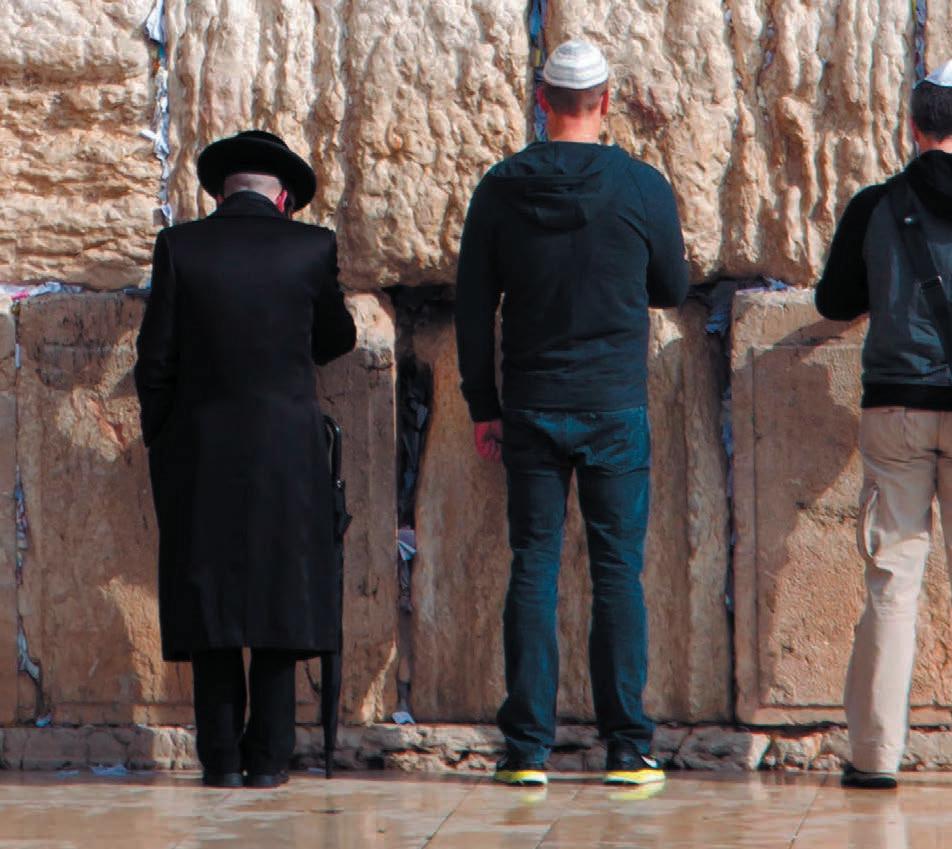





































800-263-2114
































































































What is your next outreach plan? WWW.REALITYOUTREACH.O

































T M
B O O K Y O U R D R A M A
ANY CHURCH ANY SIZE ANY CITY


















































































































 CHRISTINA QUICK is lead editor of Influence magazine.
CHRISTINA QUICK is lead editor of Influence magazine.

















































































































































































































































































































































































 By ALLEN TENNISON
By ALLEN TENNISON



















































































































































































































































































 By JODI DETRICK
By JODI DETRICK
























































































